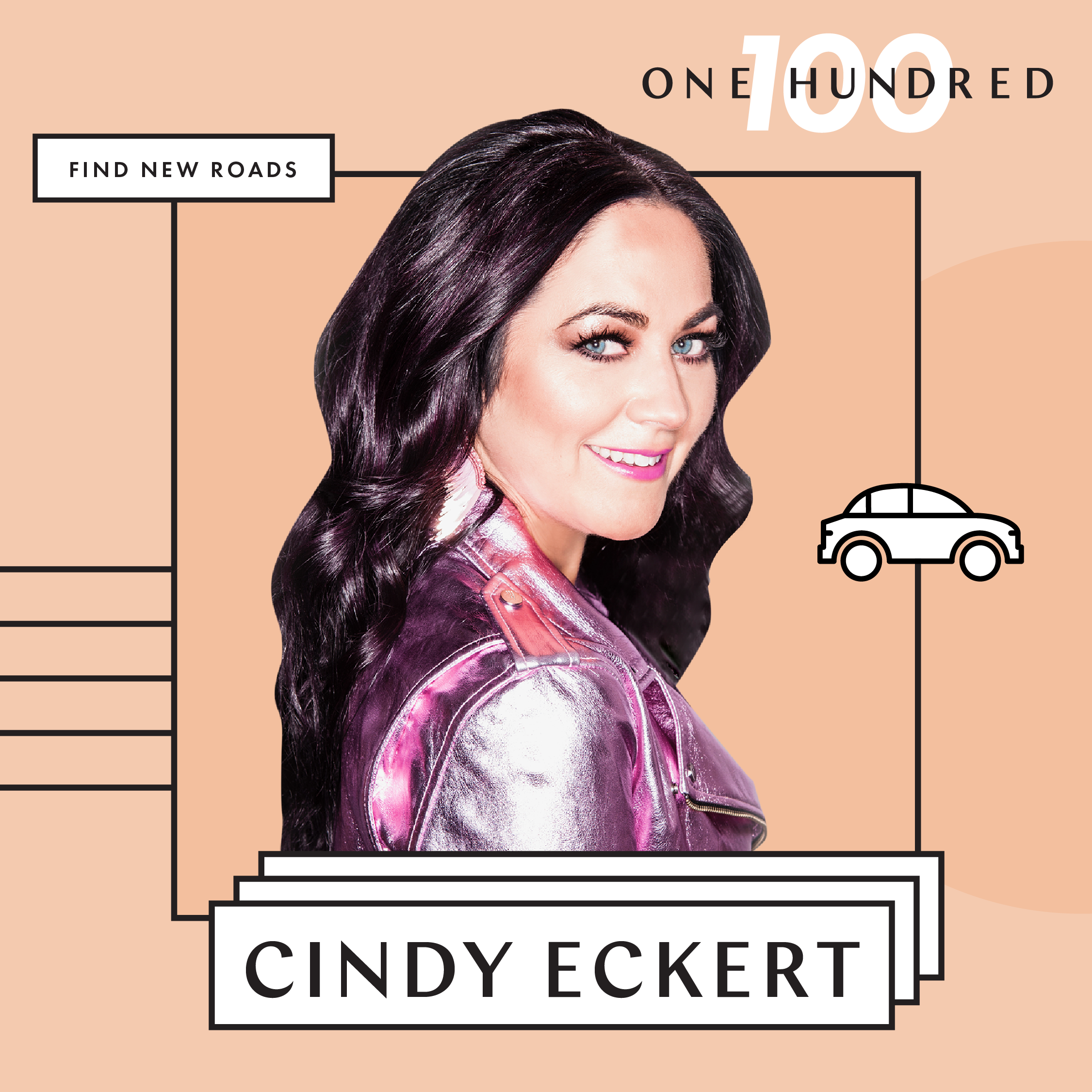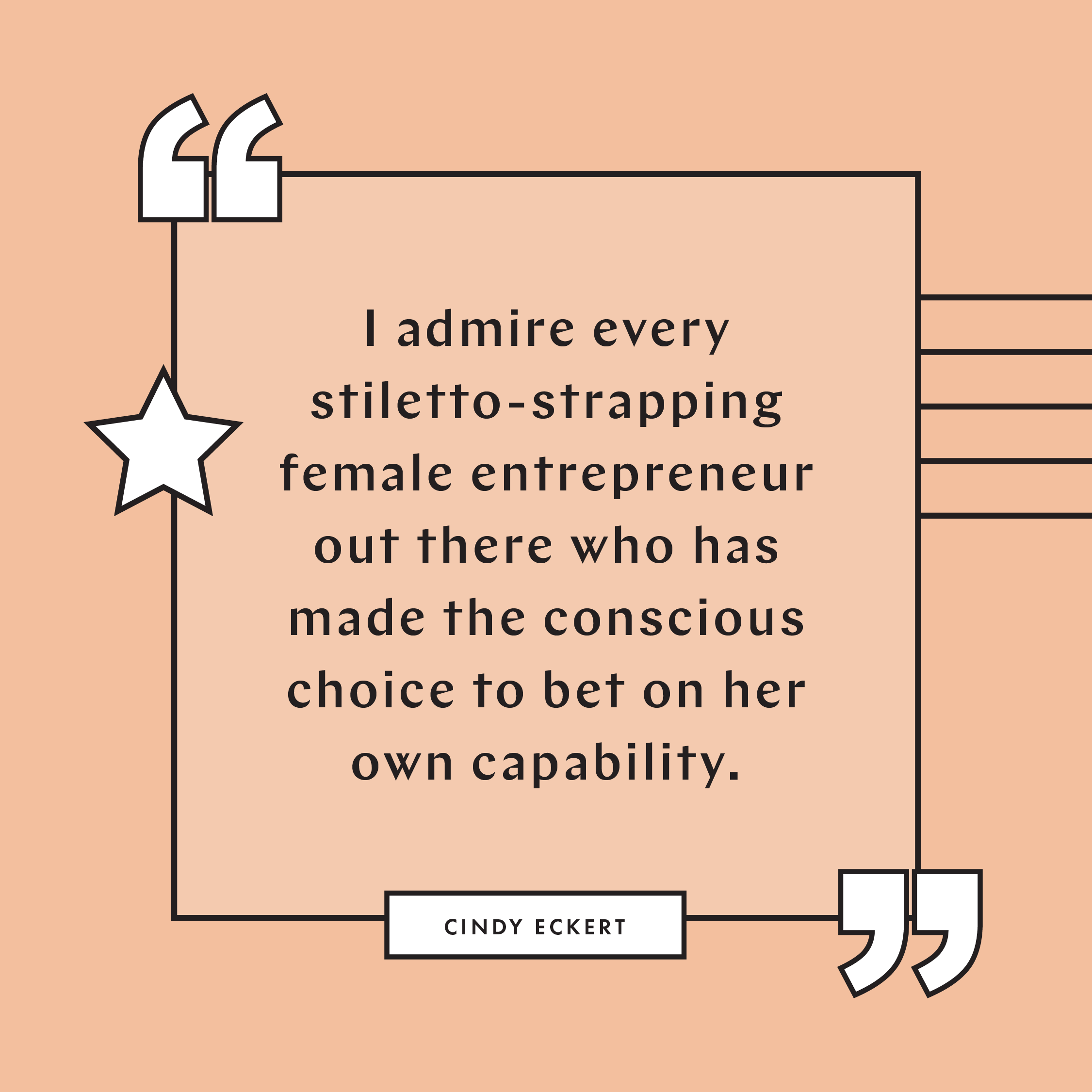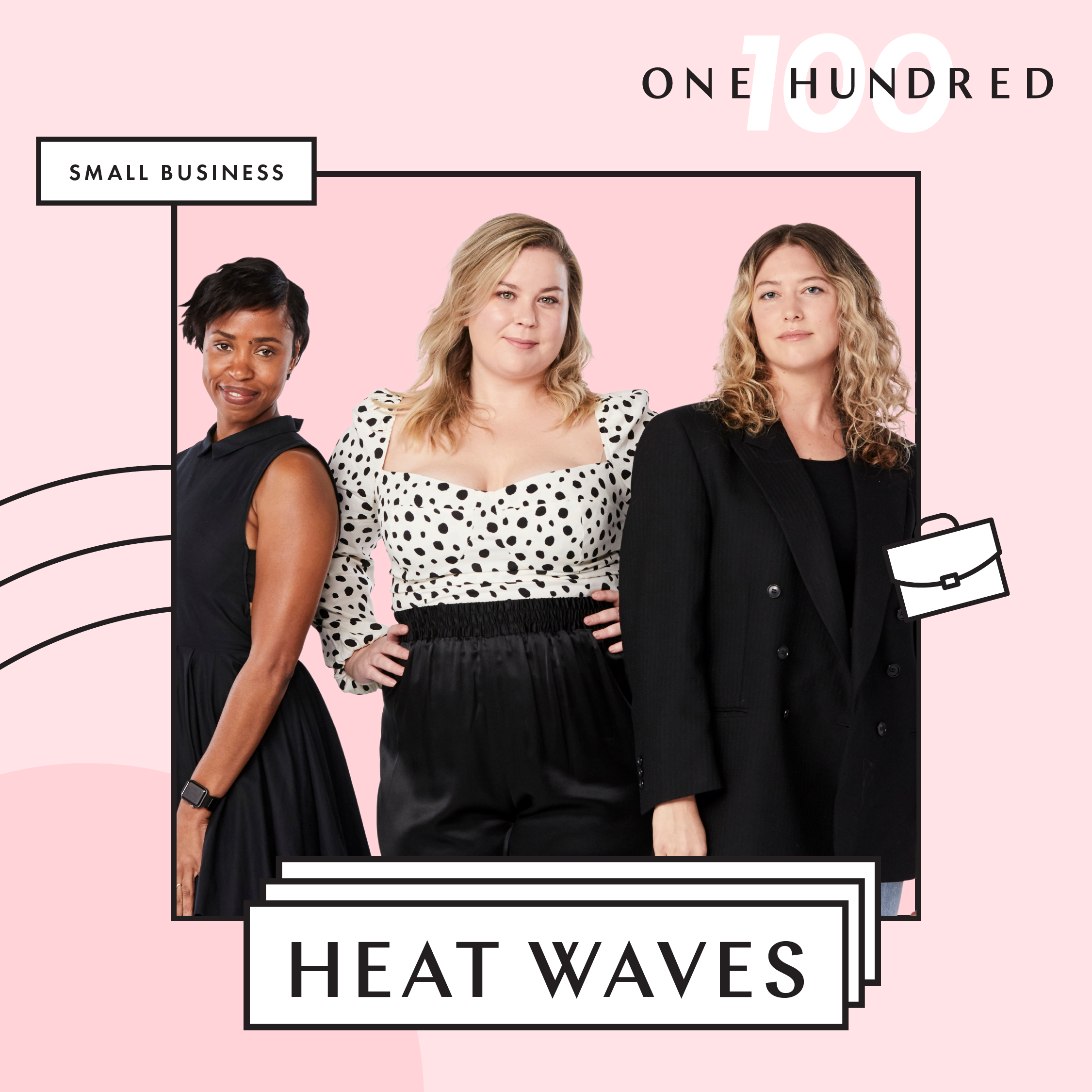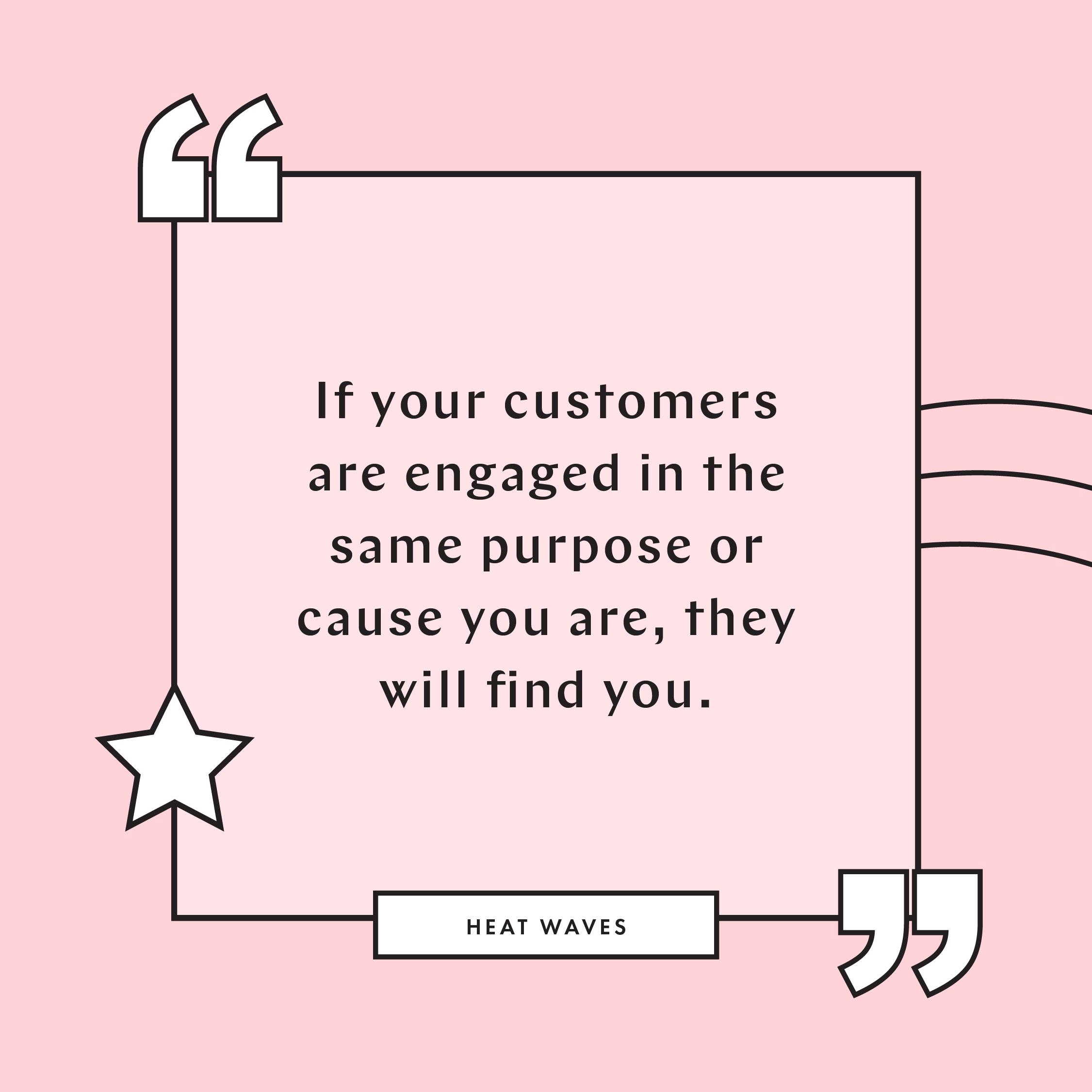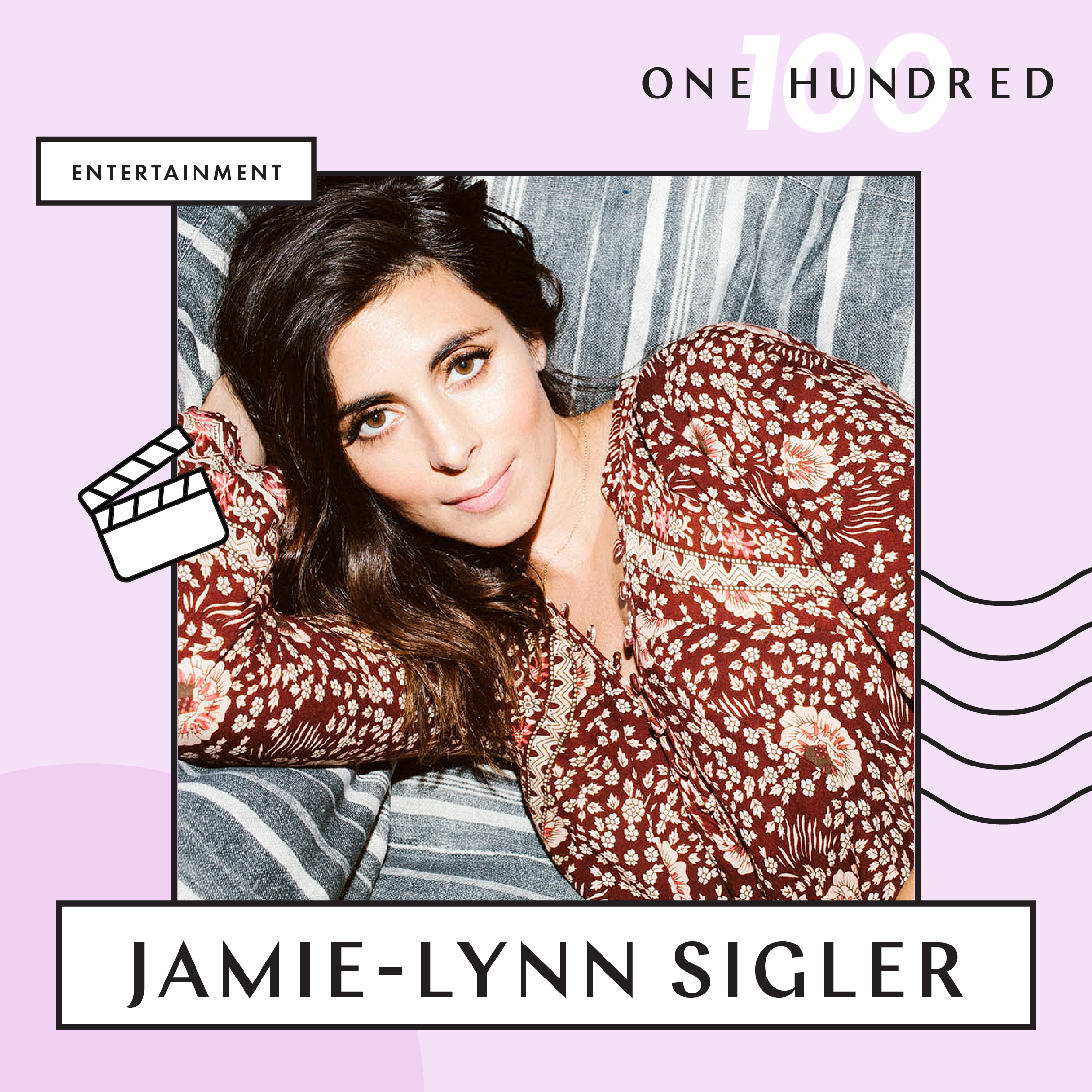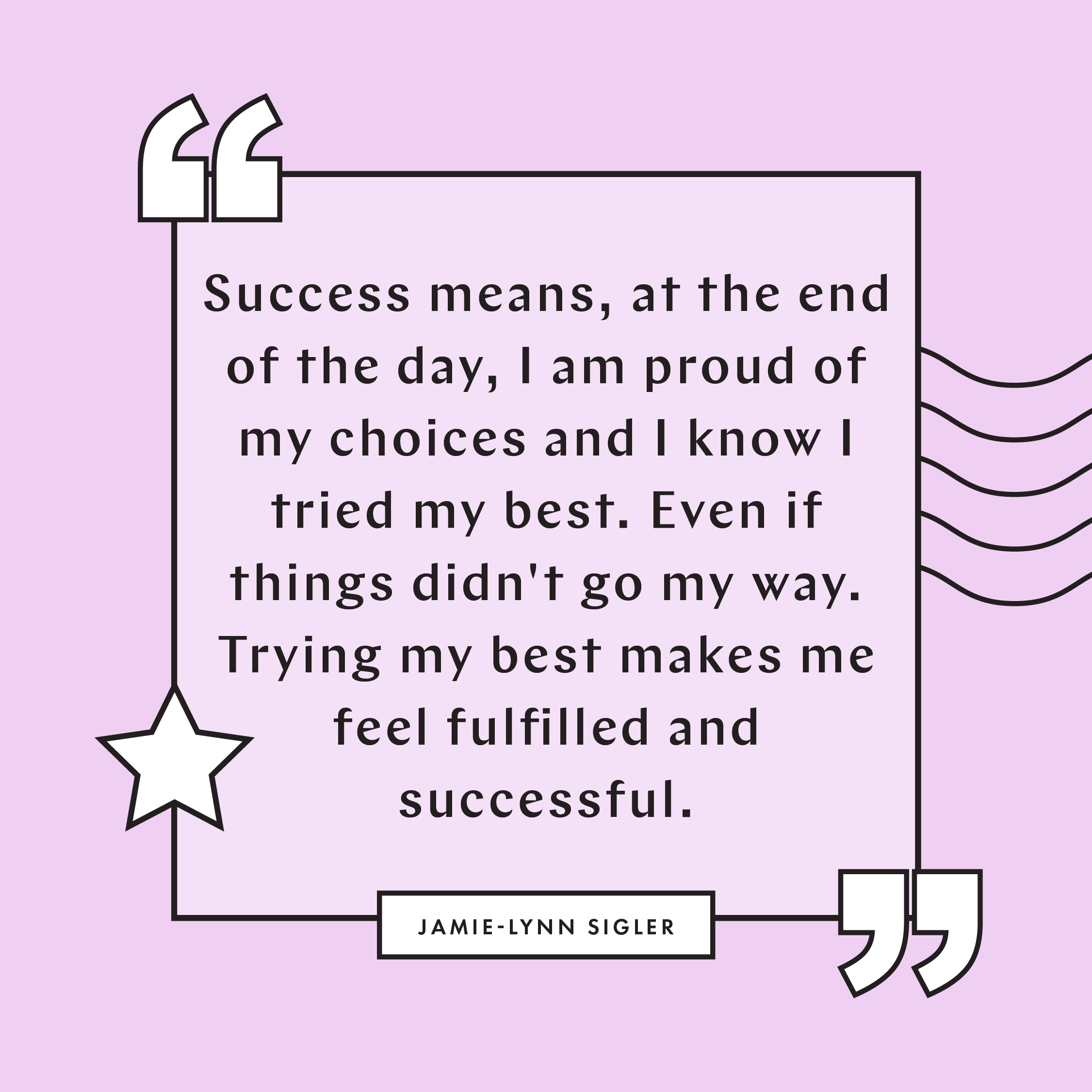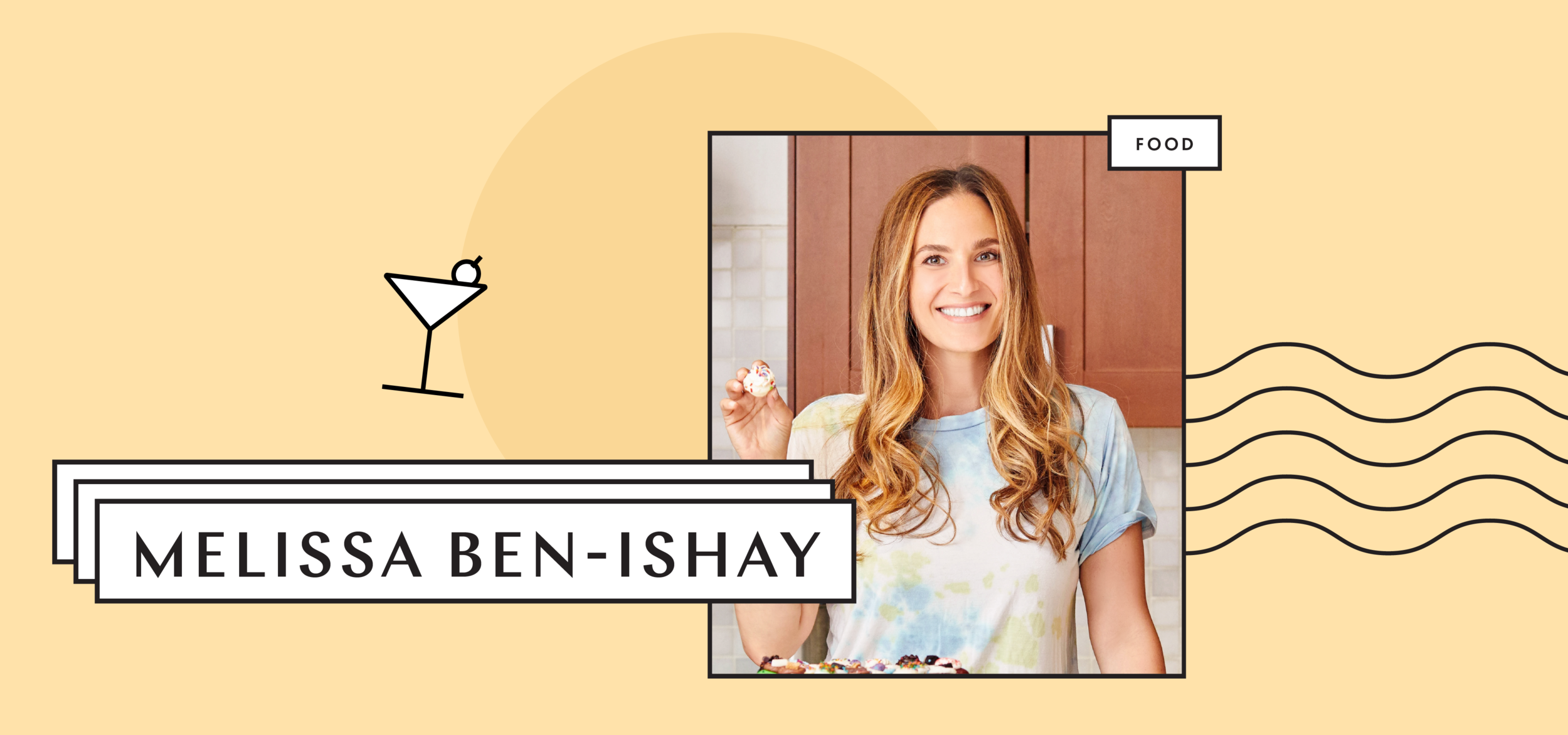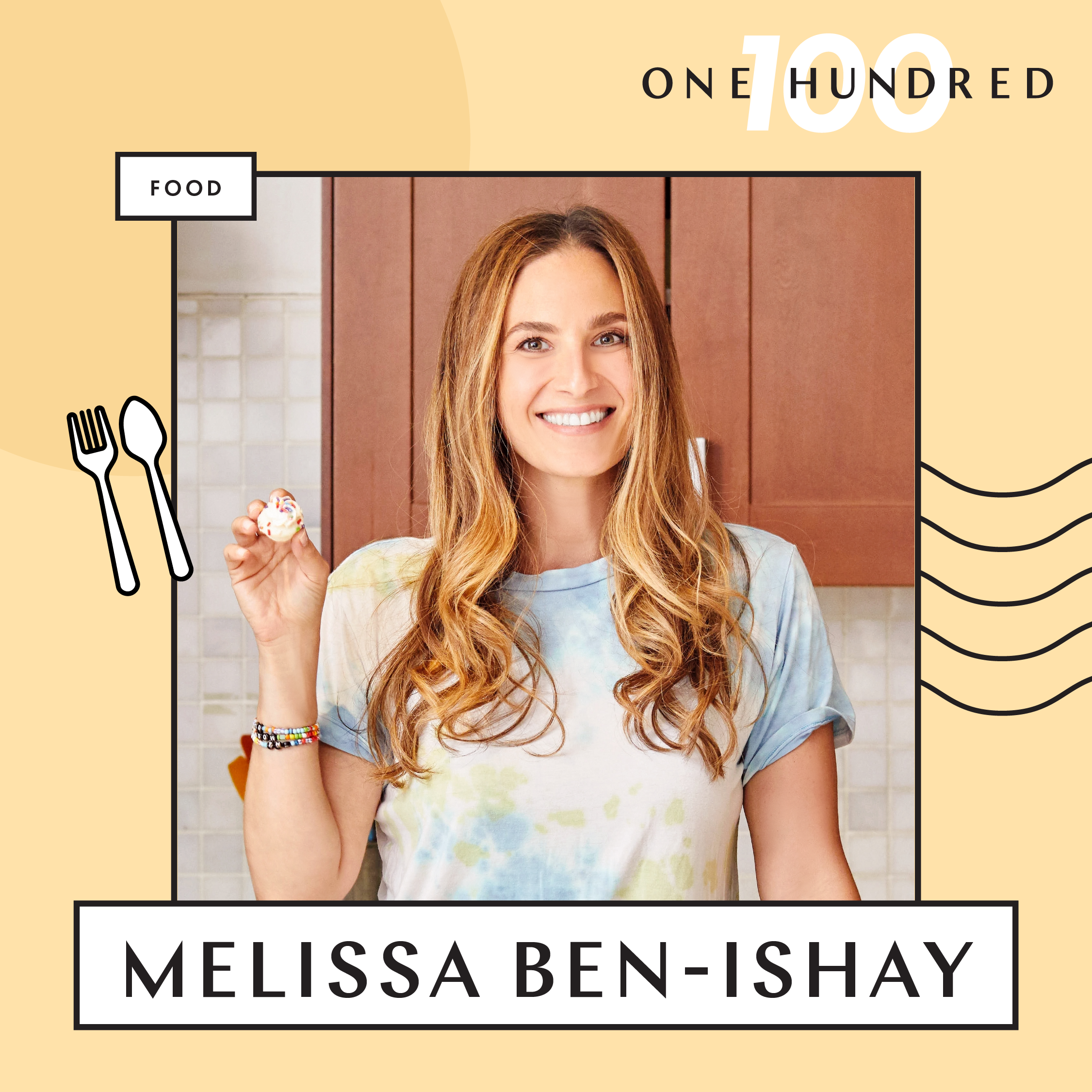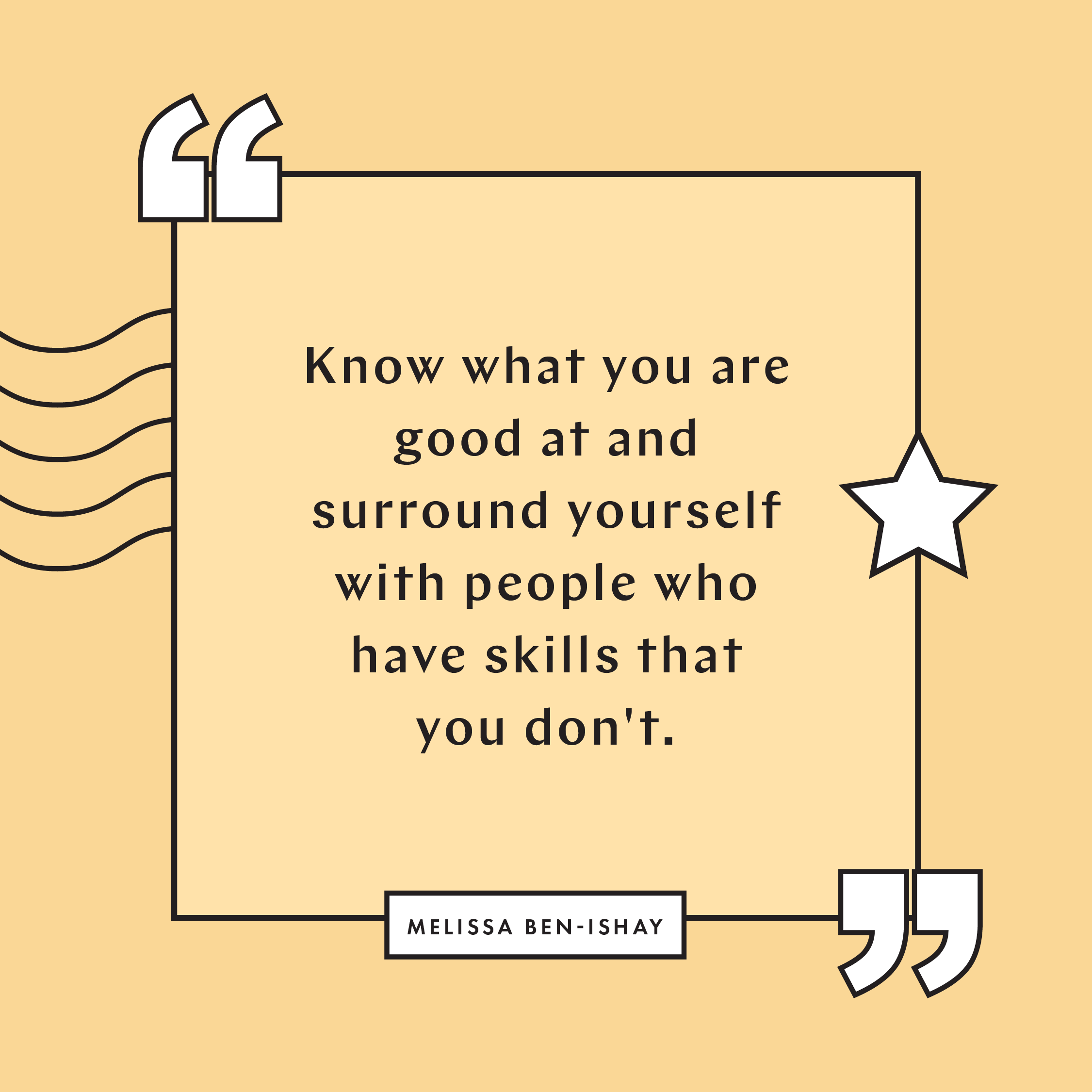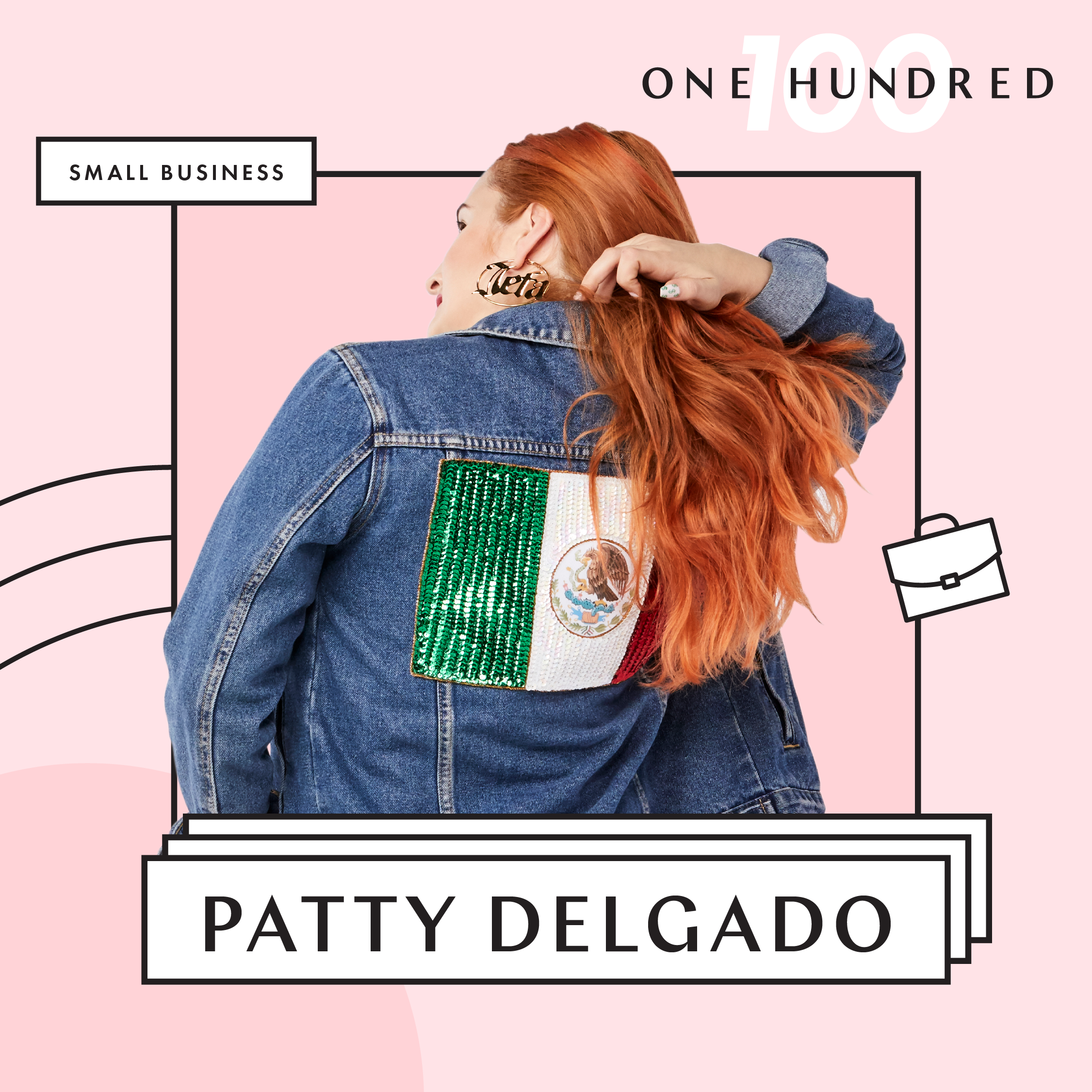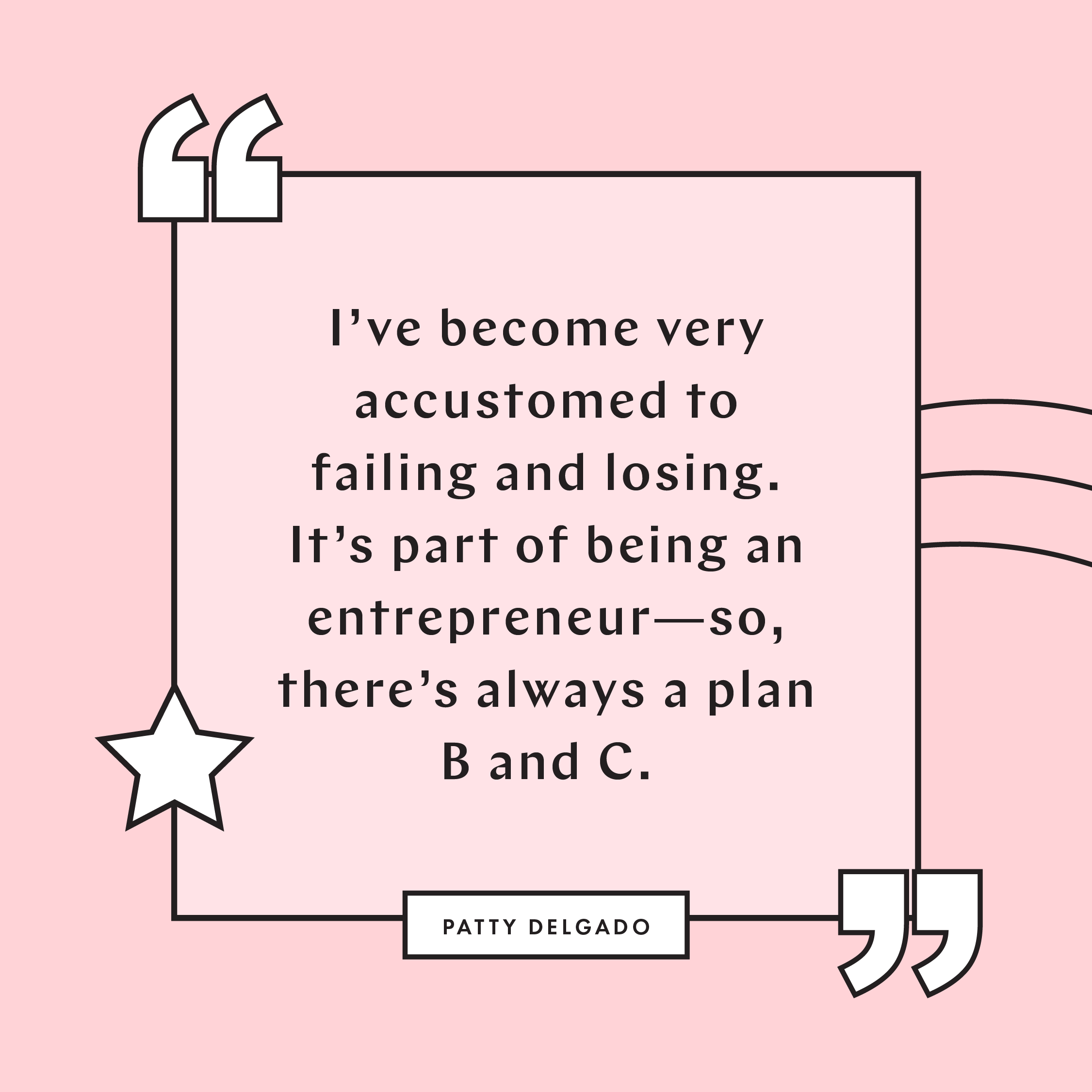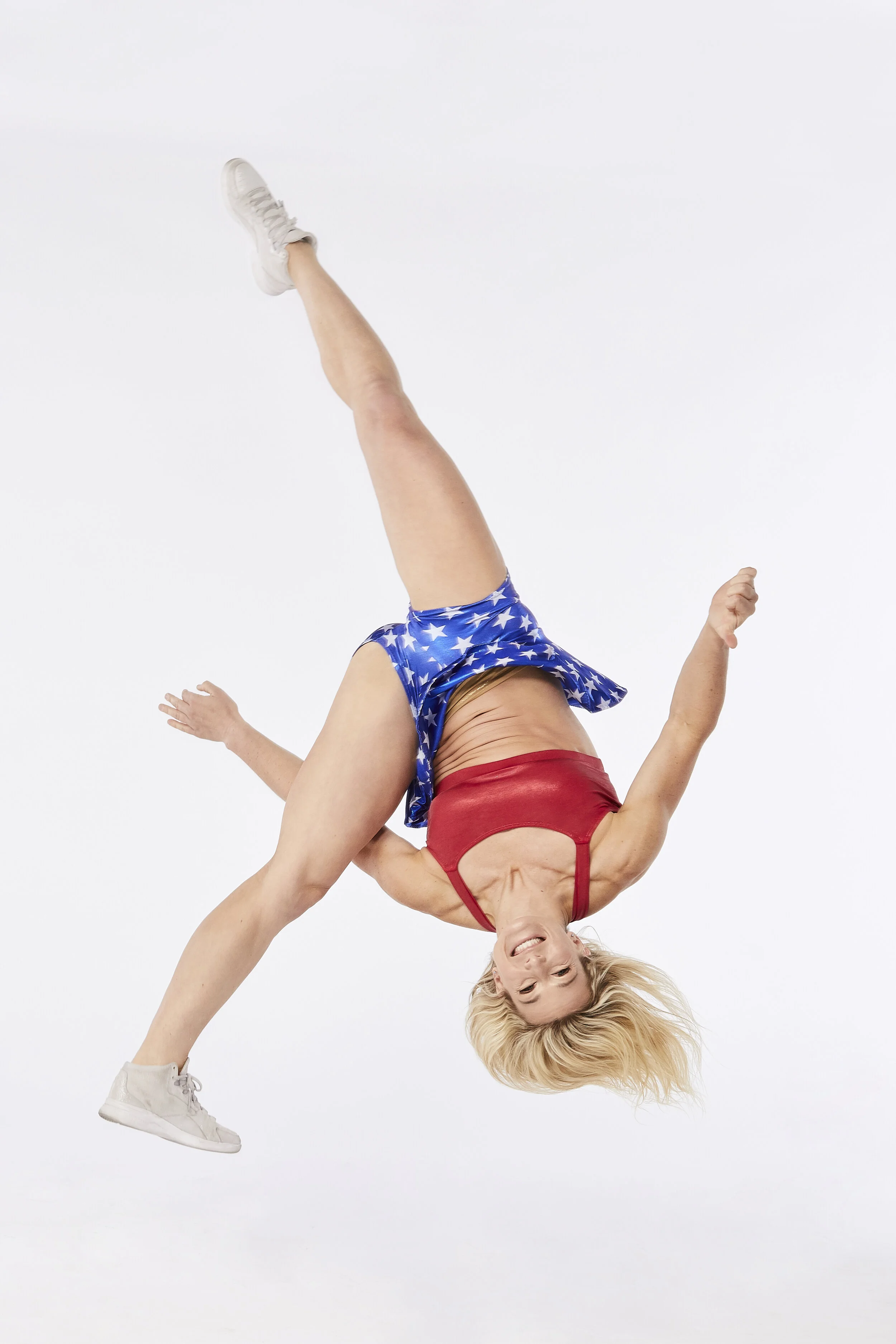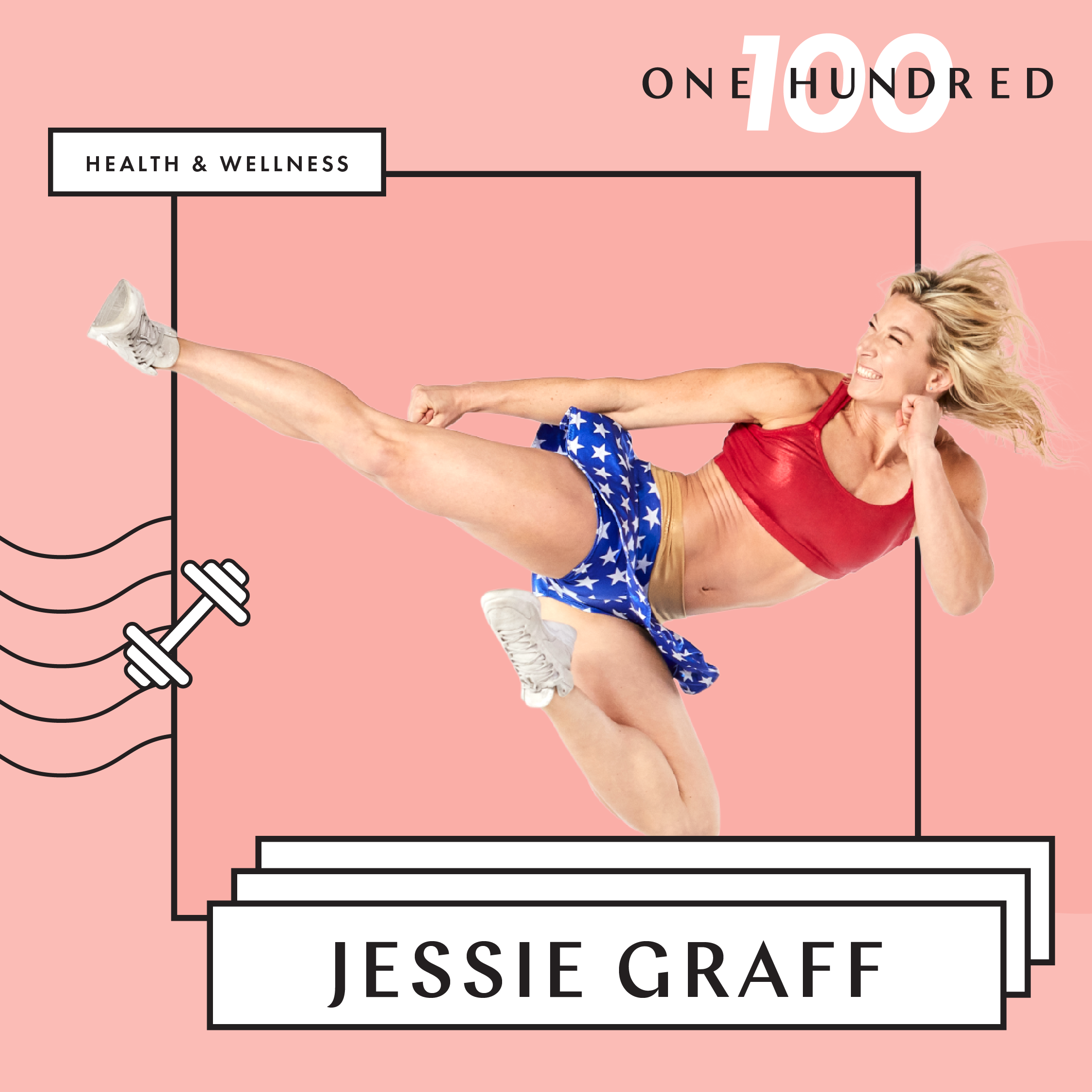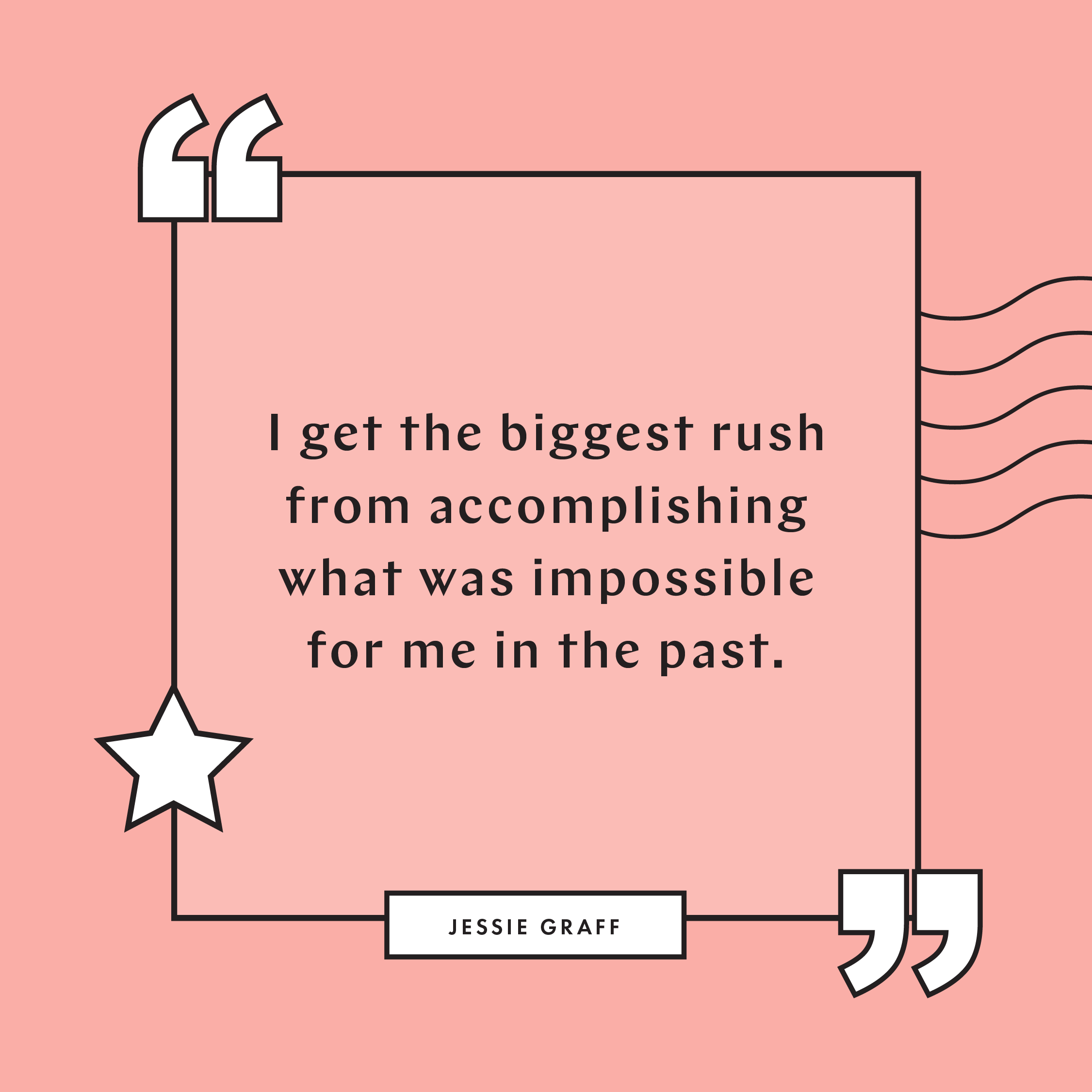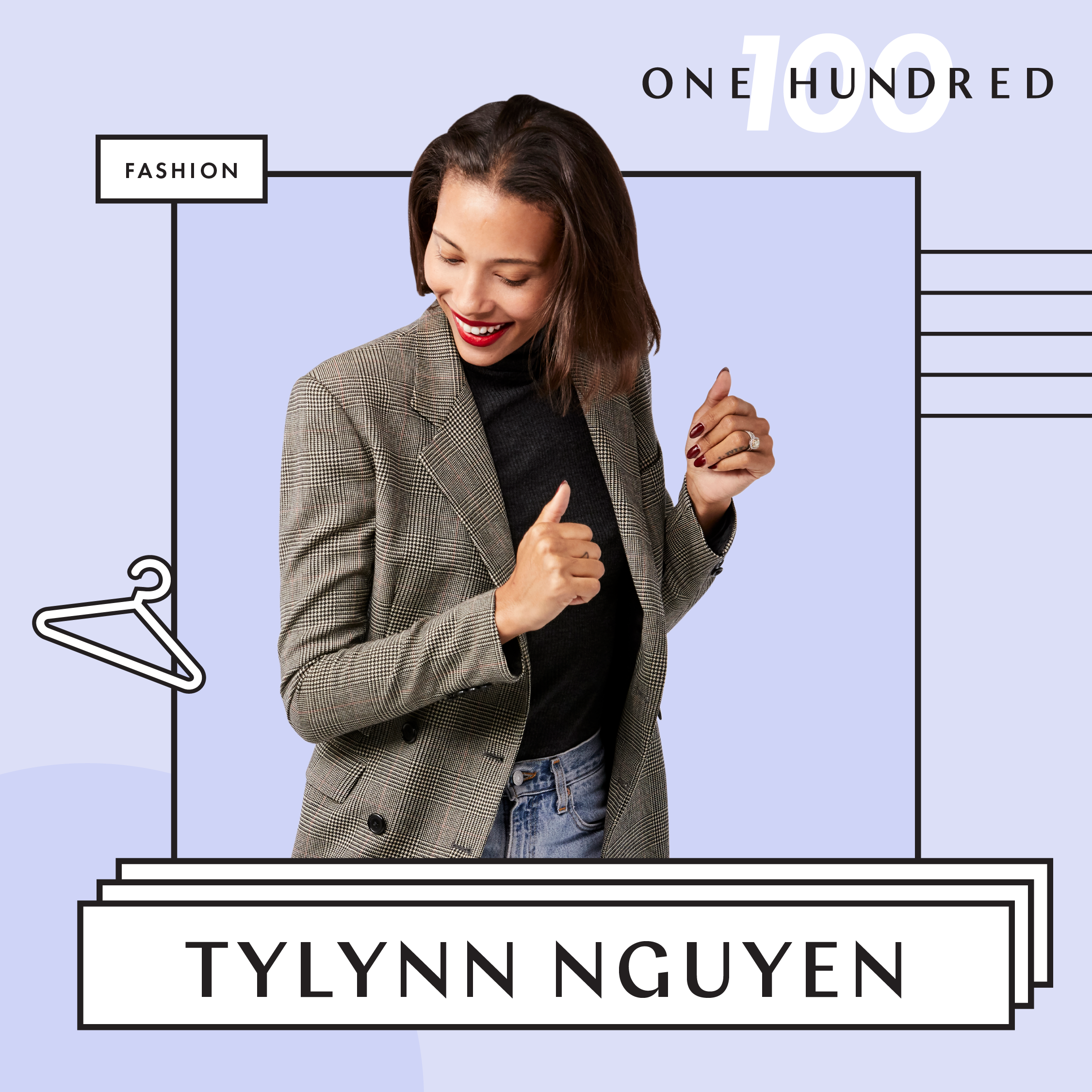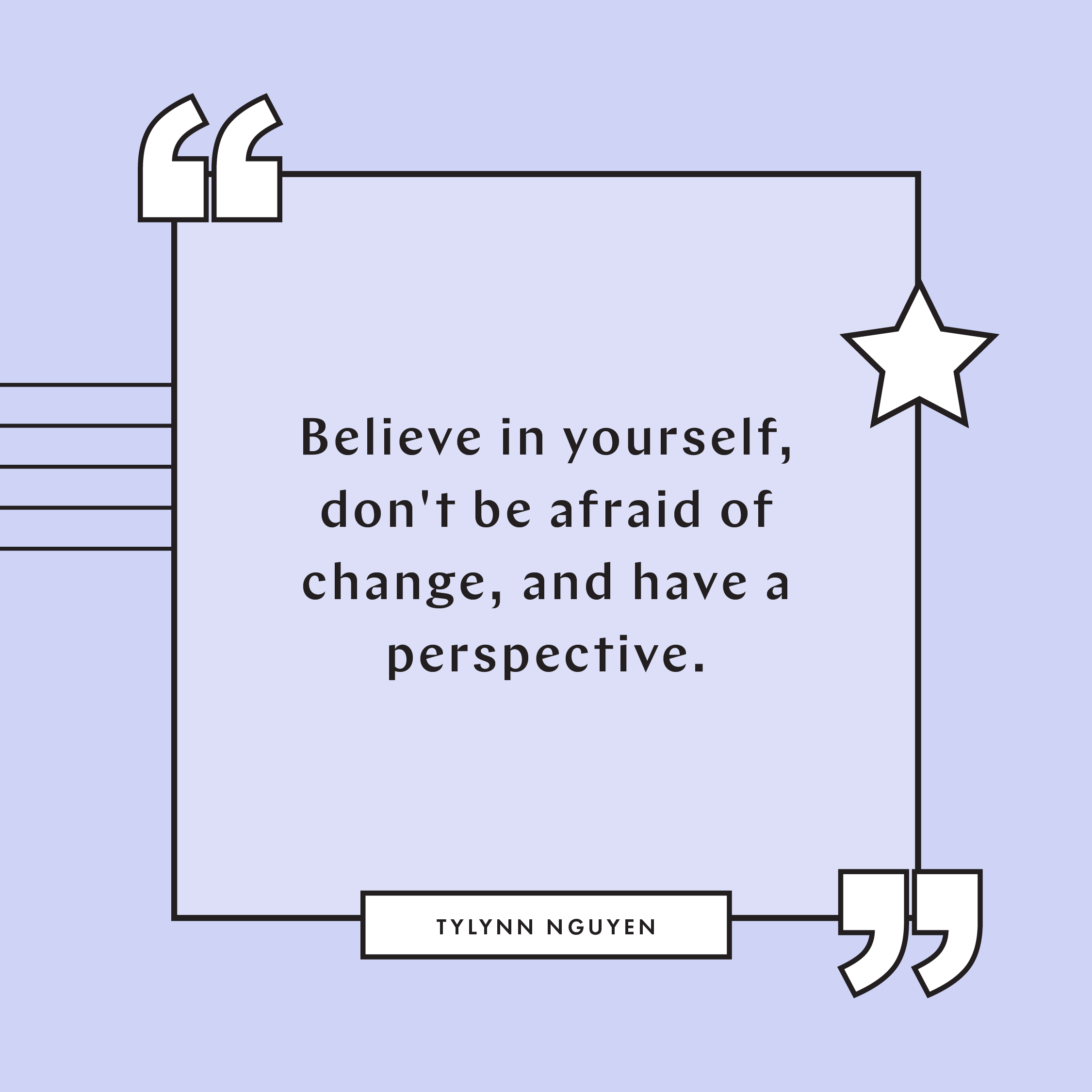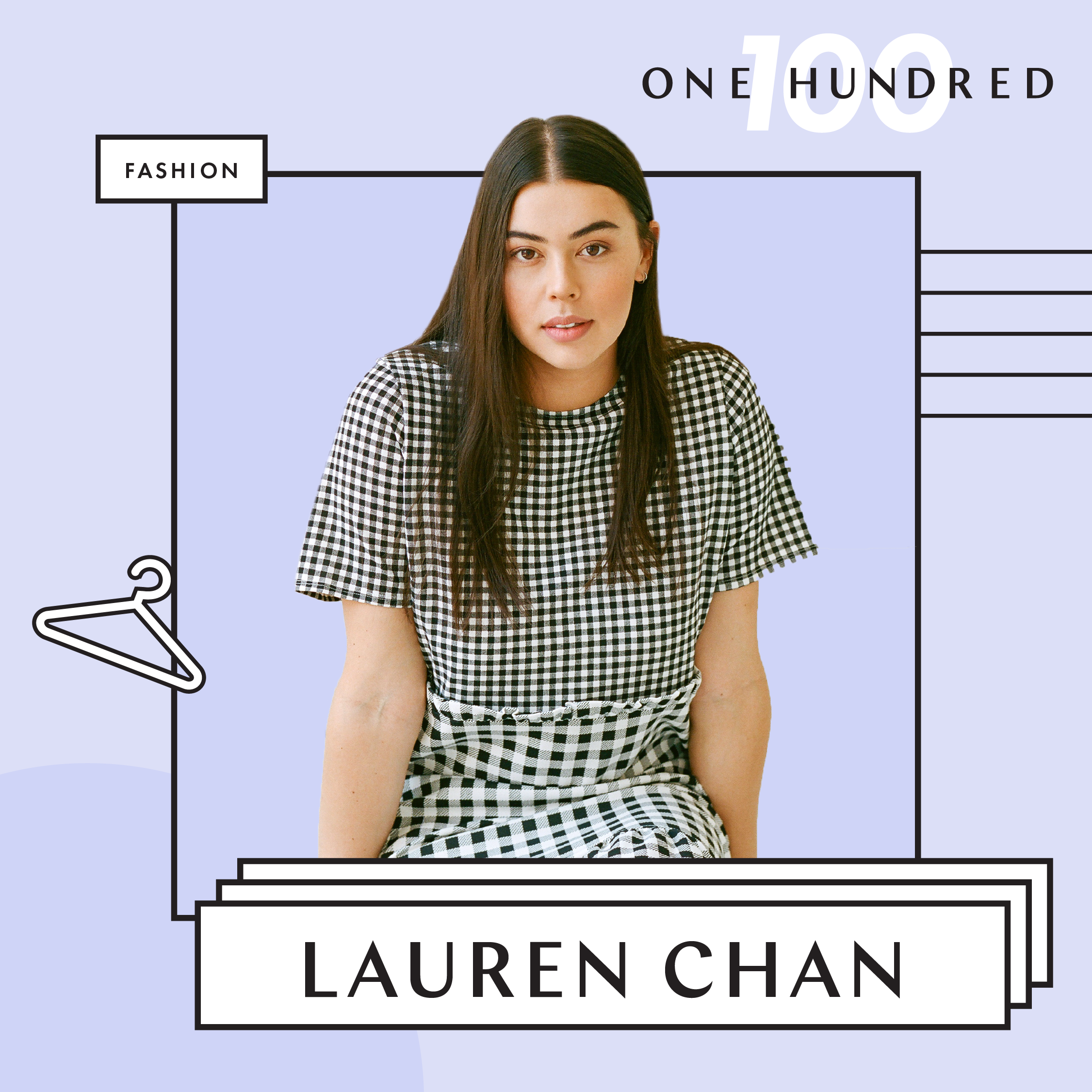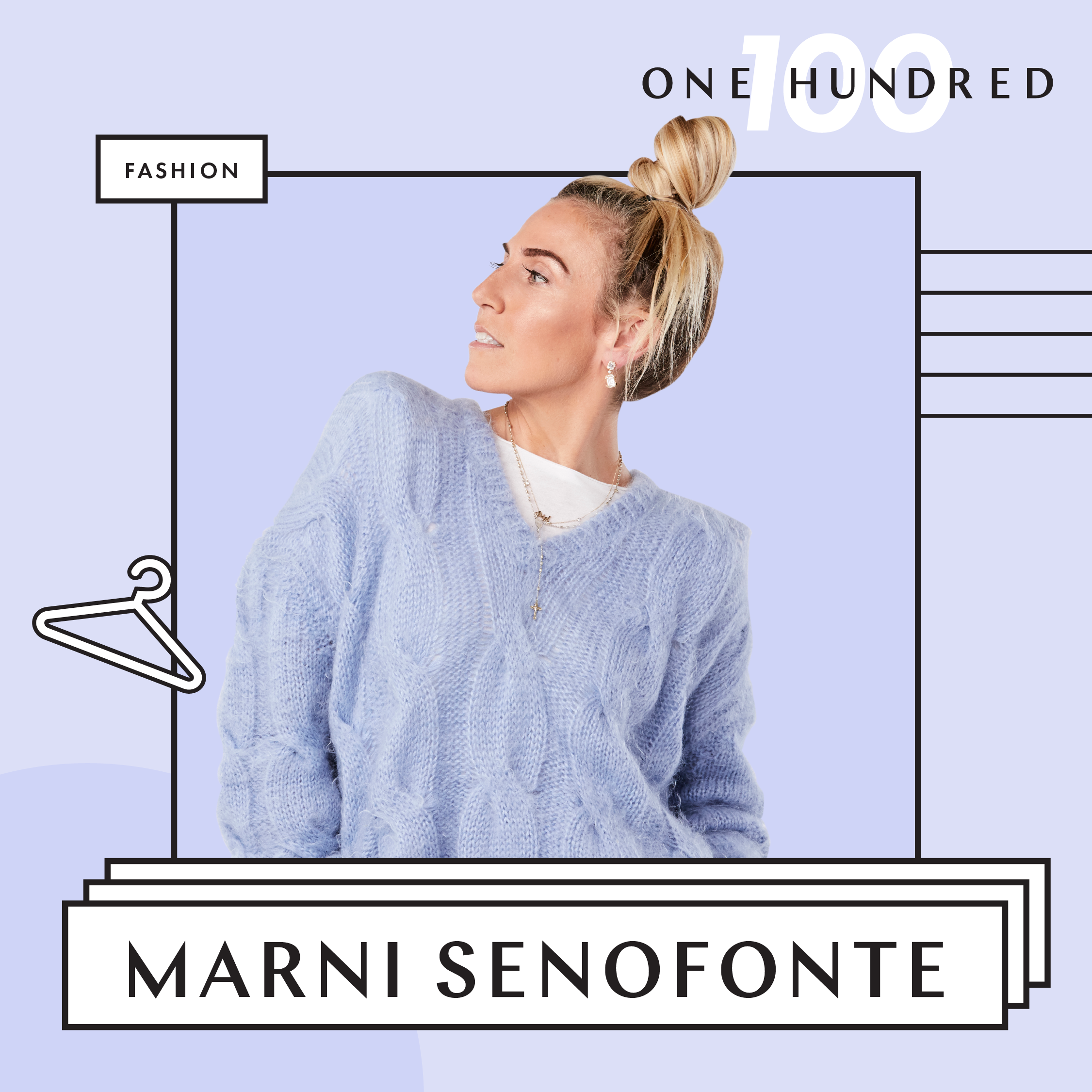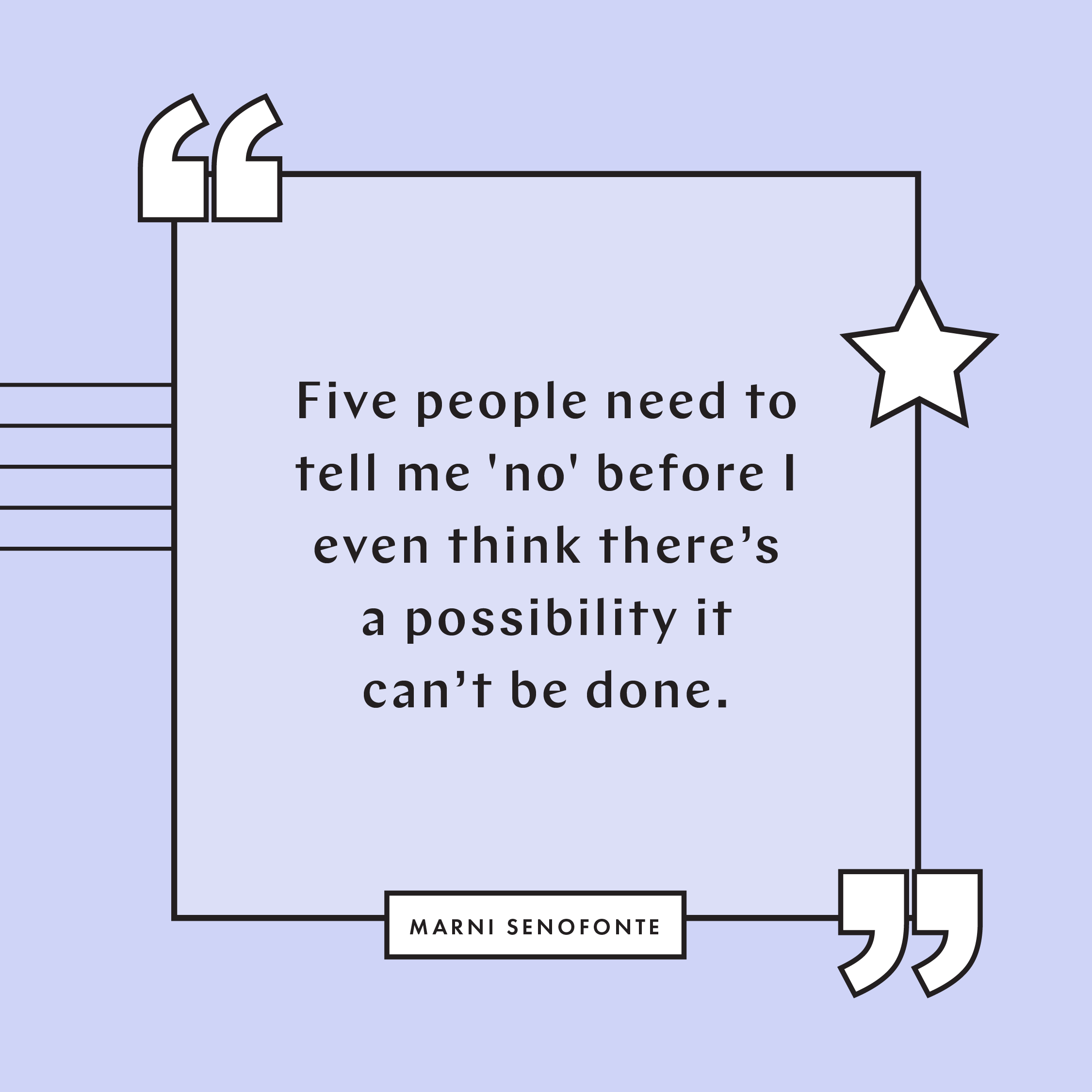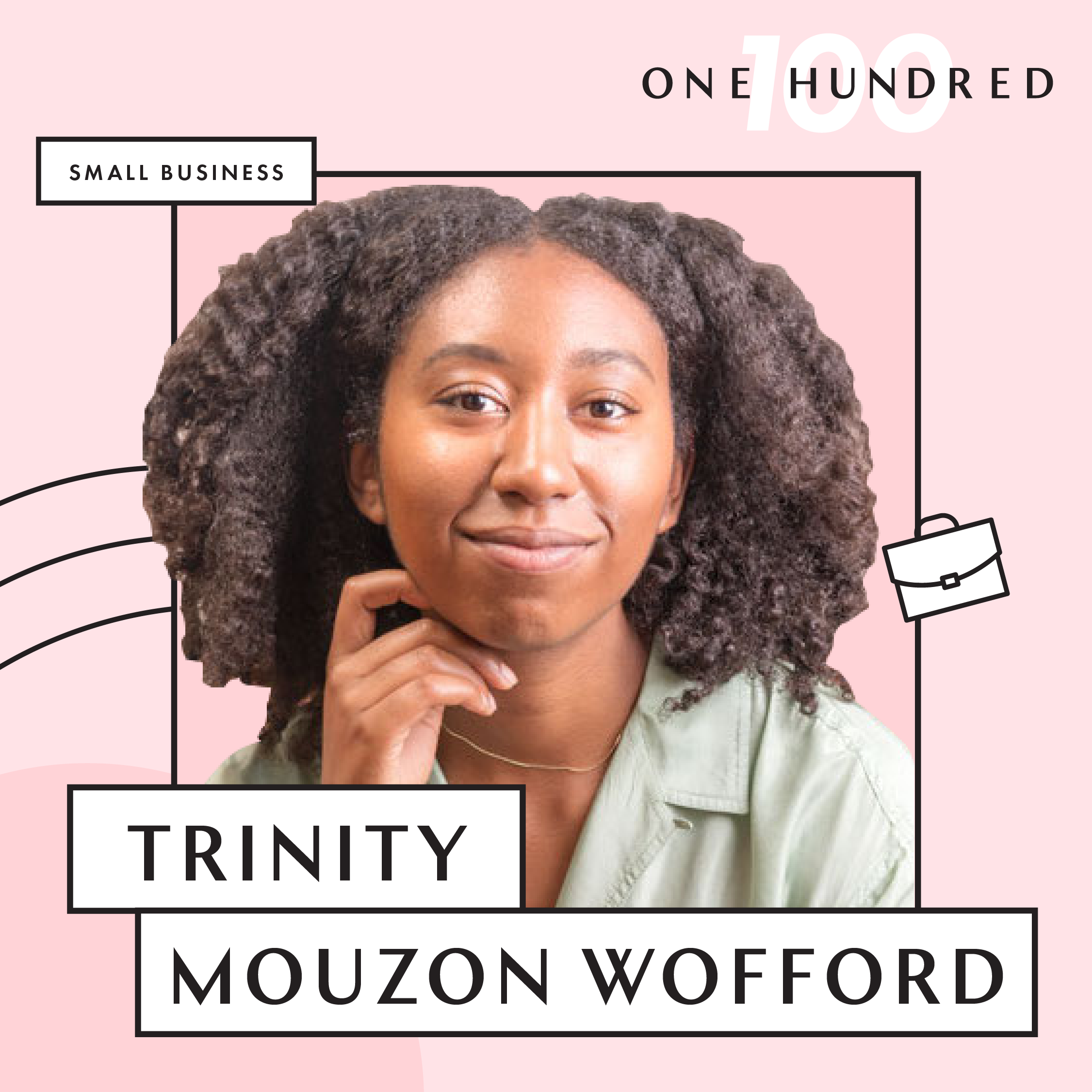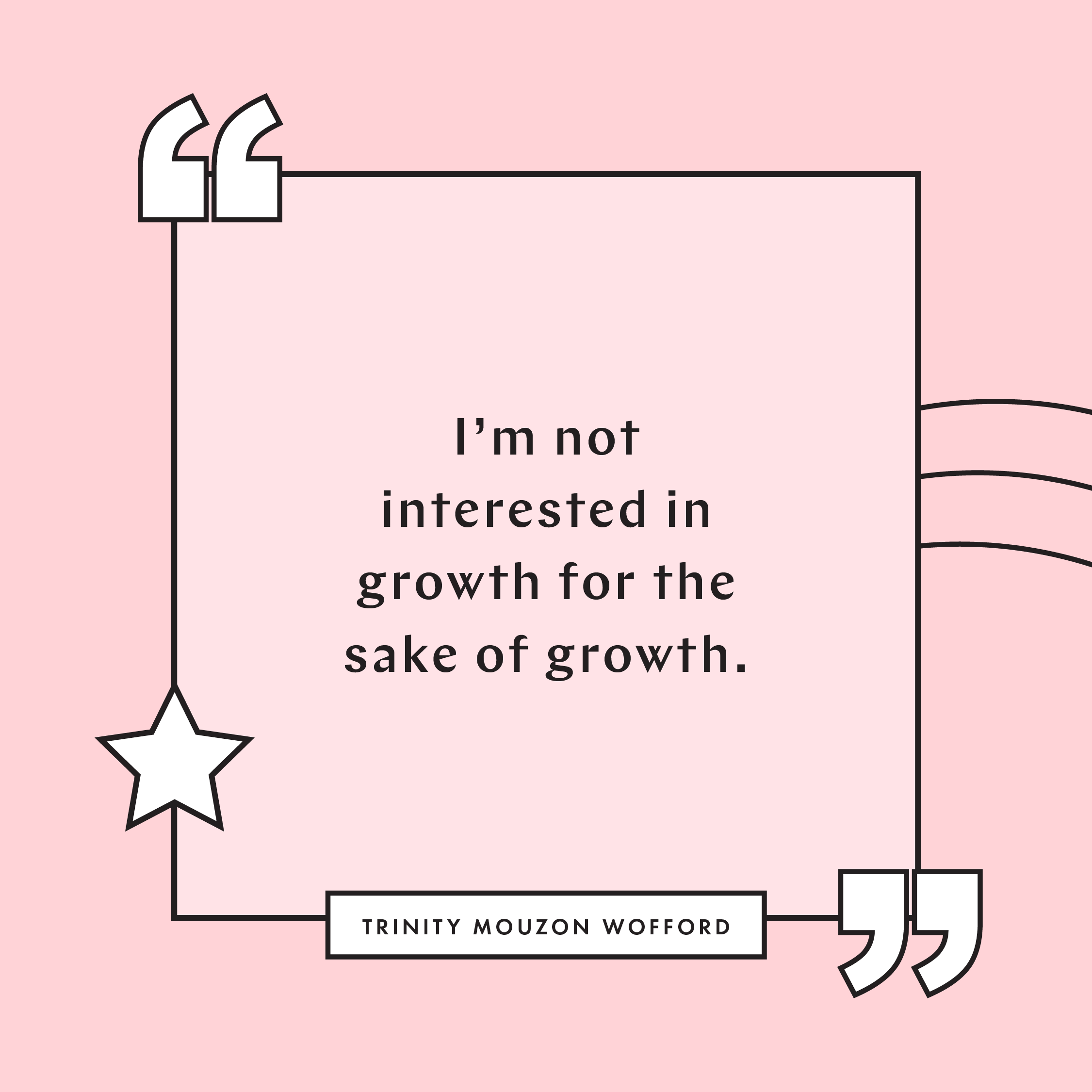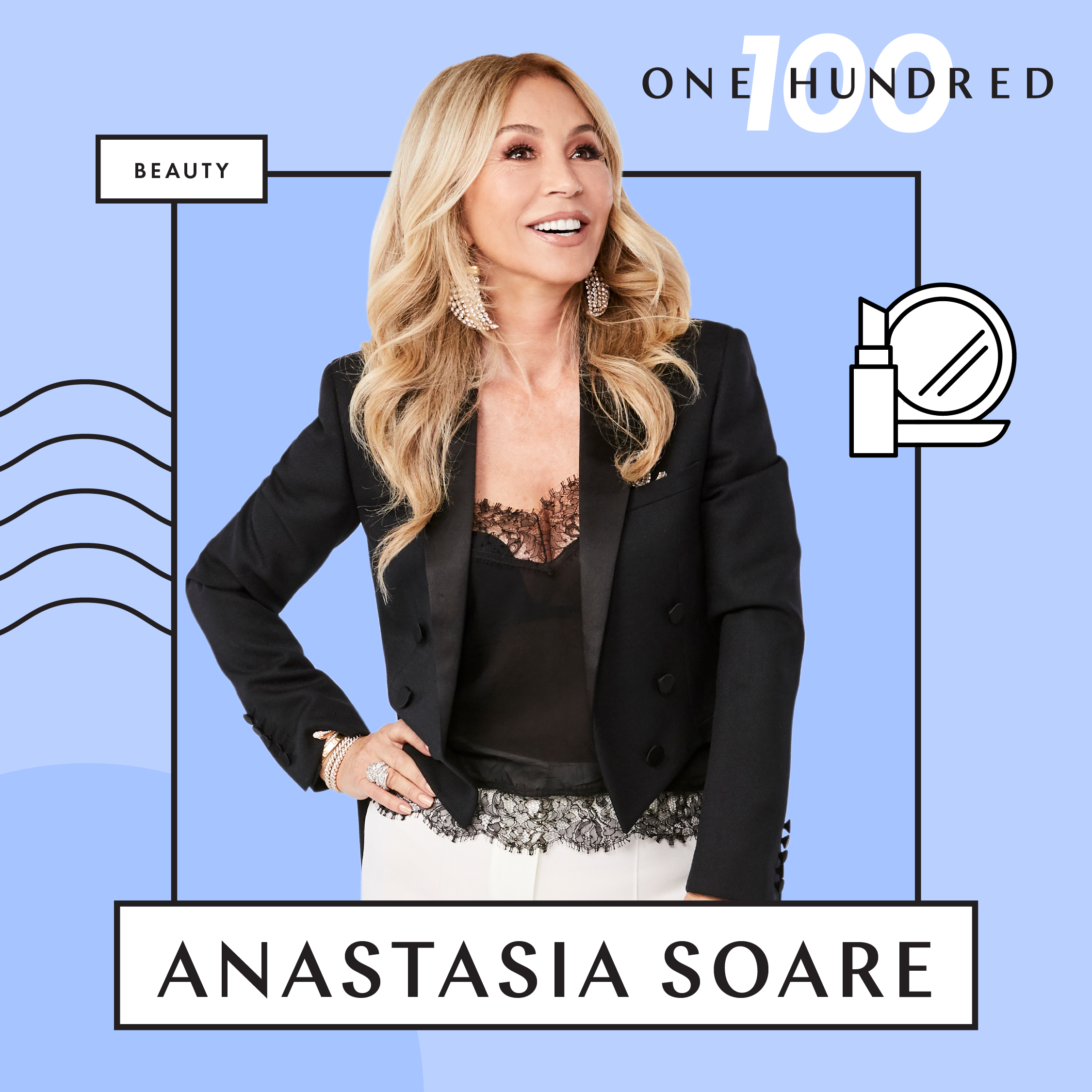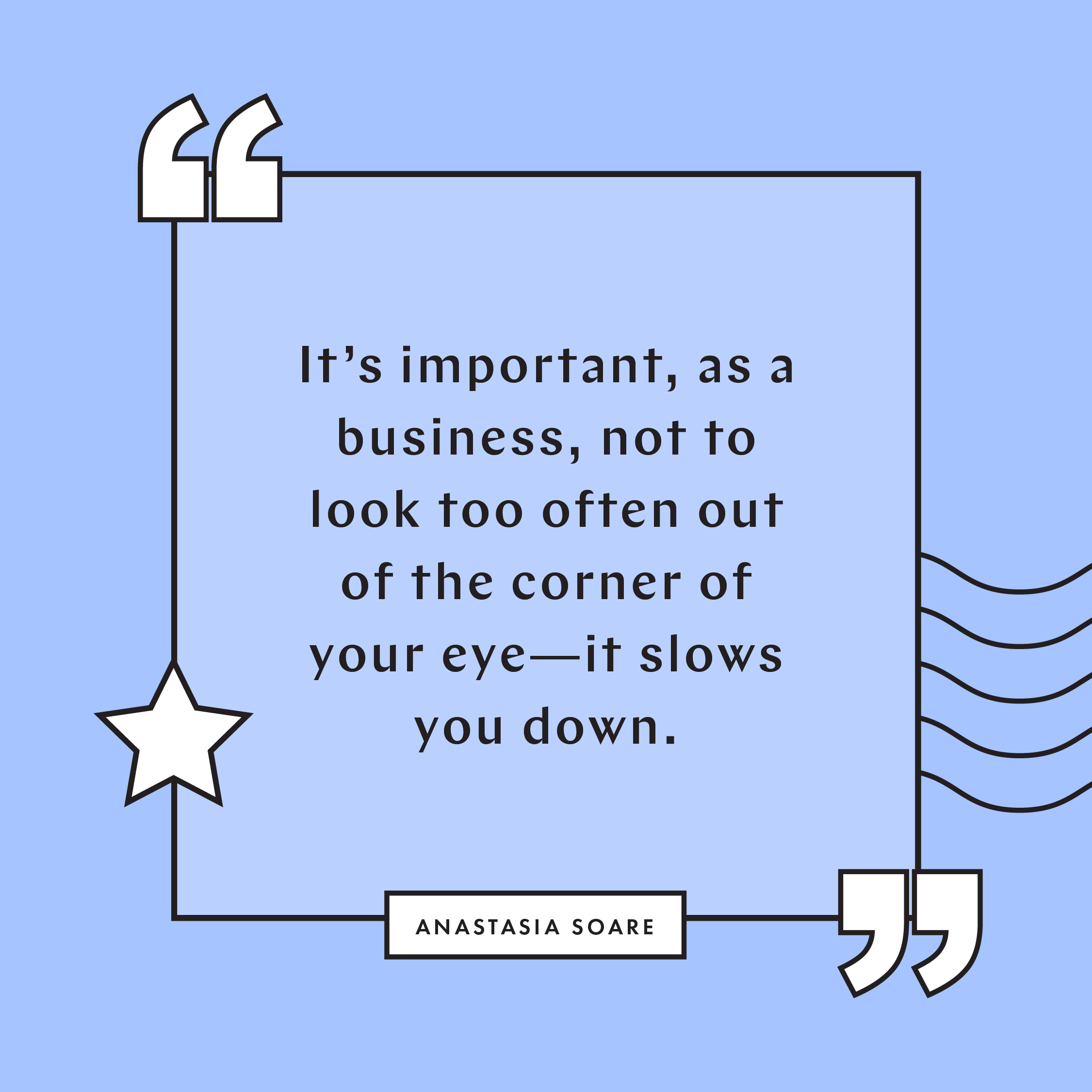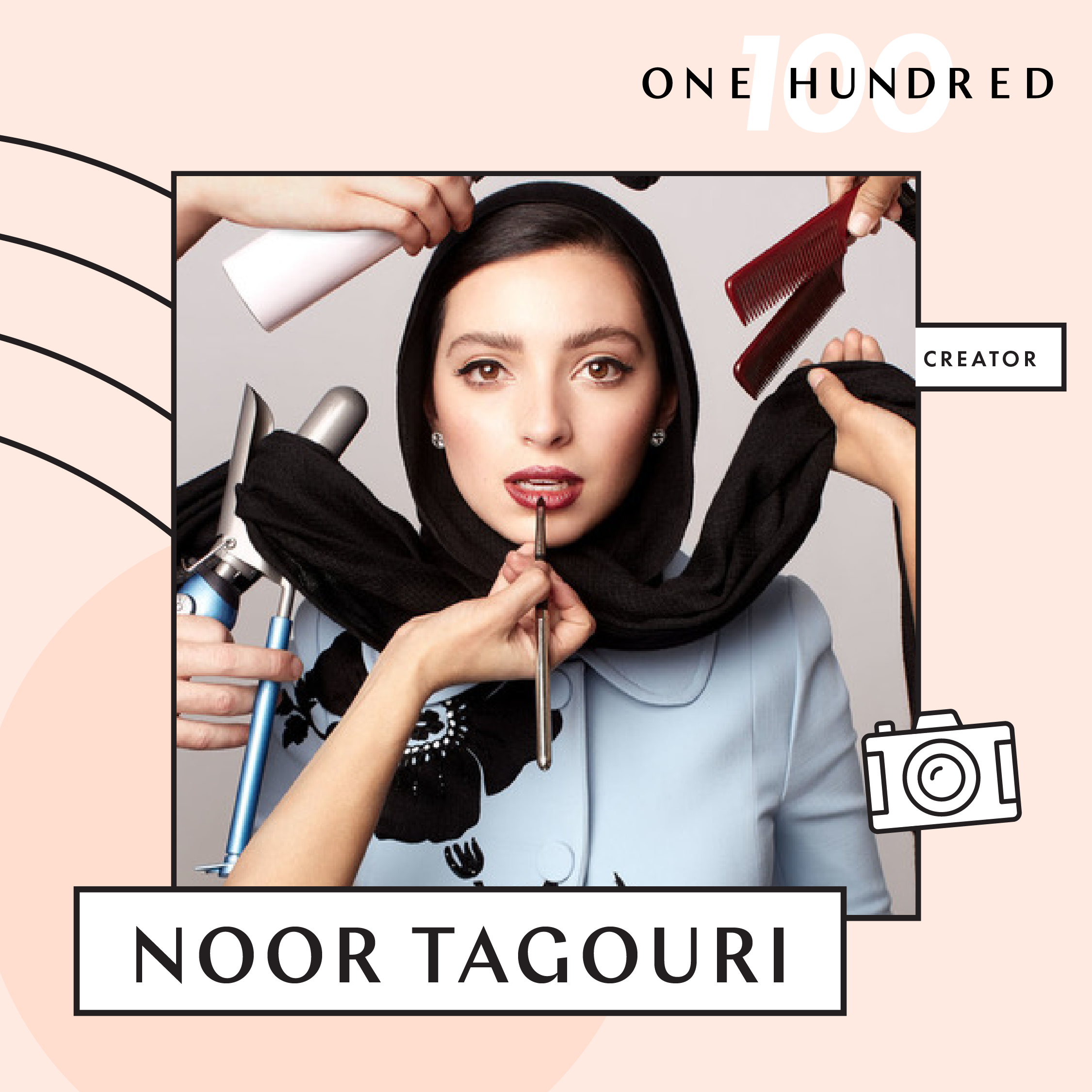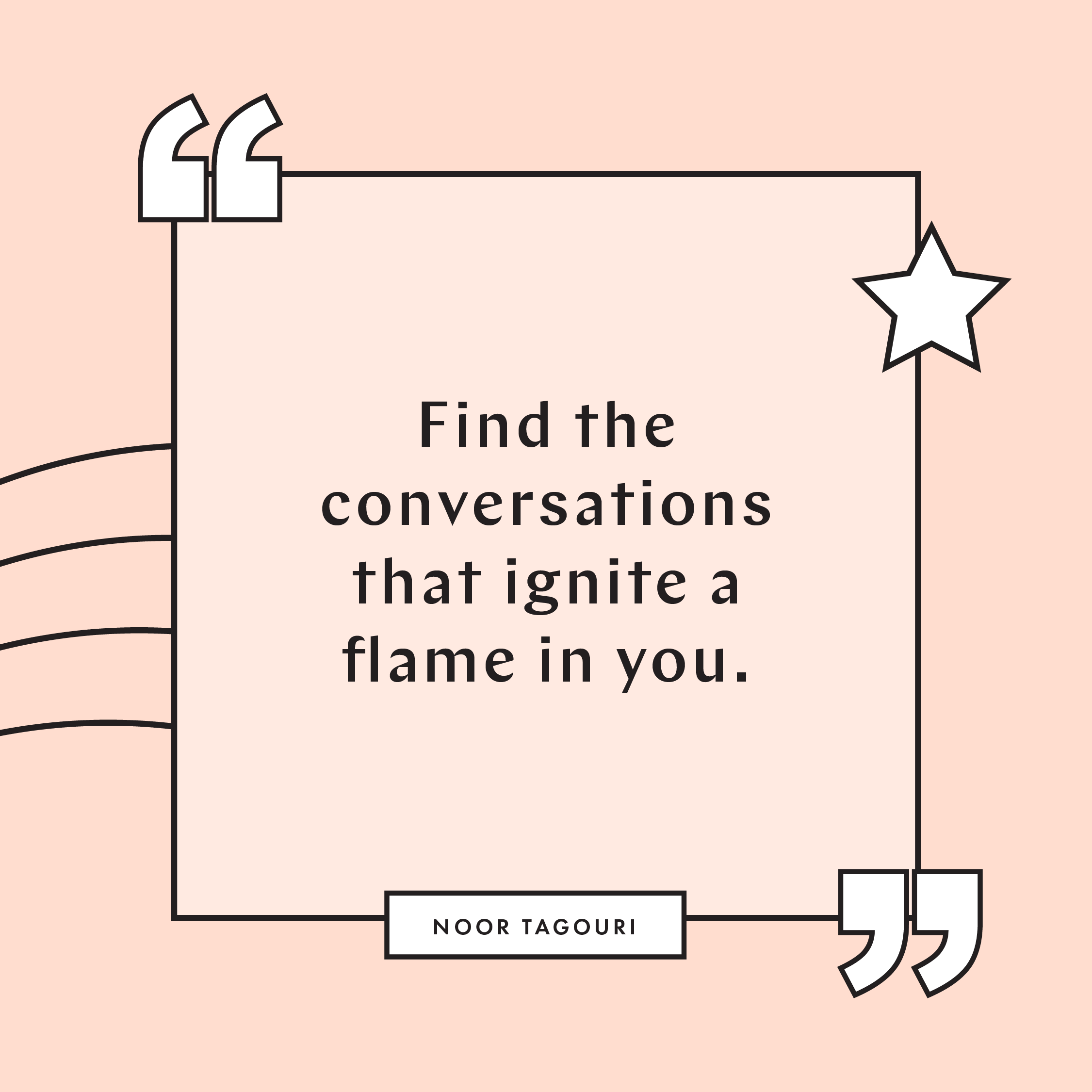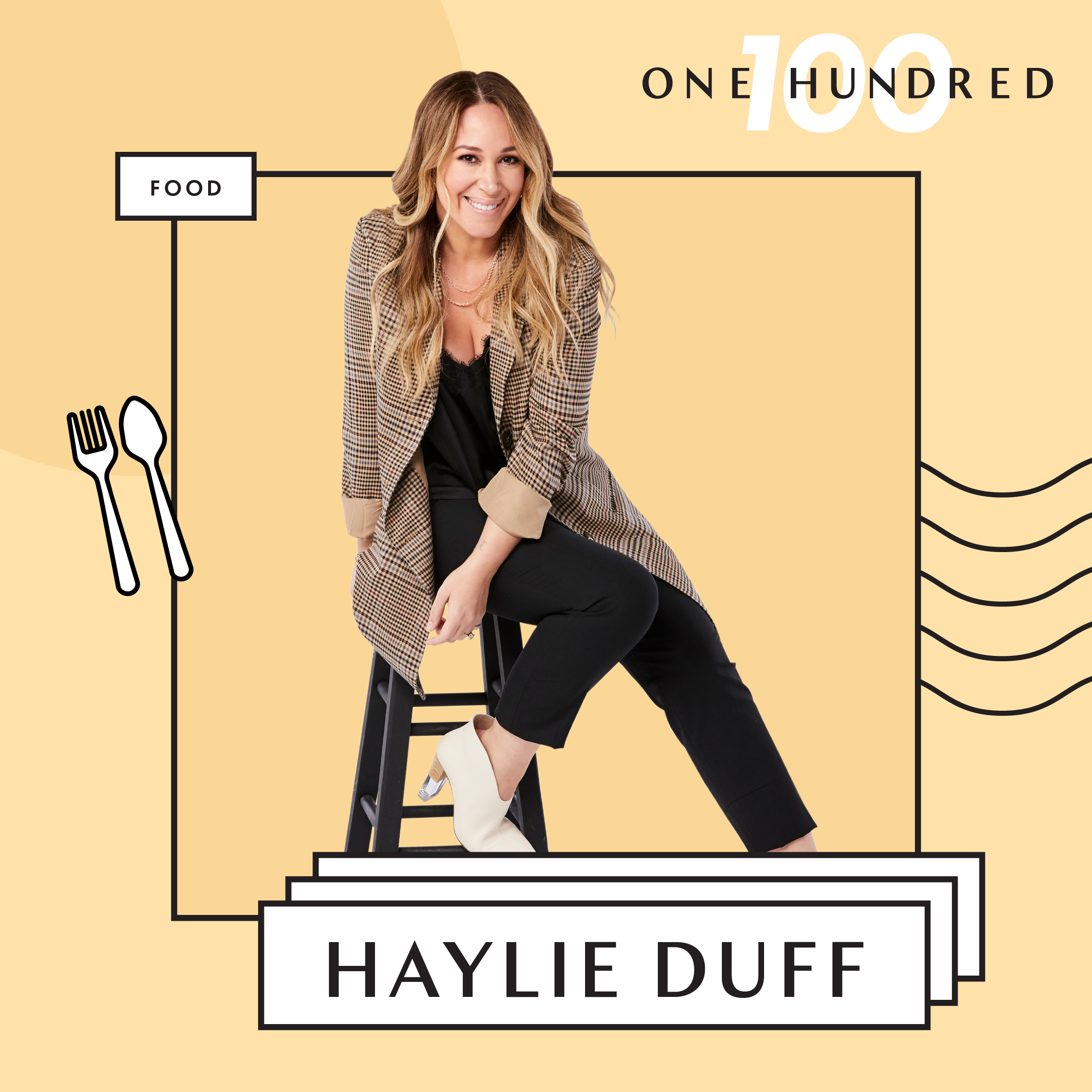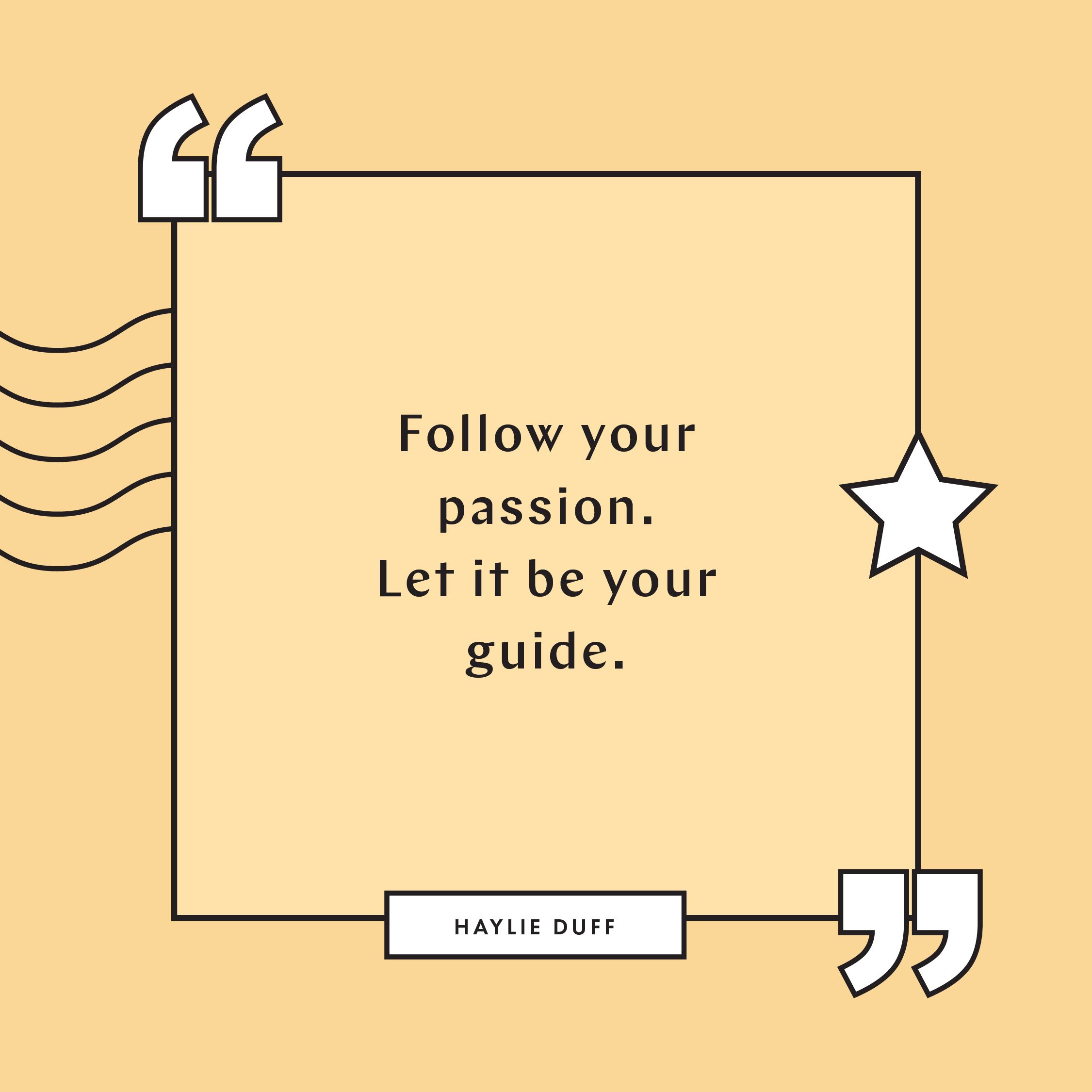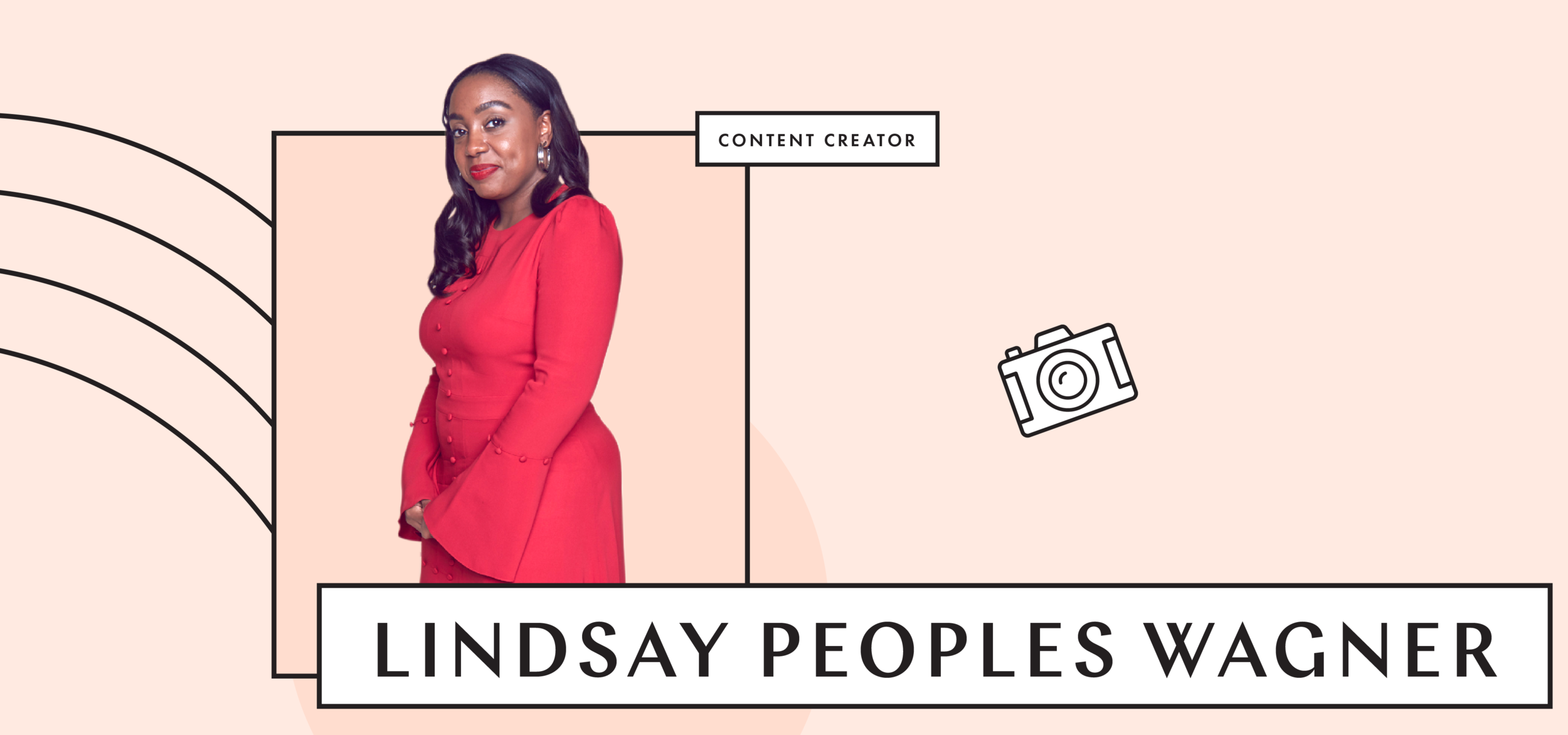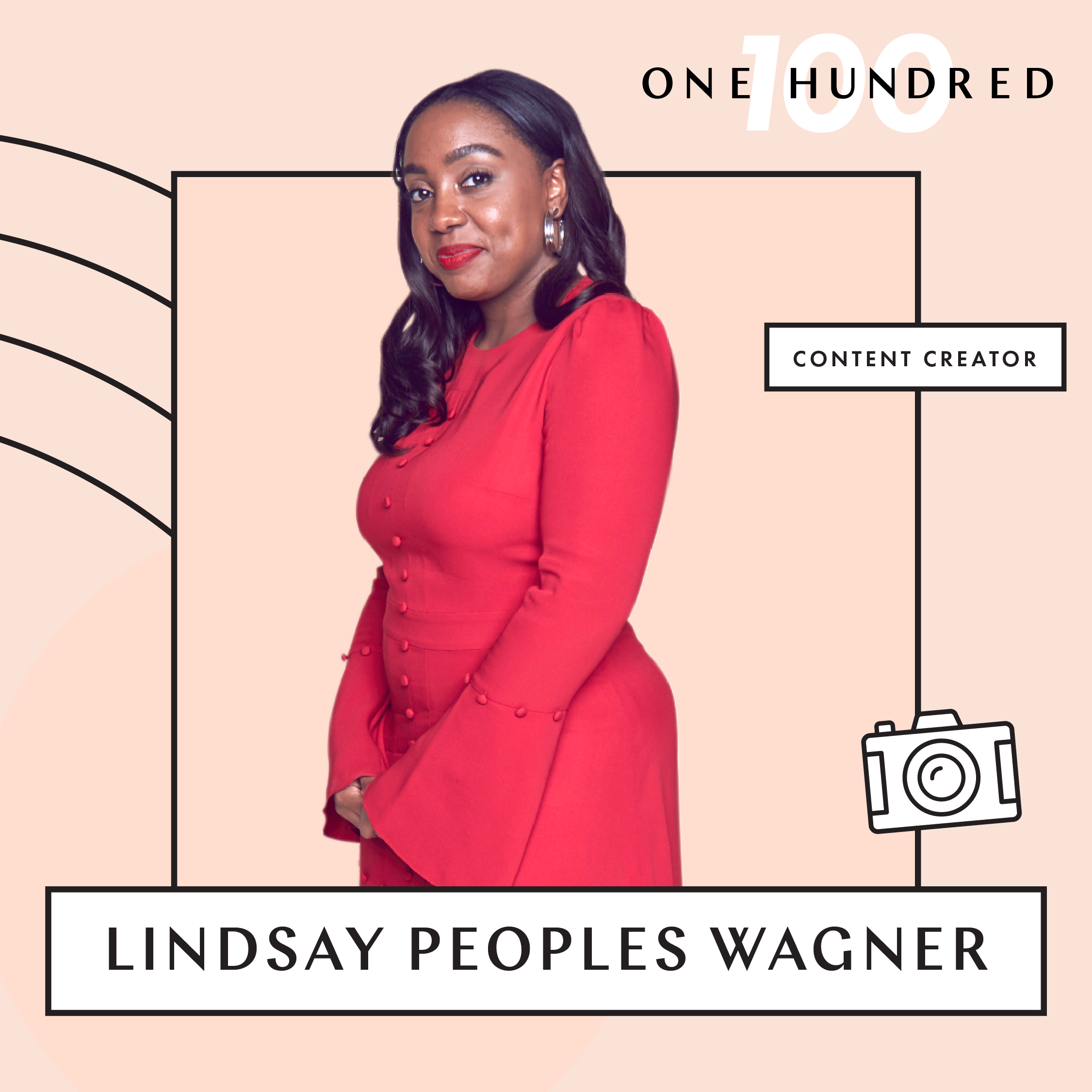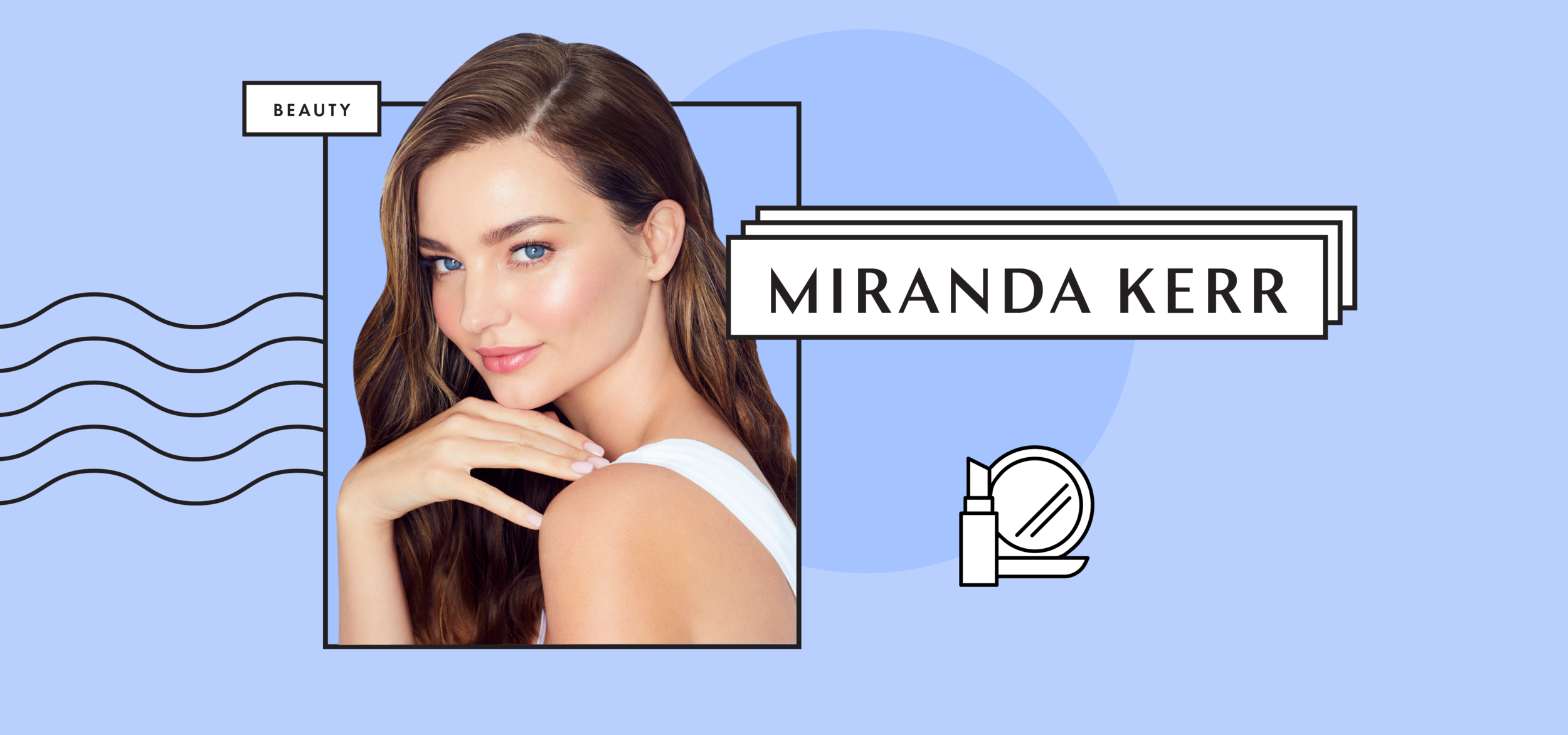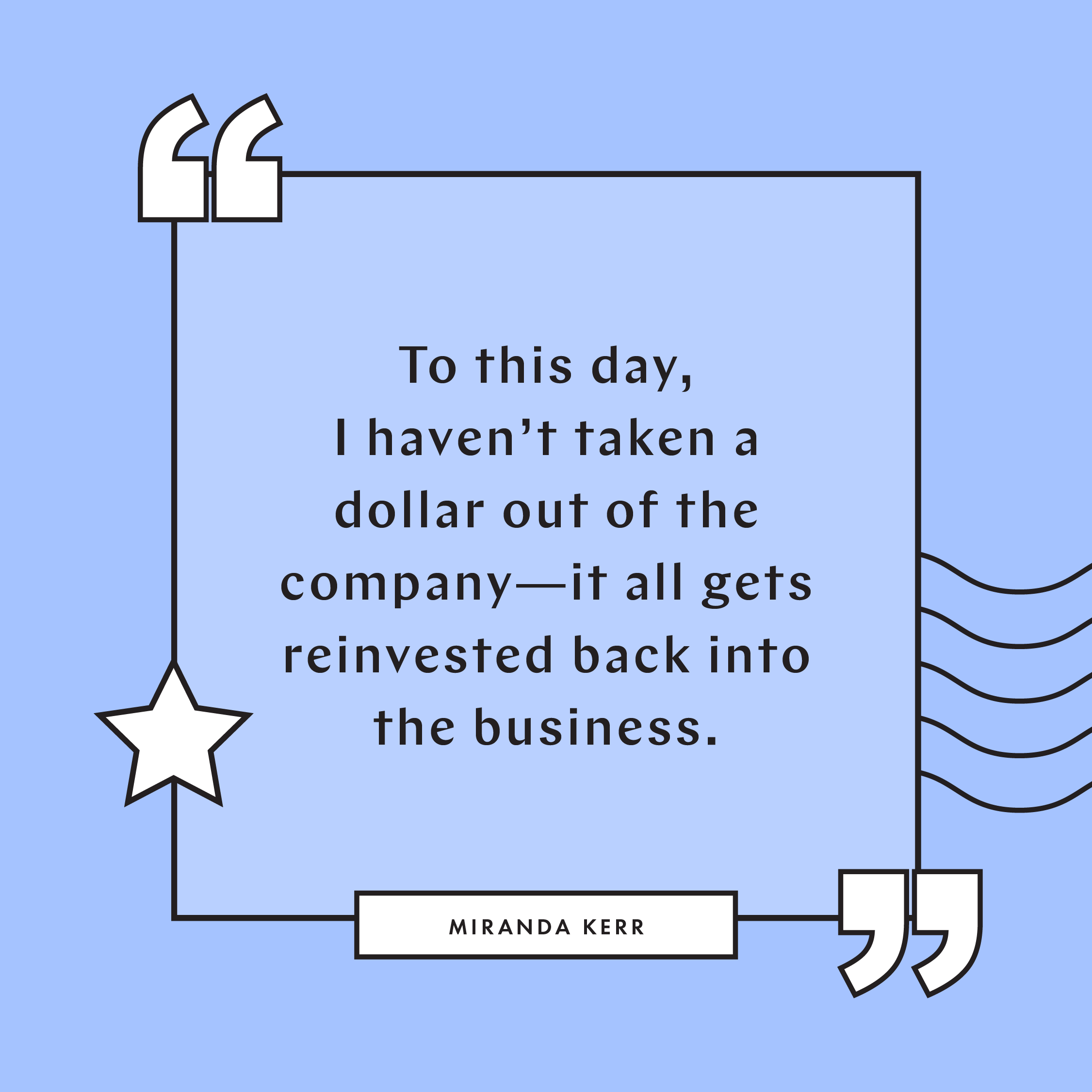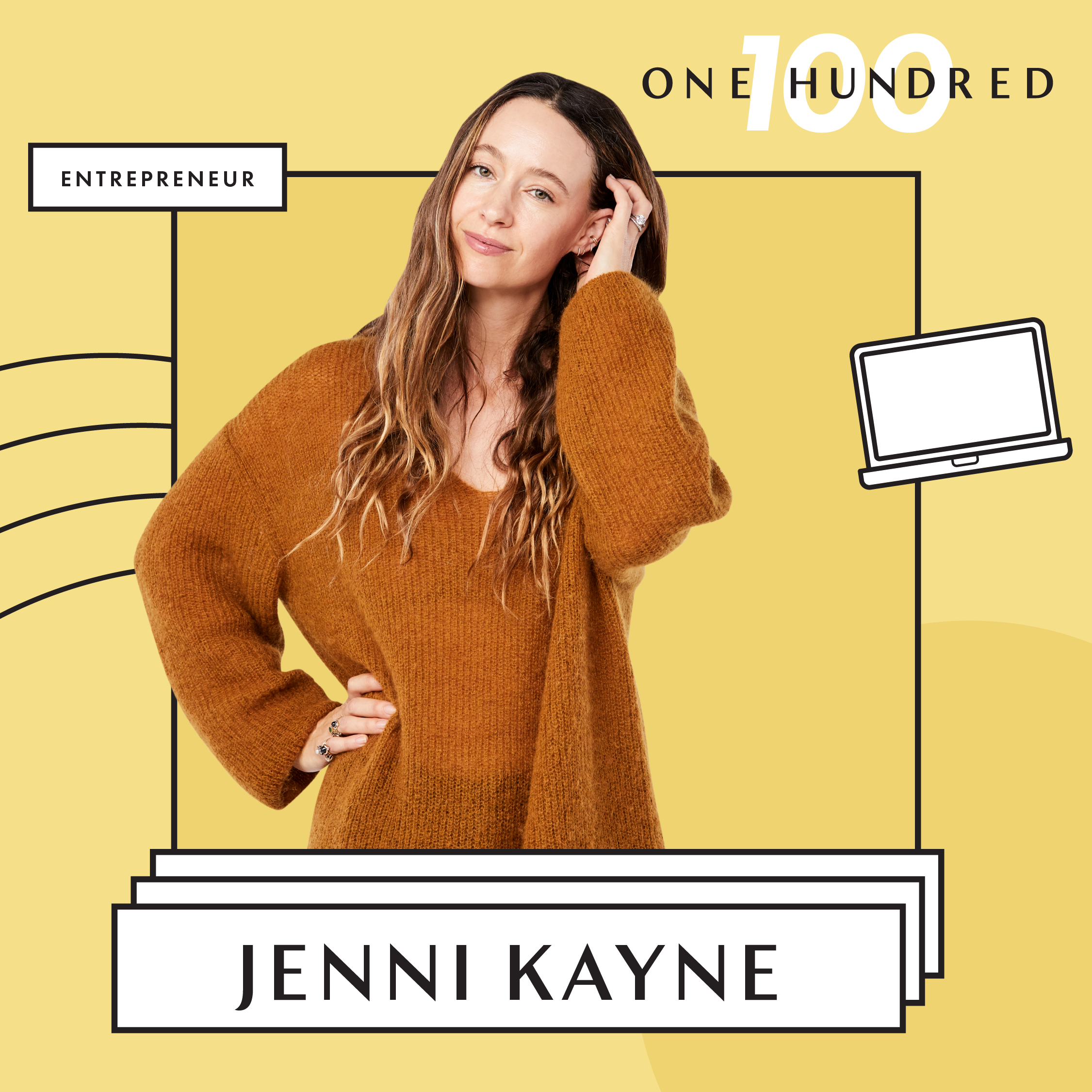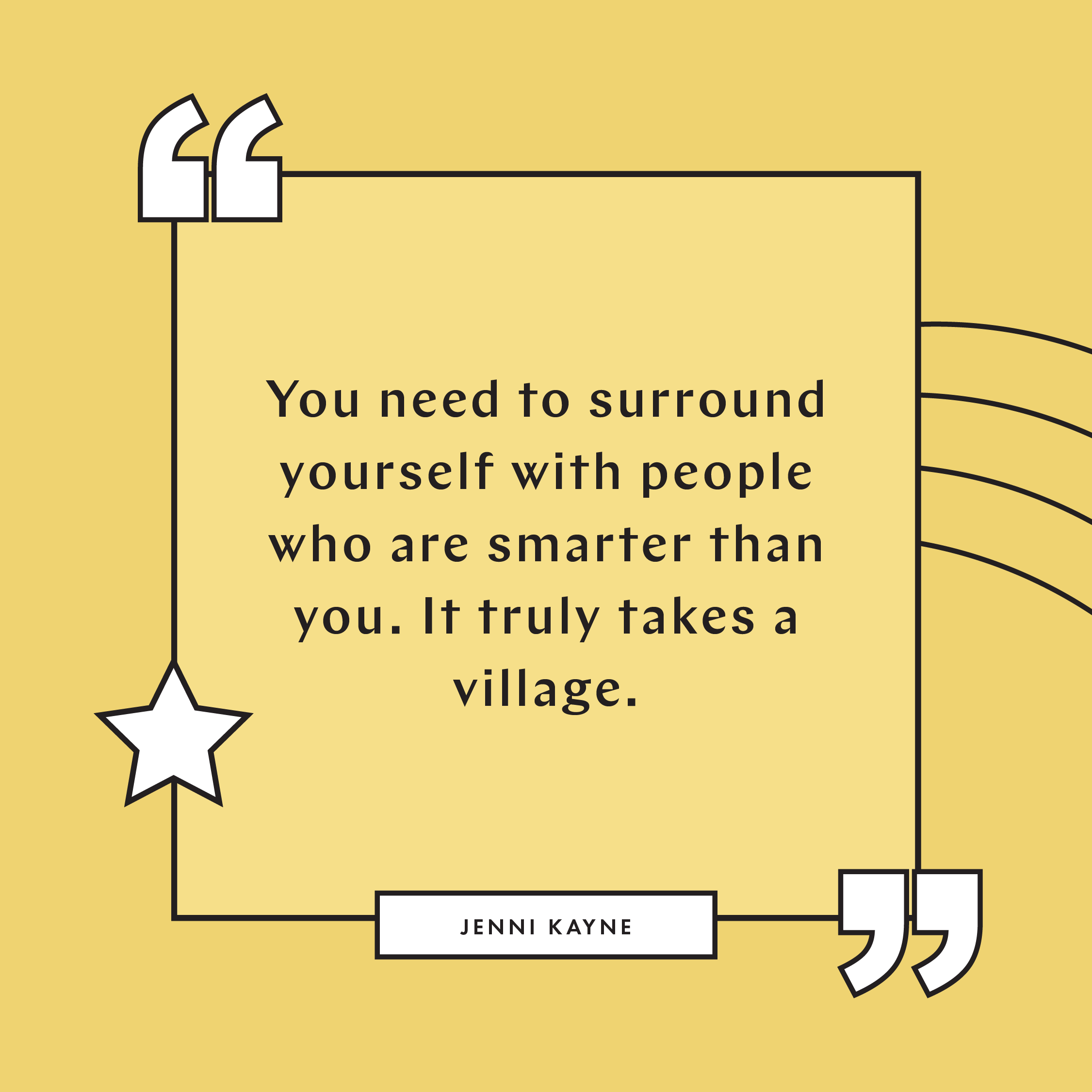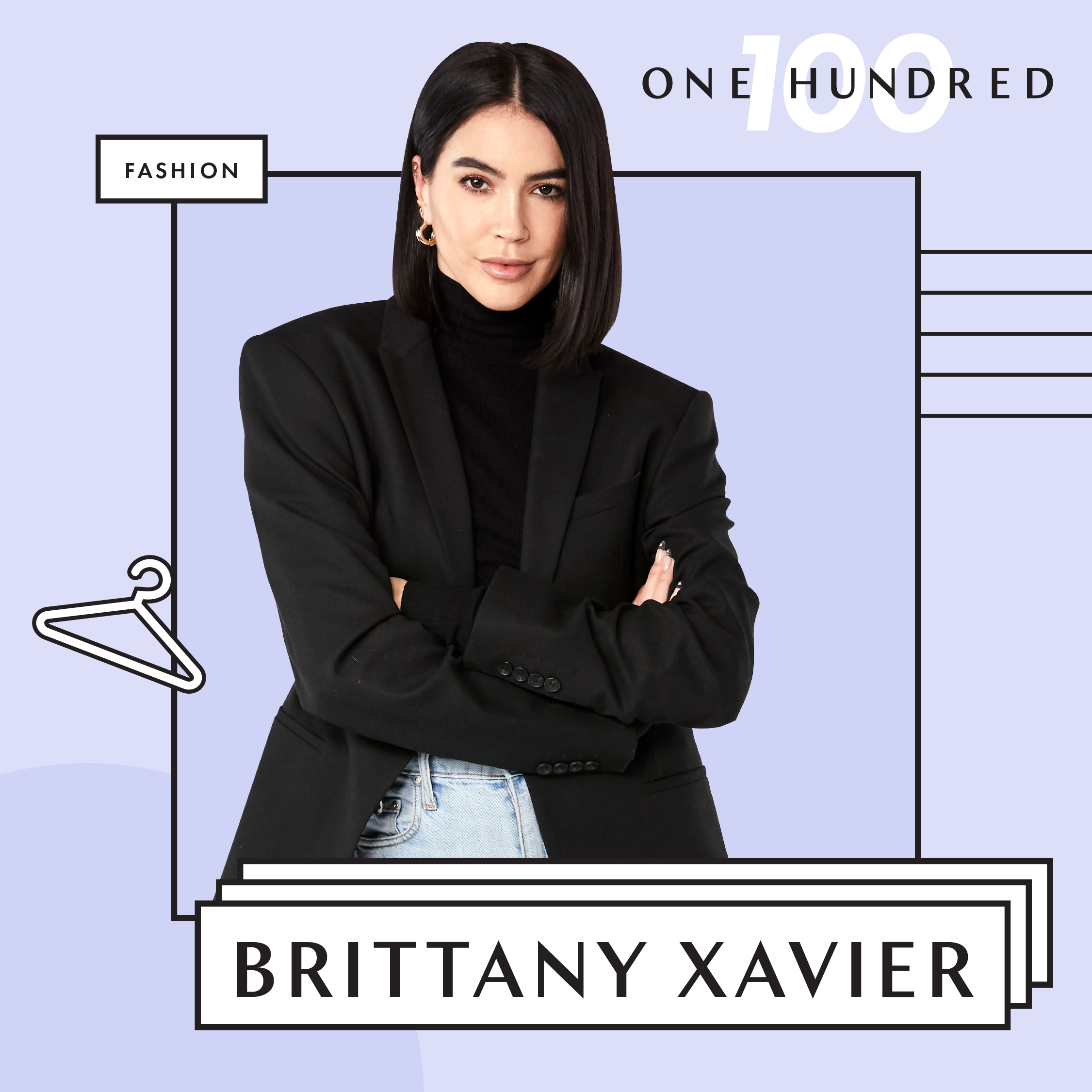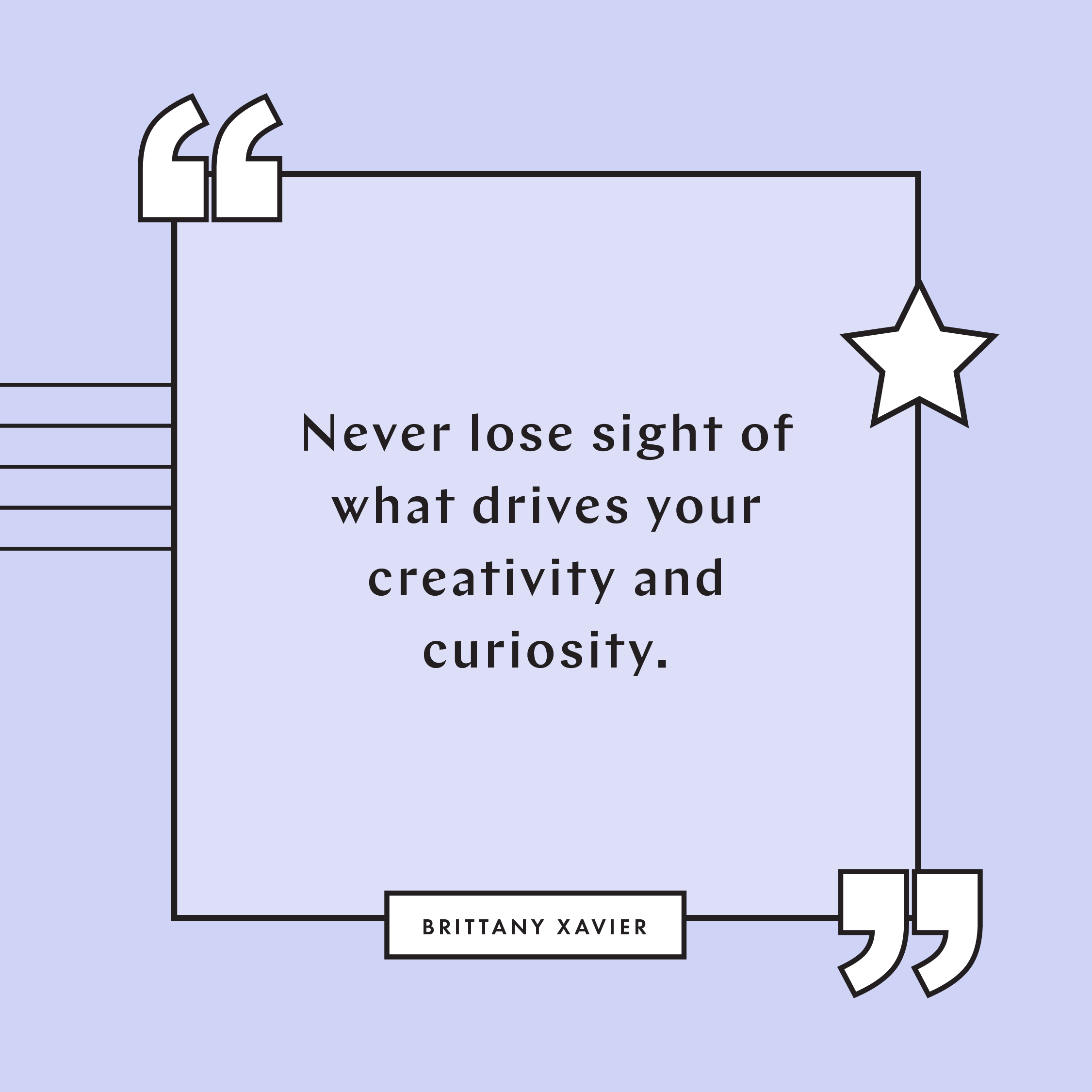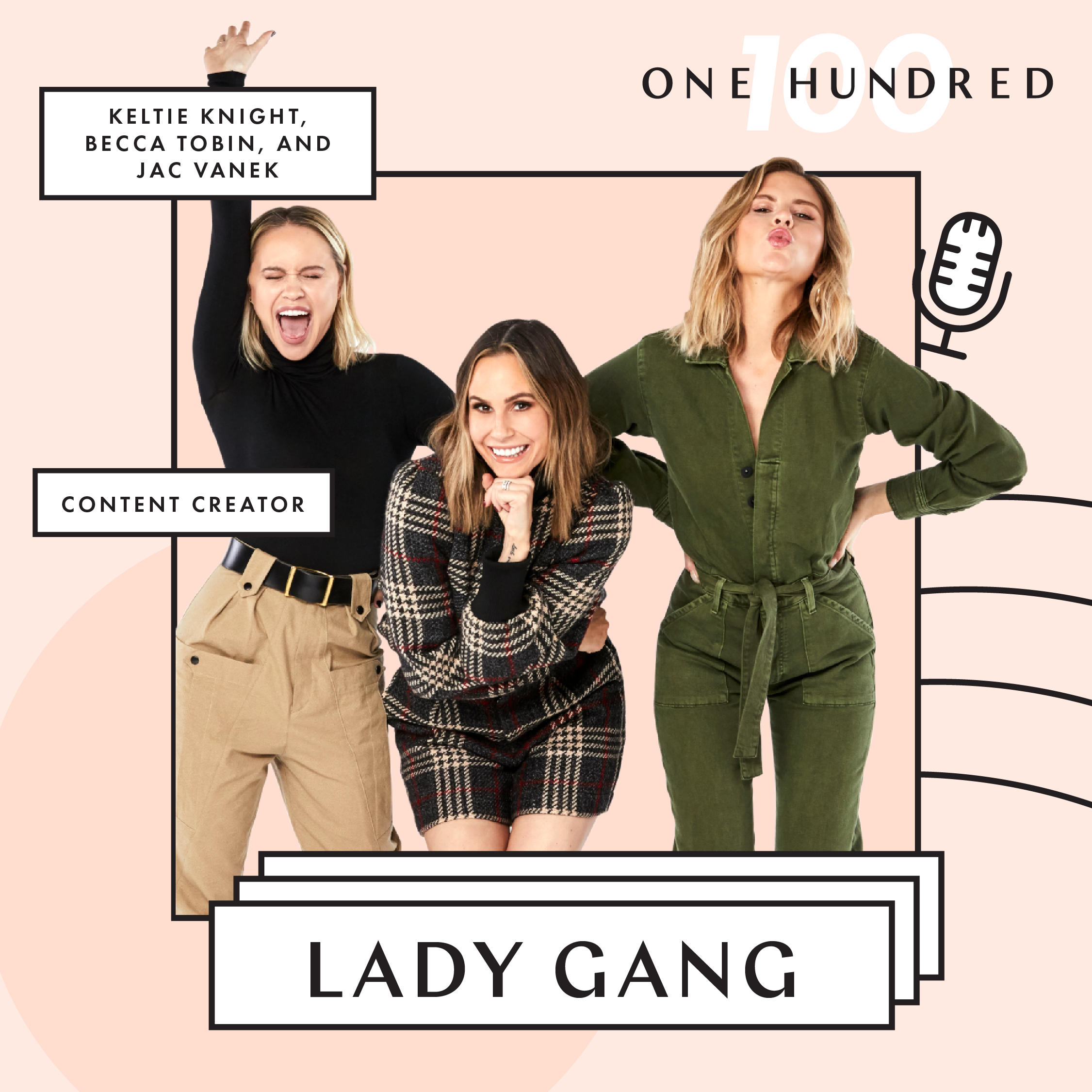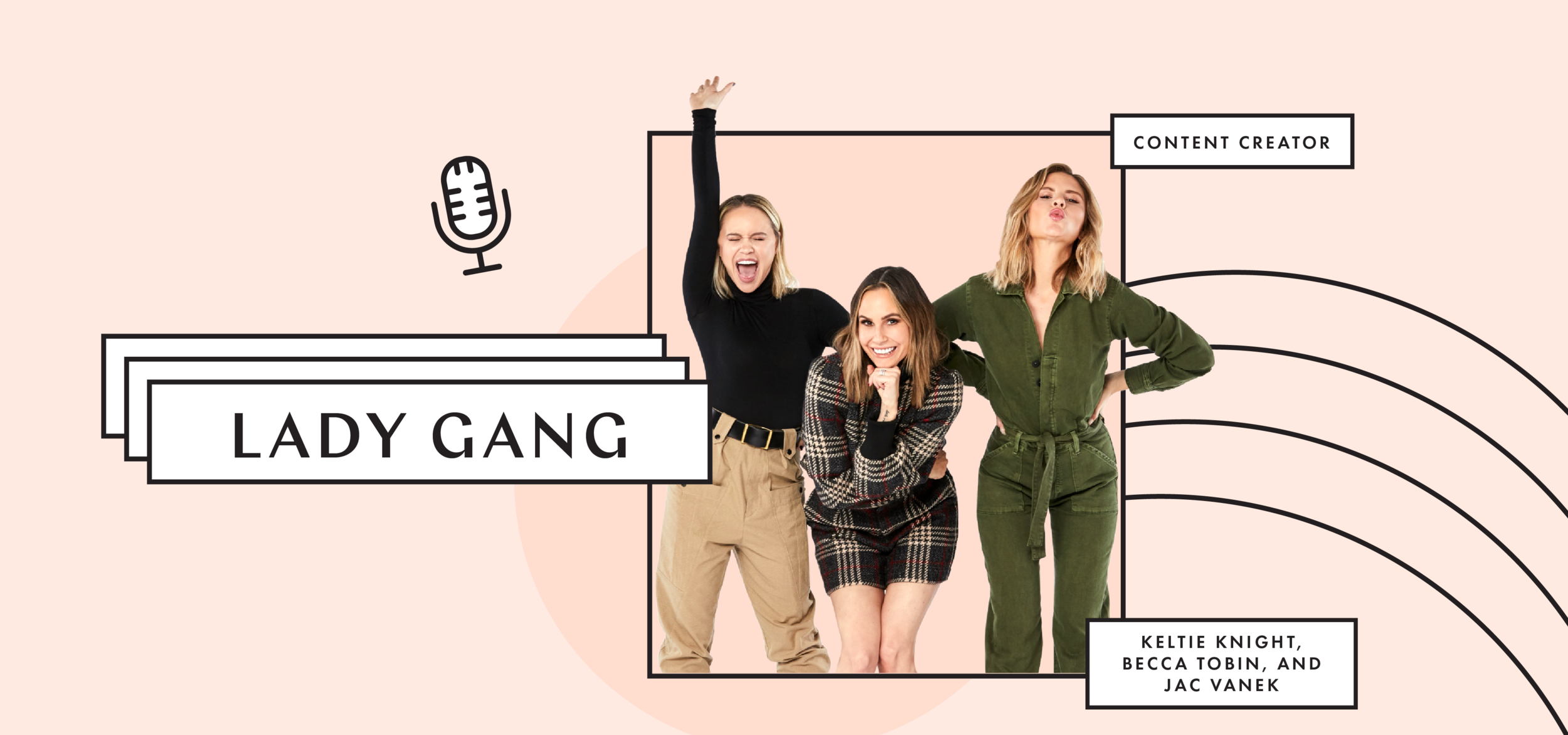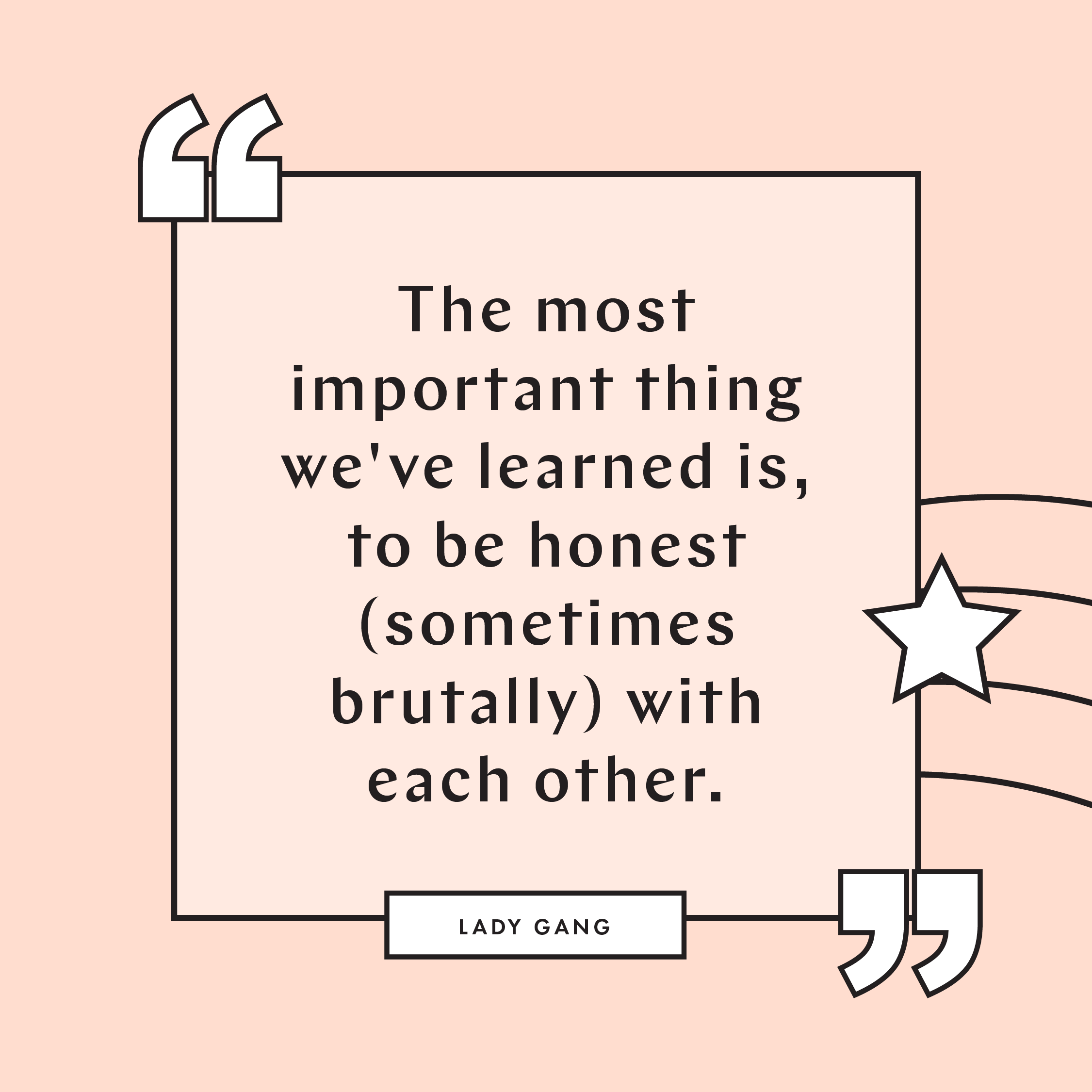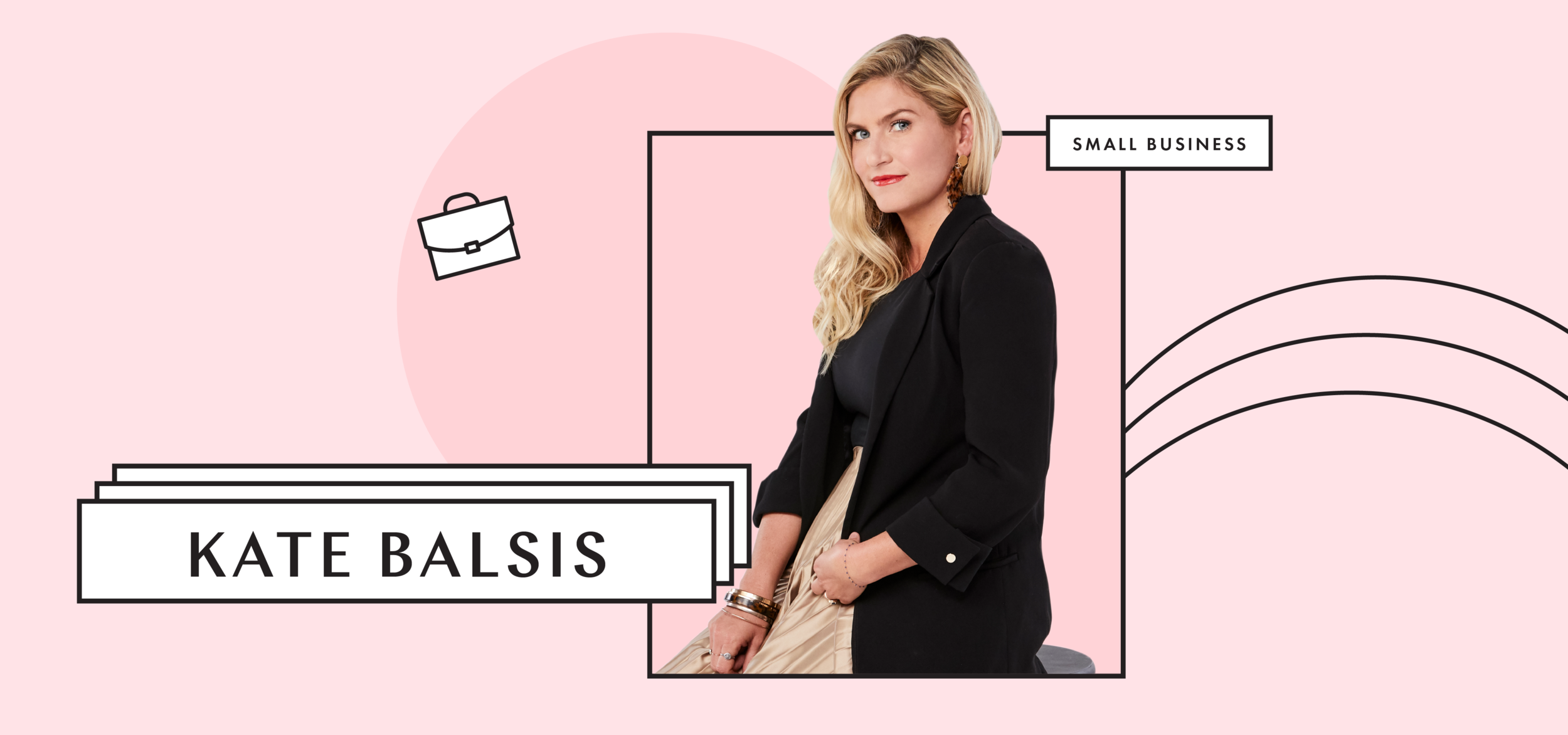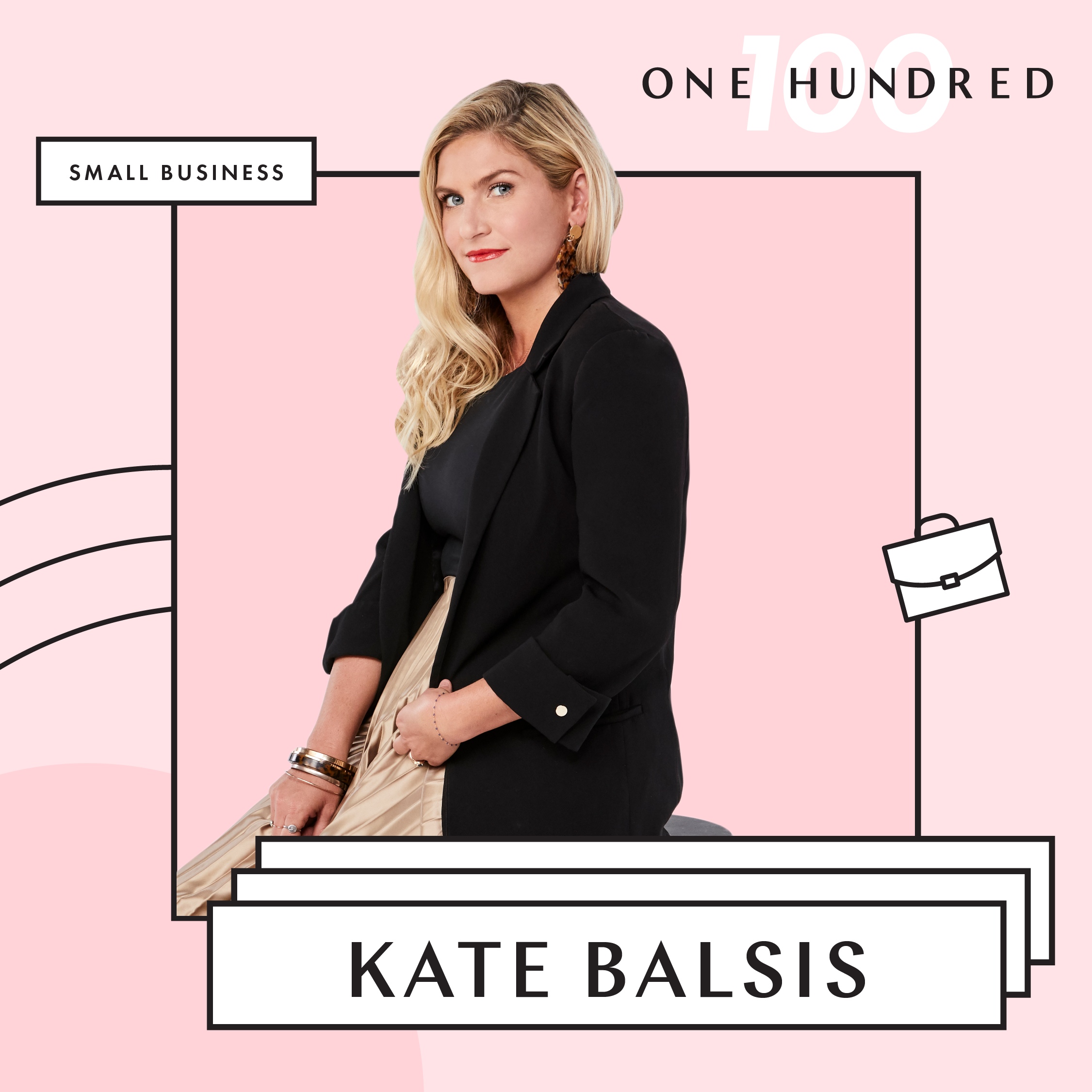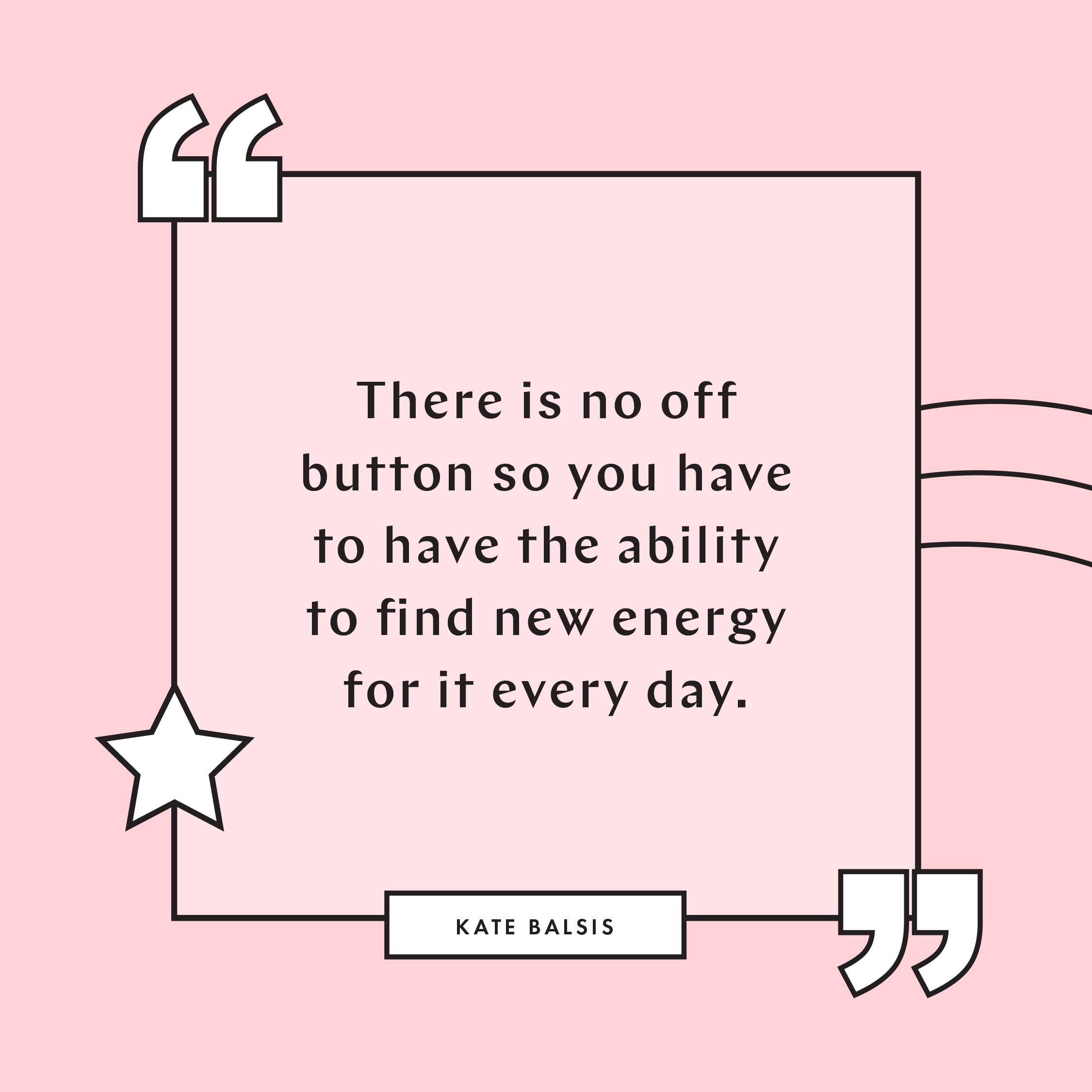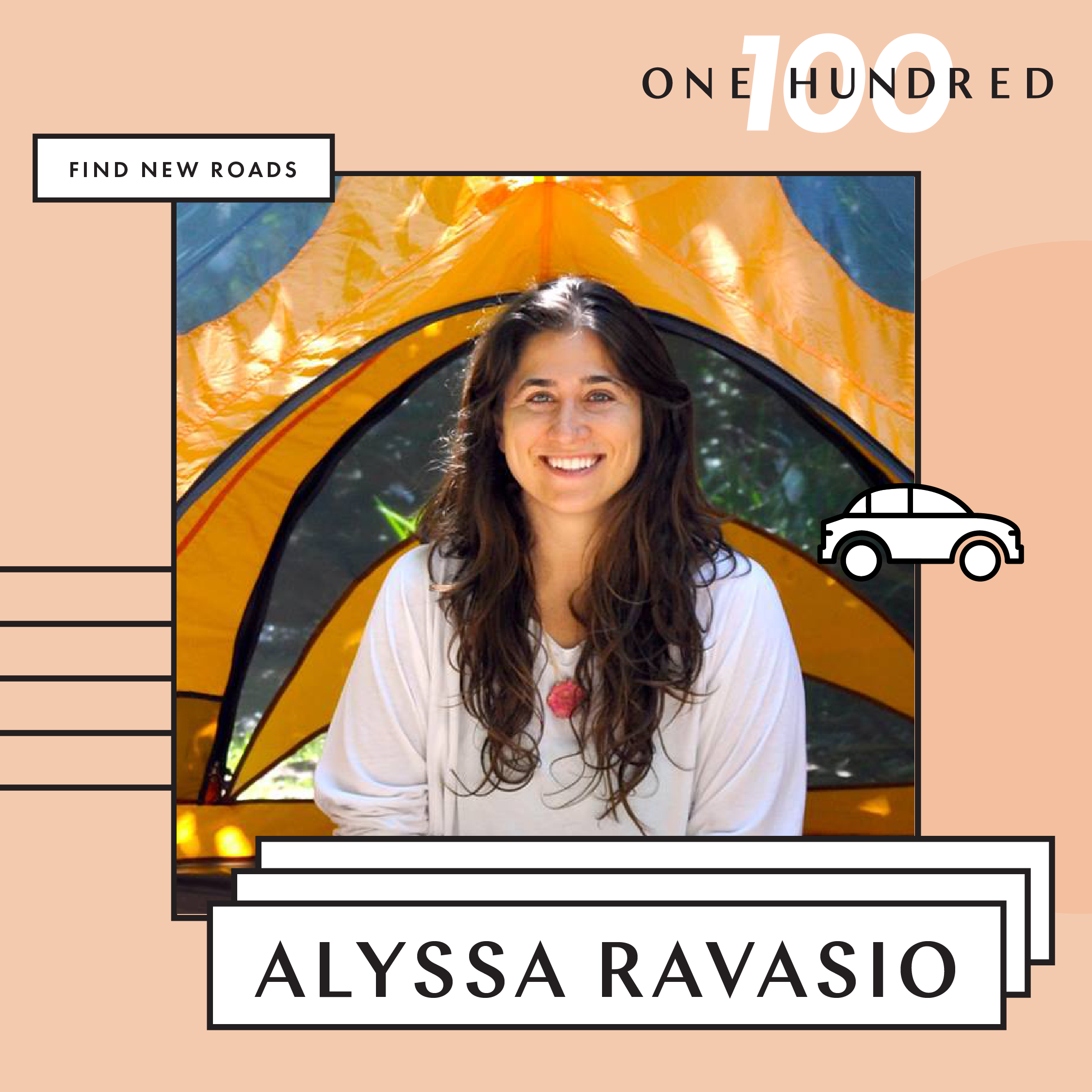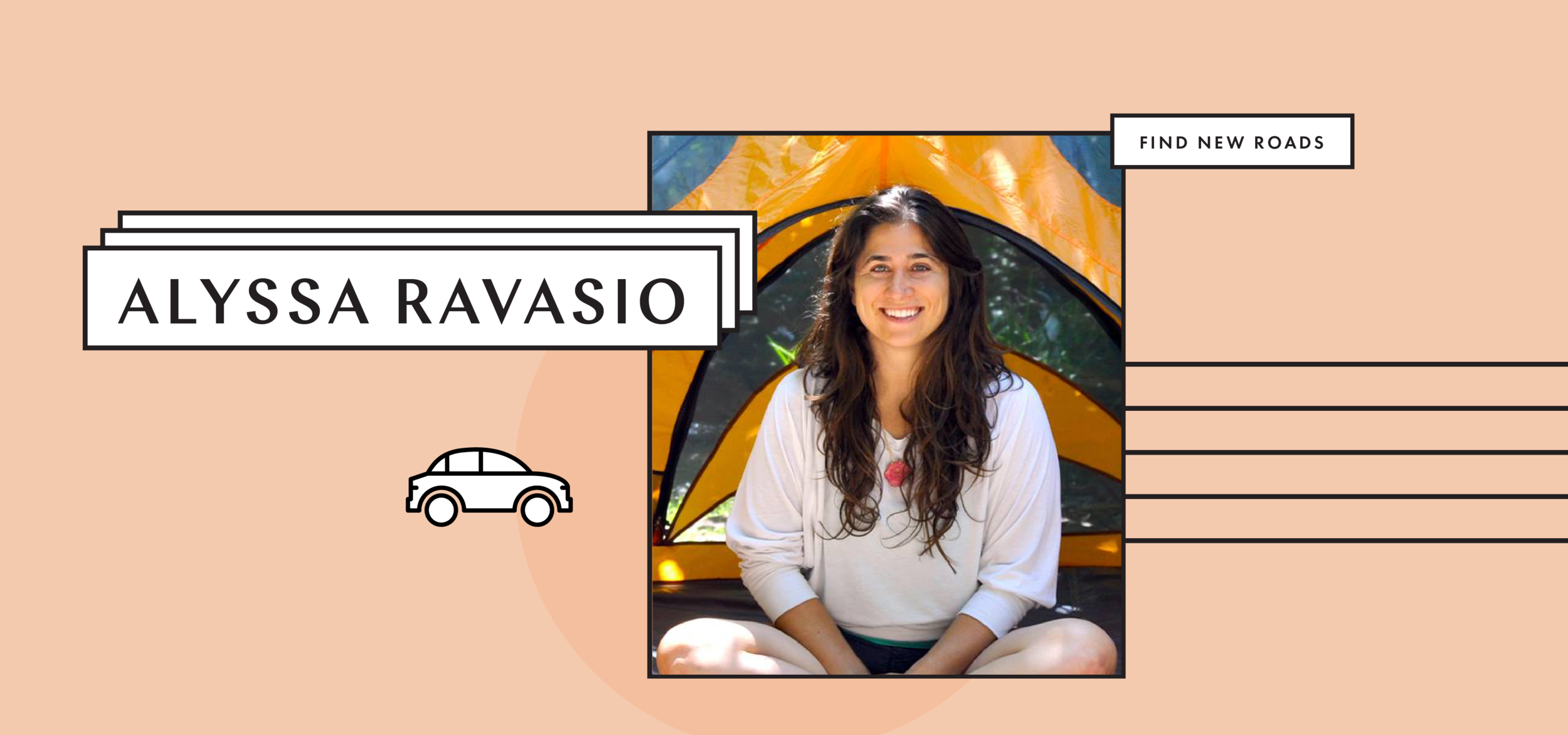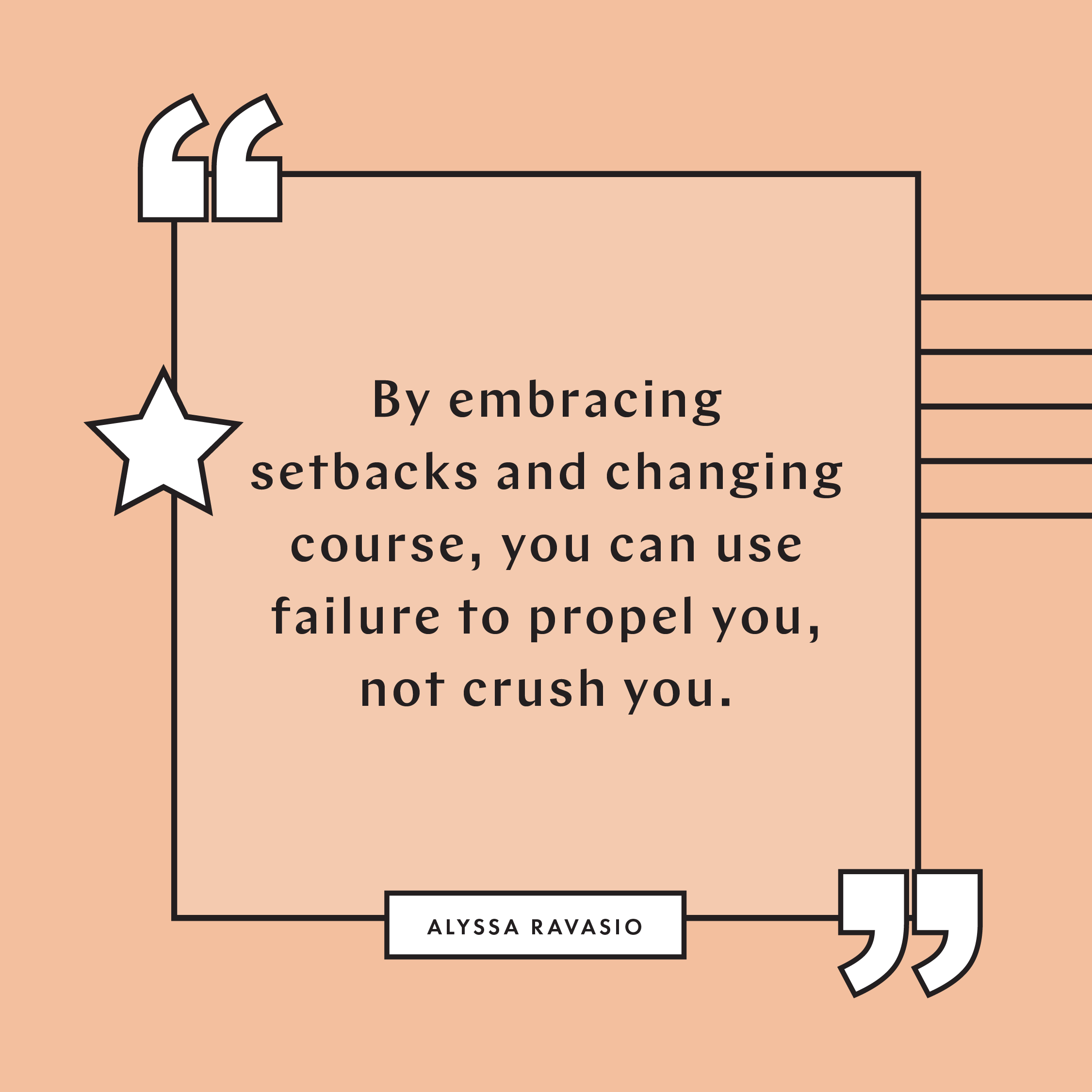Create & Cultivate 100: Find New Roads: Cindy Eckert
The stiletto-strapping CEO is confronting sexism in the healthcare industry head-on.
In a word, Cindy “The Stiletto-Strapping CEO” Eckert’s résumé is impressive. Over just the past 10 years of her 24-year-long career, the serial entrepreneur has built and sold two, billion-dollar healthcare businesses. Like we said, impressive.
After a successful stint in men’s healthcare at First Slate Pharmaceuticals, which launched a long-acting testosterone treatment for men, Eckert turned her attention to women’s sexual health and founded Sprout Pharmaceuticals, which developed a libido-boosting drug that's been dubbed "the female Viagra." But getting a drug on the market that was developed specifically for female sexual health has not been easy. In fact, it was an uphill battle with sexism every step of the way.
Eckert launched her Right to Desire campaign shortly after to empower women to own their sexuality. In her fireside chat with Rumer Willis at our San Francisco Conference, Eckert told the audience to “Get a piece of the pie. Own your sexual desire. You have the right to desire, to start your own company, to have your own voice.”
Read on to discover the story behind the self-made billionaire, her mission to close the pleasure gap, and how she is helping more women join the billion-dollar club with her "pinkubator" (a.k.a. The Pink Ceiling).
CREATE & CULTIVATE: You've founded and sold two companies in the pharmaceutical space for over $1.5 billion. Your success is incredible, but it but didn't happen overnight. Why is this work so important to you? How did you stay positive when success seemed out of reach?
CINDY ECKERT: There is no stronger incentive than working to right a wrong for someone who needs your help. There is no stronger motivator than knowing if you succeed at what you do it will result in a profound difference for so many. In my first year, I went on a tour to talk with women. I met with more than I can count. They grabbed me, pulled me in, and told me their stories. They cried on my shoulder. They cheered me on for taking on something so meaningful to them yet so dismissed by others. Not surprisingly, women having no choice for their sexual desire and well-being wasn’t due to science. Science and data showed us that there is a biological basis for desire in both men and women.
What was a surprise was the rigid cultural bias against a treatment option for women. Isn’t that her choice? If a woman was suffering from low desire—and all the life issues that come with it—the flippant societal response was to tell them to have a bath or drink a glass of wine. It was dismissed as purely psychological. That was an insult and it ignited me. We had science on our side. Challenges, therefore, didn’t seem as hard and obstacles were just temporary nuisances. I was determined to crash that ceiling. You know the end of the story; we broke through with a first-ever for women. After all, don't women deserve a happy ending? *Pun intended*
You have been an advocate and inspiration in the conversation of women's sexuality and sexual health. What inspired you to join this conversation? Why is it important for other women to join in as well?
I have Irish Catholic roots so sex was the obvious career path, right? I’m pretty sure I think that’s funnier than my family does. Truth is, I’ve built a specialty in this area. Before Sprout, I founded and sold a company that focused on men’s sexual health. Women’s sexual well-being fascinated me because I knew that something so fundamental to the human experience is also remarkably misunderstood and, in the case of women, inappropriately stigmatized.
When I started Sprout there were no choices for women. It deserved to be pursued. Women deserved power in one of the most fundamental parts of their life and their enjoyment and connection. The fact that an Irish Catholic girl can help spark a national conversation on women’s right to desire is proof that speaking up counts. If women don’t own this conversation, I promise you that no one is ever going to respect it on their behalf.
“Choose your investors wisely. Just because someone is willing to write you a check doesn’t mean you want them to own part of your company.”
When you hit a bump or hurdle in your career, how do you #FindNewRoads + switch gears to find success?
Imagine me, in pink, pitching the first-ever drug for women’s libido to a bunch of blue and gray suits. Literally, the room used to erupt into middle school giggles. I remember those days well. I also remember maxing out on my credit cards to start the business and sweating every time the phone rang. Funding was in short supply for women owners and entrepreneurs. The hurdles came at every step of my career. By accepting them, I allowed myself to move beyond them. I didn’t have any damn time to be consumed with frustration over them, but I had all the fuel in the world to find the workaround. There truly aren’t two more powerful words in our vocabularies than watch me.
Your latest mission is supporting and funding women entrepreneurs with your "pinkubator," The Pink Ceiling, to help more women join the billion-dollar club. How do you choose which businesses to fund? What are some of the businesses you are funding currently?
When I looked around after my second exit, guess what hadn’t changed. Women still didn’t get funded and they still lacked real access to mentors. Never mind the billion-dollar exit club was grossly behind on its female membership. That disparity can’t stand. So I put my money where my mouth is and created The Pink Ceiling/Pinkubator to champion new health tech breakthroughs by and for women. We say, quite simply, that our mission is to make other women really rich. It’s funny the response that sometimes receives. Here’s the thing, with money, women get to invest in what they want to see in this world. And they do. That’s currency for lasting change.
Today, I am honored to work with incredibly talented and passionate up-and-coming female founders. Some of them knocked on my door for advice. Some of them I sought out to learn more about their incredible ideas. What we fund are companies working on transformational products and products that only a woman could dream up. One company invented a technology to detect date rape drugs in drinks called SipChip. Another, Lia Diagnostics, has reinvented the pregnancy test, making it plastic-free, private, and flushable. Bethany, Lia’s founder, is an engineering dynamo packed in a barely 5-foot frame. The world doesn’t even see her coming. Soon they won’t be able to miss her. The list goes on, including getting my own company back with the first and only FDA approved drug for women’s low sexual desire. All of our products and platforms protect, empower, and provide women important choices. We view the products of The Pink Ceiling as creating ownership for female consumers while simultaneously creating an army of female business owners who will get to incredible outcomes and pay it forward themselves.
When we are through, women will have just as much funding as men and it will happen through a magical multiplier effect.
What's your best advice for women who want to start companies that will make a difference?
Stop reading this right now and get to work!
You started the "right to desire" movement to further the conversation on women's rights. Can you outline what you mean by the “right to desire?" What is your mission? What do you hope to achieve with this message?
Right to Desire is an educational initiative for consumers and healthcare providers regarding HSDD, or low sexual desire, women’s most common sexual issue. It provides access to evidence-based information and has created a community for women who are looking to learn, lend their voice, and support other women on this important topic. A tidal wave of change is coming in the conversation about women and sex. We’re moving beyond a discussion solely about women’s reproductive rights to the next frontier where women’s right to desire and pleasure is front and center. And it's about time.
What advice do you have for women who haven’t found their path/passion yet?
First, ask yourself if that’s really true. If someone asked you how you’d most like to use your time and talent, I bet you know. Give yourself permission to pursue that path. If you truly come up short on any answer at all, you need to find your way into different rooms for new exposures. There's nothing more powerful to ignite passion than surrounding yourself with people full of it. No matter which it is, take action toward figuring it out. Waiting for it to magically come to you will mean a lifetime on the sidelines.
“We’re moving beyond a discussion solely about women’s reproductive rights to the next frontier where women’s right to desire and pleasure is front and center. And it’s about time.”
You've been described as a "serial entrepreneur," so we have to ask: What is next?
With venture capital today, women receive only 2%. In the next 10 years, I will completely close the investment gap between men and women founders. My work today is focused on fueling the next wave of transformational female entrepreneurs through mentorship, cash, and a network of other women who share this vision. When they get to their outcomes, they'll fund the next group who will fund the next group and on and on.
What advice would you give someone looking for an investor, like yourself, to help them with their business?
Choose your investors wisely. Just because someone is willing to write you a check doesn't mean you want them to own part of your company. Investors that are misaligned with your vision can ruin the business. Never forget that the company you keep is completely your choice.
Who’s work do you most admire? Why?
I admire every stiletto strapping female entrepreneur out there who has made the conscious choice to bet on her own capability! Now, two epic examples you must follow are Ashley Graham and Ashley Longshore. They are each boldly breaking barriers while remaining entirely true to themselves. I love watching them win on their own damn terms.
What is the #1 book you always recommend? Why?
Purple Cow by Seth Godin. Read it. It encourages the powerful idea that you should embrace what is unique to stand out in the sea of sameness. If only Seth would reprint it this year and title it Pink Cow.
VIEW THE FULL CREATE & CULTIVATE 100 FIND NEW ROADS LIST HERE.
Create & Cultivate 100: Small Business: Maura Cottle, Melissa Gore, & Melissa Bennett
Here's how the trio built their disruptive digital agency from the ground up.
Meet the women responsible for ensuring that the male-dominated, smoke-filled rooms of Mad Men remain a thing of the past.
After spending over a decade working for traditional agencies, Maura Cottle, Melissa Gore, and Melissa Bennett stuck out on their own to start Heat Waves, a women-led agency focused on developing digital experiences for beloved brands by the likes of Sephora, Sweetgreen, Sonos, and Reformation, to name a few.
Here, the creative collective of female founders shares how they built their disruptive digital agency from the ground up, including what it’s like working with major brands and why having a close personal relationship with your cash flow, P&L, and business model are essential for running a successful start-up.
CREATE & CULTIVATE: You are known as digital trailblazers in the industry, responsible for building experiences that are industry-firsts and true disruptors. What were your intentions when launching Heat Waves? What was your vision for the brand? How were you differentiating the brand from what was already available?
MAURA COTTLE, MELISSA GORE, & MELISSA BENNETT: We started Heat Waves because we wanted to do work that we felt passionate about with purpose-driven teams and brands. Our vision is to inspire the next generation of women and underrepresented people growing up in the historically patriarchal design and technology world. Inclusivity is at the core of every single thing we do at Heat Waves, from the clients we work with to the teams we build to the attitude and communication style we bring to the office. We create space for all people.
For those who are unfamiliar with Heat Waves, can you outline what you do for brands? What are the specific services you offer?
We are a design and technology studio that specializes in product innovation. Our services include branding, strategy, and product design and development.
You've each had experience working with major brands like Nike, Sonos, Sweetgreen, and FX, just to name a few. What advice can you share for new founders who want to work with big brands like that? How do they pitch successfully and get the business?
To get into the room with big brands, you need a reason to be there. Think about what you can bring to the table that's unique, valuable, or exciting. Be the meeting that people look forward to. Evaluate your networks and relationships for opportunities. Get specific about what you want and why.
Once you’re in the room, our philosophy is to make a pitch as interactive as possible. It’s not Mad Men; it’s actually just having a conversation with people who are also passionate about what they do and want it to be great. We identify the most interesting challenges, opportunities, insights or ideas for a specific brand and use that as an anchor to provoke conversation in the room. We find this approach is less about selling, and more about making sure everyone leaves the room with something tangible and understanding of what it’d be like to work together.
“To get into the room with big brands, you need a reason to be there. Think about what you can bring to the table that’s unique, valuable, or exciting.”
Being a founder is never a smooth path. What are some of the biggest lessons you've learned through the process of starting Heat Waves? What have been the biggest challenges? Why?
We have learned to be vulnerable and trust each other through this process. We are always learning how to be better partners.
We are a passionate team that loves to say “yes” to amazing clients who have ambitious plans. We put the work first which can enable scope creep and over-delivering, which is not always ideal for a small growing business.
Communication is half the work for any deliverable. Have you ever been to an escape room with people who don't communicate? You won’t make it out of there. It leads to frustration and inefficiencies. Doing everything perfectly won’t matter if you don’t communicate. We have learned that this isn’t easy or the same for everyone. It takes empathy, patience, and trust in your team.
When you hit a bump or hurdle in your career, how do you #FindNewRoads + switch gears to find success?
Try to take a hard look at any perceived failure to see what you can learn from it. Identify things you can improve or change within your control, and let go of everything else. Take a step back and try to really understand what success looks like to you. Then find a mentor.
You've achieved so much success since your launch. What do you wish you could go back and tell yourself when you were first starting out? Why?
Flashback to two years ago. We’re sweating in a garage and pitching Sonos with some staged artwork behind us. We would tell those ladies to hoard every dollar and every cent to see what you can do in a year. Be more aggressive and focused. You’re too small to be an everything shop. It's easier to make decisions when you have money in the bank.
You are in the business of developing unique brands. What advice can you share for new founders/small business owners who want to create a unique brand that stands out from the competition? How do you create a brand that lasts?
If your brand was a person, who would they be? It’s not just what they look like, or what they can do for you, but how they make you feel. If you are coming from a source of truth and self-awareness, your brand will stand out.
There are so many channels for connecting with your customers and community—plus, the newsletter has made a comeback. What are your thoughts on this medium? And what other channels or platforms do you recommend? How can a brand be visible in a saturated space?
People love great content no matter what form it comes in. If it’s conveniently placed in my inbox, then that's fantastic. Our clients know they have to be deliberate and compelling in their ongoing conversation with customers. For example, Reformation emails feel like your witty friend sharing things they know you'll like.
Instagram is being hacked at the moment to support longer-form content. It's no longer just a single hashtag in your caption but a full thought, a blog post, an article. It’s also about building one-on-one relationships with consumers is much more important in the DM world we live in.
In the past, the mentality was "go where your audience already is." We are testing the hypothesis that the future of community and content will be more specific destinations for niche topics and causes regardless of platform. If your customers are engaged in the same purpose or cause you are, they will find you.
When you're a small business you have to fall in love with the numbers. What have been some of the hardest money lessons you've learned along the way? What is your #1 money tip for small business owners? Why?
Have a close personal relationship with your cash flow, P&L, and business model. Never stick your head in the sand when things get hard. The more in touch you are, the more precise you can be with forecasting and hitting or changing your targets.
Social media always shows us the highlight reel but reality can be very different. Can you recall a mistake you made since launch and what did you learn from it? How did you turn it into an opportunity?
Speaking of highlight reels, as a new brand, we felt pressure to speak up and be cool on Instagram. Our approach failed hard for one obvious reason: we jumped into execution without a clear strategy. We got lots of great feedback but from the wrong people and for the wrong reasons. We had to confront the problem head-on. We were able to come together to create a more genuine experience that truly reflects who we are.
What advice would you give to young entrepreneurs who have an idea but don’t know where to start to execute it?
Make sure you are making something people really want. Talk to as many people as you can to identify your demographic and be sure it's viable.
Photographer: Jenna Peffley
Hair: Styled by OGXpert & Celebrity Hairstylist Jillian Halouska
VIEW THE FULL CREATE & CULTIVATE 100 SMALL BUSINESS LIST HERE.
Create & Cultivate 100: Entertainment: Jamie-Lynn Sigler
How the actress balances her side hustle with her career, her family life, and her health.
Before Jamie-Lynn Sigler gave birth to her first child, she thought the early days of motherhood were going to be euphoric and effortless. But in reality, they were a struggle. After battling feelings of intense sadness or feeling incompetent as a mother, she was diagnosed with postpartum depression, the most common childbirth complication, affecting 1 in 9 women, according to the Centers for Disease Control and Protection.
During her second pregnancy, she was much more candid about her experience and opened up to her friend Jenna Parris who also just so happened to be pregnant with her second child. Recognizing a need for a platform where mothers can have honest, vulnerable, relatable conversations, Sigler and Parris started a podcast called Mama Said. Thirty-five episodes and three million downloads later, they’re now at the helm of a full-fledged business.
Below, Sigler gets real with Create & Cultivate about balancing her burgeoning business with her career, her family life, and her health.
CREATE & CULTIVATE: Earlier this year you started a podcast called Mama Said, which discusses everything it means to be a mom. Why did you decide to start this podcast? What conversations are you hoping to have? Tell us everything!
JAIME-LYNN SIGLER: After I had my first son, I struggled greatly and silently. I thought early motherhood was supposed to be blissful and effortless, and while there were many moments of absolute joy looking at my beautiful baby boy, I also had feelings of complete inadequacy and loneliness. Breastfeeding was hard, not sleeping was hard, and I didn't realize at the time, but I was suffering from postpartum depression.
Since I wasn't openly talking about these things (because not many women I knew were), I thought I was a bad mom. I thought I wasn't cut out for it, and I would actually feel bad for my precious Beau, that he got stuck with a mom like me. As he grew, and I did too, things changed and shifted and improved, but I never forgot that dark time. When I had my second boy, Jack, I was better prepared. All the struggles were the same, but this time I opened up. My friend Jenna, who had her second baby at the same time as me, became my person. We talked so openly about what we were going through, and while the conversations were heavy at times, they were always hilarious.
We realized that moms out there (especially new ones) could really use this type of candid talk to see that they weren't alone. So we started shopping our idea around! Two months later we signed a contract, launched our first episode in February 2019, and here we are. 35 episodes and over 3 million downloads later, and we see an actual brand and business that we have created.
Podcasting has taken the world by storm and you are riding that wave. What lessons have you learned by tackling this media and creating your own show? What advice can you share for those thinking about starting their own podcast? How hard/easy is it?
Podcasting is basically letting people in on an intimate conversation. The best advice we received, from our mentors over at the LadyGang, was structure. Having segments has allowed us to really find our groove, all the while being open to talk freely with our guests in between. It has been incredibly helpful. We also always invite our guests to choose a topic of their own, if they want, so it allows them to be passionate about the conversation, and the show turns out better. Jenna and I work really hard on each show, but once we are actually recording, its the easiest job in the world.
“Having people see that I can live a very full life, despite my limitations at the moment, keeps me going and makes me proud.”
When you hit a bump or hurdle in your career, how do you #FindNewRoads + switch gears to find success?
It’s a combination of surrendering and regaining control. I have found in my acting career, during the slower times (which are the frustrating and often heartbreaking ones), I try and find a way to surrender to the universe but also control what I can. What that means for me is trusting that work will come, but in between, I get back in acting class, reading books on acting that I love, watching a million films... just really getting re-inspired to remind myself why I love it so much.
You've opened up recently about life with MS and revealed that you lived silently with the disease for 15 years. You've been such a positive role model and spokesperson for MS. What advice can you give to others who are balancing their health with their career?
I wish I had a handbook for this. The truth is, I have really good days, and bad days too. I have to take really good care of myself in order to be able to live out my dreams as a mom, wife, actress, etc. The key is to remind myself of this when I am having a low moment. Life happens. To all of us, chronic illness or not. Self-care is not an easy concept for me. I am so much more comfortable burning the candles at both ends so I can be a present mom and friend, but that’s just not possible for me.
I compare my body to a car. I have a certain amount of "gas" in my tank each day, and I have to carefully allot where I put my energy. On days when I have nothing going on, I do everything with my kids. Everything. But on the days when I have to show up for other roles in my life, I just know that I have to rest more and hand over certain responsibilities to others. It’s not easy for me to see my nanny take my kids to the park or fun places and having to stay home to rest, but I am a MUCH better mom when they come home. And I know that, in the end, it makes all the things I want out of life much more possible. I am always reminding myself of the "put-your-oxygen-mask-on-first idea." A healthy mom and person mean a more present mom and a stronger actress.
You are very candid and honest in the way you share your life on social media from living with MS to raising kids and just simple, real-life moments. Why did you decide to take this approach and connect with your audience in this way? What impact has it had?
I always feel like I am so bad at the whole social media thing. I try to be as open as I can, without focusing too much on one area of my life versus another. I share my struggles so others feel less alone and so I can get things out of my mind and out into the universe, but I also chose to share the joy and simple things as well. I am not going to sit and wallow about my MS all day or post pictures of my kids’ every move either. My hope, in the way I share my life on social media, is that I appear relatable, positive and honest. Having a community of others that have similar struggles (and TRIUMPHS!), has helped me so much in this journey I am on. I truly believe social media can be a wonderful source of connection and community when used properly.
We talk about money a lot at C&C so we'd love to know, what was the biggest money lesson you learned since launching your business? What money advice can you share for new entrepreneurs reading this?
I have saved, saved, and saved for most of my life. I always take at least one nice vacation a year, and I budget when necessary because it makes me feel more in control of things. It has allowed me to now start investing in some funds and companies I believe in. Whether it’s a minimal or substantial investment, I feel so proud of the way I have handled things, especially when having children. I also defer to accountants and people I admire for advice, but I always remind myself of the quote my dad has always told me, "Limit your should have, would have, could haves, and you will never wonder ‘what if?’”
Who in your field most inspires/influences you? How this person shaped your career? Why?
My manager. He respects my choices and goals, while also being frank about the money part of this business and how sometimes you do things for the paycheck to buy you that time before the next big role comes.
What about your job makes you feel the most fulfilled? Why?
Hearing from people that they feel connected and understood by me. From sharing things about motherhood to living with MS to acting, having people see that I can live a very full life, despite my limitations at the moment, keeps me going and makes me proud.
“I share my struggles so others feel less alone and so I can get things out of my mind and out into the universe. But I also choose to share the joy and simple things as well.”
What's a mistake you made in your career or business and what did you learn from it? How did you turn it into an opportunity?
Not doing enough research before making a big decision. It’s been a while since I have done anything like this, but I have learned the hard way that there is power in saying “no” and listening to my gut. It has never led me wrong.
With success comes opportunity, but that also means you have your hands full. What keeps you inspired and motivated to keep going even on your most challenging days?
My kids. Plain and simple. I want them to see a mom who works hard in all aspects of her life but will always be there for the fun too.
Success is such a broad term and it means something different to everyone. How do you define success?
Success means, at the end of the day, I am proud of my choices and I know I tried my best. Even if things didn't go my way. Trying my best makes me feel fulfilled and successful.
What is the #1 book you always recommend? Why?
The Four Agreements by Don Miguel Ruiz. In a way, it takes all the pressure off life. It allows you to really see the world through a different lens. I re-read it every year and even have a tiny copy of it that I carry in my bag.
VIEW THE FULL CREATE & CULTIVATE 100 ENTERTAINMENT LIST HERE.
Create & Cultivate 100: Food: Melissa Ben-Ishay
The founder of Baked by Melissa shares her recipe for success.
Melissa Ben-Ishay has, quite literally, the sweetest job. As the founder of Baked by Melissa, she whips up bite-size cupcakes in flavors spanning chocolate chip cookie butter, pink-frosted donut, and peanut butter and jelly. What started in her kitchen in 2008 has grown into a booming business.
But none of this would have happened if Ben-Ishay wasn’t fired from her job in 2008. After calling her brother in tears, he quickly told her to do what she does best: bake. So, she did. She baked 250 cupcakes that day and, in the process, realized her true calling. Cut to today and Baked by Melissa operates 13 retail stores and ships the delicious under-50-calorie cupcakes nationwide. And after years of working with her brother, Melissa recently stepped into his shoes taking on the role of CEO.
Here, Ben-Ishay shares her recipe for success, including how she moved past the fear to take the leap and start her own business, what inspires and motivates her on her most challenging days, and the sage advice she’d offer to other entrepreneurs at the beginning of their careers.
CREATE & CULTIVATE: Your story is such a great example of turning a negative into a positive. After you were fired from your corporate job, you took a risk and made it a success, no matter what. How did you work through the initial uncertainty? How did you get past the fear and take the leap?
MELISSA BEN-ISHAY: I surrounded myself with people who love me and supported me when I didn't necessarily feel the confidence in myself. One of those people is my big brother and co-founder of Baked by Melissa we would not be here without him.
When you hit a bump or hurdle in your career, how do you #FindNewRoads + switch gears to find success?
I see every challenge as an opportunity to learn and grow. I know it's not always going to be rainbows and butterflies, and at this point, I almost seek out those opportunities to go out of my comfort zone and think of things from a different perspective. It's those moments that often result in the greatest change.
“You’re going to have hard days and amazing days and that just comes with the territory.”
You've had incredible success with Baked By Melissa—what traits has it taken to get there? What advice would you give other entrepreneurs at the beginning of her career?
You have to be willing to work your ass off, make your career your topmost priority (you can only have one), and really do whatever it takes to get the job done. You're going to have hard days and amazing days and that just comes with the territory. Know what you are good at and surround yourself with people who have skills that you don't. I could go on forever but I'll stop there.
What started in your kitchen is now 14 locations making baked goods shipped nationwide—what has been your recipe for success? Why do you think your cupcakes have resonated so much with people? What's the secret sauce?
At Baked by Melissa, everything is made entirely by hand with only the most delicious ingredients. I still create every flavor we sell and we have the most incredible team.
With success comes opportunity, but that also means you have your hands full. What keeps you inspired and motivated to keep going even on your most challenging days?
At this point, I expect the challenging days, and quite frankly, those are the most meaningful ones. I think it's the way you respond to the things that challenge you that defines who you are and where you go from there.
You've served so many happy customers but what is your favorite memory of a customer's reaction to your desserts? How did it make you feel? How does that inspire you?
Oh my gosh so many. When we were first starting out with one location I was still baking every cupcake and also relieving the person working our store so they could go on break. I never wanted to stop baking to go up there but without fail every single time, the energy of our customers made me so happy to be there and literally made my day better. Their energy is what drives me and we wouldn't be here without them.
Since you started, the cupcake craze has taken off. How are able to stay unique in such a saturated industry? What makes you stand out?
I see the cupcake as my vessel for flavor and what I am really giving you is the perfect bite of each of my favorite desserts. I put so much thought into every flavor and product we come out with and you can actually taste the love in each bite.
“I think it’s the way you respond to the things that challenge you that defines who you are and where you go from there.”
What's a mistake you made and what did you learn from it? How did you turn it into an opportunity?
I would say the biggest mistake I made was not going above and beyond in my advertising job which is what led to me being fired, but, hey, thank god that happened!!
What is the #1 book you always recommend?
I love The Alchemist by Paulo Coelho.
VIEW THE FULL CREATE & CULTIVATE 100 FOOD LIST HERE.
Create & Cultivate 100: Small Business: Patty Delgado
The founder of Hija de tu Madre on why she loves sharing her failures as well as her successes.
Patty Delgado is on a mission to dispel “spicy Latina” stereotypes and “Cinco de Drinko” T-shirts. So it should come as no surprise that the designer decided to launch an inclusive fashion brand that celebrates Latinx identity in November 2016—right after a certain election.
Hija de tu Madre started with a denim jacket adorned with a sequined appliqué of la Virgen de Guadalupe and since has evolved into an expansive line inspired by Latinx culture, spanning T-shirts emblazoned with logos like “Ya Guey” and “Fuck ICE” to bracelets engraved with the phrases “Yo Quiero Dinero” and “Make Jefa Moves.”
Here, Delgado fills us in on how she created an empowering brand, what it took to bootstrap her business in the beginning, and why she shares her failures (as well as her successes) with her customers and followers.
CREATE & CULTIVATE: You created Hija de tu Madre to be a safe space that is empowering and represents Latinx culture. Can you talk us through the concept and why you launched it? What makes it different/unique?
PATTY DELGADO: I launched Hija de tu Madre in November 2016, right when Trump was elected. It was extremely important for me to create a digital safe space where Latinx could feel safe and empowered to wear their culture. It was crucial that Hija de tu Madre helped in rewriting the anti-immigrant, racist, and toxic narrative being told by America’s president.
In addition, I wanted to create a brand that I would have liked to see growing up. A brand that spoke to my identity and community. Hija de tu Madre is for the women who juggle multiple cultures. Our customer is very proud of her upbringing, culture, and motherland, but has a complicated relationship with all of them. She’s trying to navigate what it means to be Latina. When our customers shop with us, we want them to feel seen and inspired to take their culture to the workplace, to school, and to their next life venture. We create apparel, accessories, and stationery that inspire women to take their culture everywhere.
In an interview, you touched on how the brand is conveying the complexities of being Latinx, which isn’t a “one-size-fits-all” descriptor, as it is often portrayed. Can you elaborate on that messaging and how you're disrupting body, race, and gender norms through the brand? What has been the community's response?
At Hija de tu Madre, we do our best to be inclusive of different bodies, races, genders, and identities. We create products that make space for the Latinx spectrum. For example, we carry a Latina and a Latinx necklace. Our bandera jackets speak to folks from different Latin American countries—Puerto Rico, the Dominican Republic, Peru, El Salvador, Mexico, Colombia, etc.
And lastly, we like working with diverse models and influencers that break the mold of what Latinas are “supposed to look like.” It’s important to remind the world that we're queer, plus-size, brown, indigenous, European, and so on. Latinx is not a monolith.
The response has been great, especially from customers who finally feel seen and represented in a really authentic way. We’re doing away with “Cinco de Drinko” T-shirts and “spicy Latina” stereotypes.
What has been the most surprising part of starting a small business that you didn't know before launch? Why?
The best part of my job is collaborating with other women and female founders and business owners. I love being able to grow with my community and peers. I also didn’t realize that the majority of our customers are business owners or aspiring entrepreneurs. Knowing that, has helped us better understand our customers’ needs, and develop products for their career goals (hence the birth of our desk and stationery category).
“I wanted to create a brand that I would have liked to see growing up—a brand that spoke to my identity and community.”
When you hit a bump or hurdle in your career, how do you #FindNewRoads + switch gears to find success?
I’m a Virgo, so I’ve always been very solutions-oriented. When you’re bootstrapping, you have no other choice than to take the L and find a creative alternative. I’ve become very accustomed to failing and losing—it’s part of being an entrepreneur. So, there’s always a plan B and C.
You've learned so much during the process, but what do you wish you could go back and tell yourself when you were first starting out? Why?
Say “no.” I wish I wouldn’t have overextended myself as much, or have said “yes” to every single opportunity. The toxic pressure to please is real. I’ve had to learn to develop healthy boundaries for myself, time, and sanity in order to keep growing.
What are the immediate things every small business owner has to take care of to set up a business? Why? What are those crucial first steps?
Do your research. Period. It’s daunting but pretty easy to get a seller’s permit, DBA, business license, business incorporation, etc.
What is the biggest challenge/struggle of running a small business? Why? How do you overcome them?
Not having enough hands is the biggest challenge of running a small business. I’m very much in the trenches every day. I may be CEO, but I wear a thousand hats, from designer to accountant to publicist to customer service rep. I’m very much involved in every aspect of this company. I’m constantly stressed out, but I thoroughly understand the mechanics of HDTM.
Talk us through the bootstrapping process. How did you self-fund your business? Would you recommend that route to other entrepreneurs? Why/Why not? Do you have plans to scale? Why/Why not?
When I started Hija de tu Madre, I had no other choice but to bootstrap. I don’t have investor friends, no generational wealth to rely on, and zero access to loans or credit. My origin story isn’t much different than other POC founders. With that said, bootstrapping forced me to take advantage of organic marketing and leverage my community in order to grow HDTM. I recommend all bootstrapped founders to think about how they can effectively and efficiently grow organically. We are growing, and the plan is to scale within the next few years, so we’re looking to fundraise very soon.
Speaking of money, small business owners really need to fall in love with the numbers. Where do you think is the most important area for a business owner to focus their financial energy? Why?
Pay attention to your margin and net numbers. Are you really profiting? After you consider all your costs, what are you really left with? And is that sustainable for growth?
What is your best money advice for new small business owners and founders?
Don’t spend money on marketing. Invest your time in organic marketing strategies. To date, we have not spent any money on advertising. And it’s been great.
We have seen a much-needed change in attitudes and awareness in the fashion industry, but we still have a long way to go. What are your hopes for the industry? What work is still left to be done?
I hope fashion and media quit treating “diversity” as a trend. I’m tired of tokenization. I also want to see the industry hire more women of color and not just try to sell to them.
“Say ‘no.’ I wish I wouldn’t have overextended myself as much, or have said ‘yes’ to every single opportunity. The toxic pressure to please is real.”
How do you measure success as a small business owner? Do you measure it in terms of revenue, culture, growth, people, or all of the above?
As a small business owner, I’m really focused on our KPIs and figuring out where we can do better. I look at revenue, average order size, website traffic, conversion, etc. There are so many numbers to be on top of as an e-commerce business.
Social media always shows us the highlight reel but the reality is very different—Can you recall a mistake you made since launch and what did you learn from it? How did you turn it into an opportunity?
I fail every single day, and I love sharing my failures with the internet and my community. It’s important for us to show our customers that we’re real people. Authenticity and honesty have been key in our building strong customer relationships.
Photographer: Jenna Peffley
Hair: Styled by OGXpert & Celebrity Hairstylist Jillian Halouska
VIEW THE FULL CREATE & CULTIVATE 100 SMALL BUSINESS LIST HERE.
Create & Cultivate 100: Health & Wellness: Jessie Graff
“When I beat a personal record or exceed my own expectations, I win. Any outside reward is just a bonus.”
Jessie Graff is a badass. Not only was she the first woman to ever complete stage one of a rigorous American Ninja Warrior course, but she was also a stunt woman for “Wonder Woman.” Not to mention, she’s also a black belt in taekwondo, a black sash in kung fu, and trained in five other styles of martial arts. Like we said, she’s a badass.
Ahead, the professional stunt woman and athletics-based television personality gives us the lowdown on her record-breaking, barrier-breaking career. Keep scrolling to find out how she turned a major career setback into a set-up, what keeps her inspired and motivated on even her most challenging days, and who in the industry is currently crushing it.
C&C: You are a record-breaking Ninja Warrior and the first-ever woman to make it through stage one of the competition (and you've broken even more records since). How does it feel to break new barriers for women in such a competitive field?
JESSIE GRAFF: The most fulfilling aspect of competing has been placing in the top tier, even among the men. Society doesn't reflect how strong women can be, and I've gotten to show that we are capable of more than most thought.
When you hit a bump or hurdle in your career, how do you #FindNewRoads + switch gears to find success?
My old tendency was to repeatedly throw myself face-first at any roadblock in my path and keep banging my head against the wall until I got through. I was proud to be the most determined and the hardest working, and while my tactics sometimes worked, they lead to a lot of injuries. It takes constant work to take a step back and lay out my goals, my options, and the long-term versus short-term consequences. Patience has been my biggest hurdle but, by working on it, I have found a way to move forward healthily.
“When I beat a personal record or exceed my own expectations, I win. Any outside reward is just a bonus.”
You were a record-breaking pole vaulter in college, you are a black belt in taekwondo, a black sash in kung fu, and are trained in five other styles of martial arts and you have a career as a stunt woman—it seems like there is no challenge you can't tackle. What keeps you motivated both mentally and physically? Where does your drive come from? What challenges have you faced in reaching your goals in the sporting world and in Hollywood?
I think I learned it from my mom. I love the feeling of working hard and accomplishing things. So many of our recreational activities were physical challenges like climbing trees, performing shows, riding bikes, and swimming... or more relaxing meditative tasks like gardening, painting the house, or rowing across the lake. My mom always made the most difficult challenges feel like the most heroic adventures. And that attitude keeps me inspired to take on big challenges and helps me keep a positive attitude when things get really hard.
You were a stunt woman for “Wonder Woman” and Gal Gadot shared your Ninja Warrior video on her Instagram with the caption: "She's a wonder indeed." How did that feel? What has the experience been like joining the Ninja Warrior family and having millions of people around the world rally in support of you?
It always feels rewarding when people share or hold up any of my accomplishments, and I never dreamed that there would be such an outpouring of support.
Can you recall a specific time you failed and how you turned that around/into an opportunity?
In 2014, my life revolved around stunts, flips, fights, and falls. When I blew out my knee, I needed an upper-body-based physical activity to keep me motivated while I recovered. I started training for Minja and fell in love with the feeling of getting stronger. Ninja Warrior changed my life and gave me a platform to inspire. That knee injury was the catalyst for the best thing that ever happened to me!
You work with Ninja Nation doing events for aspiring Ninjas, how has teaching and coaching changed the way you view the sport?
I know I won’t be at the top of this sport forever, and there are so many strong, talented kids coming up! It feels amazing to be a part of their journey, as they develop literal superpowers that allow them to surpass our current perception of human abilities.
What advice would you give to people who aspire to your level but don’t know where to start?
Start small, test yourself, beat yourself, and follow progressions. Work with a trainer, so that you don’t get hurt or develop muscle imbalances. If you’re looking for specifics, I post tutorials on my social media @jessiegraffpwr, sharing some of my workouts.
Success is such a broad term, and it means something different to everyone. How do you define success?
I define success as improvement or beating MYSELF. I get the biggest rush from accomplishing what was impossible for me in the past. When I beat a personal record or exceed my own expectations, I win. Any outside reward is just a bonus.
What do you wish more people knew about your job? What are the biggest misconceptions?
A lot of people see stunt people as crazy daredevils, but every risk is highly calculated. We are responsible for protecting our actors and keeping everyone on set safe.
With success comes opportunity, but that also means you have your hands full. What keeps you inspired and motivated to keep going even on your most challenging days?
When I find myself routinely avoiding an exercise or task, I make a poster with all the reasons that it’s beneficial and hang it on the wall to read every day. When I'm constantly reminded of the positive outcomes of those tedious tasks, it easily motivates me to keep up the routine.
What is the best advice you have been given? Or a favorite piece of #realtalk?
I used to think that being the most intense, hardest worker was the only way to succeed, but all of my past failures could be traced back to overtraining, exhaustion, and injury. If I had a stress fracture, I couldn’t finish practice until my coach noticed that I was limping and forced me to stop. He told me to decide: What’s more important? Being the hardest worker? Or actually reaching your full potential and succeeding? It hadn’t occurred to me that they were two different things. I have redefined “rest” as “intense discipline,” and spend 1 to 2 hours per day on active recovery. It’s made all the difference.
The filtered world of social media often hides a lot of the behind-the-scenes hard work and hustle. What is the reality of being a Ninja Warrior and stunt woman? How hard is it really? Be honest! What are the key traits you need to succeed in your role? Why?
I make a point of sharing my progressions and failures, to remind people that strength and skills take time to develop. When I’m trying new things, they often feel impossible, and I fall over and over until I can’t move and I have to come back to try again another day. And that’s normal, and part of the process. If people think all of my skills come naturally to me, they might assume that they don’t have what it takes and give up before they have a chance to progress. When they see me fall, I think it encourages them to keep trying until they succeed.
Can you name a woman in the business who is crushing it and why?
My mom, Virginia MacColl! When she retired at 62 she became determined to do a pull-up for the first time in her life. It took her two years to get her first one, but now, at 68, she can do 15 and is competing in Ninja Warrior competitions every month! And last summer, she had her first supporting role in a movie called “Poms” with Diane Keaton!
Photographer: Jenna Peffley
Hair: Styled by OGXpert & Celebrity Hairstylist Jillian Halouska
VIEW THE FULL CREATE & CULTIVATE 100 HEALTH & WELLNESS LIST HERE.
Create & Cultivate 100: Fashion: TyLynn Nguyen
“Believe in yourself, don't be afraid of change, and have a perspective.”
TyLynn Nguyen has a number of enviable careers on her résumé. The model-turned-designer is at the helm of her wildly popular namesake lingerie brand, TyLynn Nguyen—which features a curated edit of bras and underwear—she’s a content creator sharing fashion, beauty, and travel on her YouTube channel, and she’s a mother of three. It’s safe to say that Nguyen really knows how to make the most of the 24 hours in a day.
Here, Nguyen shares the ways in which she’s fulfilled by her multi-hyphenate career, the best piece of #realtalk she’s ever heard, and the #1 book she’d recommend to any woman looking to create wealth for herself. (Trust us, you’ll want to get your hands on this book, stat.)
C&C: You're a lingerie designer, a model, a content creator, and, oh, and a mom of three—why did you choose such a non-linear career path? How do each of these roles stimulate you?
TYLYNN NGUYEN: I'm a dreamer. I've always wanted to be a woman who has a family and a career on my own terms. I walked out in faith and took chances and here I am! As a lingerie designer, I am able to express the foundation of self-love and expression through one of the most intimate facets when getting dressed each morning. I love the camera, so modeling is an extension of myself. The more I grow into the woman I want to be, the more I realize there is nothing wrong with acknowledging your strengths. Modeling is a strength of mine. As a content creator, I am also connecting to my audience and showing them my POV of what sexy and confident is. And of course, being a mother is fulfilling on so many levels. But I could not just be a mother. All of these aspects of me fulfill me. Joy and fulfillment are why I do all that I do.
You've purposefully kept your self-titled lingerie brand small with a curated edit of bras and underwear—and you don't adhere to seasons. Why did you take that route? What is your vision for the brand? Where do you want to take it?
My lingerie is a timeless aspect of getting dressed. So I feel that the pieces I have put out into the world contribute to what the modern woman needs in her wardrobe. I have a collection launching early 2020 and those items serve a purpose. I am pushing myself to create and deliver purposeful products that will not contribute to the overconsumption in the fashion space. My vision for my brand is to develop into an all-encompassing brand that delivers superior quality and has lasting beauty. Things that you will cherish forever.
“I try to be as optimistic as I can and have allowed myself to recognize that not every day is a bag of rainbows.”
Your line is very simple and elegant, made with real women in mind. When designing, what is the creative process like? Where do you seek inspiration?
Thank you! When designing, I am thinking about pieces that I gravitate toward the most as a woman with a career and three children in tow. I design with the thought process of: "Should this woman decide to be intimate with someone, she can wear these items as well, but these pieces are for her pleasure and personal purpose."
When you hit a bump or hurdle in your career, how do you #FindNewRoads + switch gears to find success?
I pray. There is so much power in prayer. I've had many visions that I hold on to. I think when a dream is planted in your heart you should never lose that. It was put there for a reason and your contribution to the world is important. I remind myself I am fearlessly and wonderfully made. Speed bumps are bound to happen, but having the right perspective about them increases the chances of something better happening.
From the outside looking in, your life is incredibly glamorous and dreamy, but we all know there is a very different reality beyond the filters. What do you wish people knew about the fashion industry? What are the common misconceptions about your life?
I feel like this question is looking for the negative. I try to be as optimistic as I can and have allowed myself to recognize that not every day is a bag of rainbows. The fashion industry is competitive, and the pressure to perform is as well, but I feel I am built for this world. I have a strong perspective and do not worry about what the misconceptions of me out there are. I think everyone has an opinion, and if you trigger something in someone they can manipulate their way of thinking to create you as a villain in the story of their lives. But I have no control of that so I focus on what I can control.
What is the best advice you’ve been given? Or a favorite piece of #realtalk?
Listen to that still small voice and trust yourself.
Your brand is built around natural beauty and loving yourself, where does this sentiment from? How do you implement this in your brand?
In a world that tells you to be a carbon copy of the people around you, I hope to inspire people to see the beauty in themselves and collaborate with others around them to pull out the best inside.
You appear to be very bold and self-confident. What advice do you have for other women who want to summon that strength but don't know how?
I am bold and confident. I see myself as a vessel to inspire other women to be as such. Some advice I have would be to start saying things to yourself that you want to happen in your life. Start calling yourself beautiful, victorious, strong, intelligent, loving, and lovable... you deserve these things and may have been dealt a tough hand. It may even hurt when you start saying these things to yourself BUT do it so you can begin to thrive. What happens in your mind manifests in your world.
You are a mother of three beautiful children, how has having kids changed your perspective? What is the greatest lesson motherhood has taught you? Why?
Having kids has made me more aware of the legacy I want to leave for them. I am building a foundation for them to catapult off of to their own greatness. You realize the great responsibility of being a good human when you have children. Motherhood has taught me how I am and how I feel about myself is way more important than I once believed because our children find their identity in us.
What advice do you have for other entrepreneurs? How can they achieve the same success you've experienced?
Believe in yourself, don't be afraid of change, and have a perspective.
“Listen to that still small voice and trust yourself.”
With success comes opportunity, but that also means you have your hands full. What keeps you inspired and motivated to keep going even on your most challenging days?
I've been given visions, and until I reach those visions, I will not stop pushing forward.
What is the #1 book you always recommend? Why?
Women With Money by Jean Chatzky. We need to be more confident in our own means and still stop apologizing for having your life together. This is a great book for women who have money or women creating wealth or even women who want to create wealth for themselves. We are in this together. Let's talk more about how to build each other up in all facets.
Photographer: Jenna Peffley
Hair: Styled by OGXpert & Celebrity Hairstylist Jillian Halouska
VIEW THE FULL CREATE & CULTIVATE 100 FASHION LIST HERE.
Create & Cultivate 100: Fashion: Lauren Chan
“Don’t ask anything you can Google.”
Lauren Chan had gotten used to being overlooked by the fashion industry as a plus-size woman. As a magazine editor, the irony of writing about brands that didn’t cater to her size was not lost on her, and she was on the front lines as the social media wave of consumers started demanding more options beyond the current shapeless offerings. So, she quit her job at Glamour to take matters into her own hands.
This past fall, the former model and editor officially launched her contemporary womenswear brand, Henning, boasting high-quality, high-end pieces in sizes 12 through 24, and it’s completely self-funded. The designer line which boasts the message of “fit with a plus-size body in mind” has been incredibly successful with a cult following of women who are championing her every move.
Ahead, the founder and CEO reveals the tough decision to leave her stable job at a major fashion publication to start her own business, the mistakes she’s learned along the way, and the financial advice she’d give to fellow bootstrapping entrepreneurs.
CREATE & CULTIVATE: You took a big career leap and left your job as a fashion editor at Glamour to start your own luxury clothing company called Henning. Why did you decide to make the career shift? What advice do you have for others considering a pivot like yours?
LAUREN CHAN: I started Henning because I spent years as a fashion editor who’d worn everything from a size 12 to a size 20 and I had a hell of a time getting dressed. I was surrounded by designer fashion—whether I was reporting on it or my peers were wearing it—but I never had access to it because of my size. Instead, I wore fast-fashion pieces that made me feel less confident and look less capable. I was sick of being excluded and disadvantaged, as plus-size women have long been made to feel by fashion. So I quit my job to take matters into my own hands, and now Henning makes luxury clothes in sizes 12 to 24. The advice I’d give someone considering a pivot like mine is to make yourself an expert in your field—if you aren’t already—and to make sure the new thing is something you care deeply about.
When you hit a bump or hurdle in your career, how do you find new roads and switch gears to find success?
First: don't panic. There is a solution or a pivot to every problem and spiraling into a tornado of anxiety is not the way to find it. Second: get very creative when brainstorming all of the possible answers—the best ones are sometimes the most atypical. Third: sleep on it, if there’s time.
You didn’t take any venture funding for Henning, why did you decide to self-fund your business? What tips can you give to others who are bootstrapping their business?
We didn’t raise big money for a number of reasons, chief of which was that I needed to be laser-focused on my vision and execute it as quickly and as genuinely as possible.
“There is a solution or a pivot to every problem and spiraling into a tornado of anxiety is not the way to find it.”
Where do you think is the most important area for a business owner to focus their financial energy? Why? What is your best piece of financial/money advice for new entrepreneurs?
A friend of Henning, who happens to be a venture capitalist, told me that when you don’t have multi-million dollar funding you have to be exceptionally thoughtful about solving problems that you could otherwise throw cash at. I take a lot of pride in fixing early issues with the most thoughtful, sturdiest solutions because they lay the best groundwork for the future of the business. My advice would be to first assess all problems as if you don’t have money.
What do you wish people knew about the fashion industry? What are the biggest misconceptions about what you do? Why?
I wish that consumers understood why fashion is priced the way it is—and what we do to people and the earth when we purchase cheap, fast fashion. I think the biggest misconception about Henning is that we have arbitrarily slapped a high price point on our garments. But in fact, nailing fit, using natural fabrics, paying for ethical labor, and not overproducing are expensive—our retail prices simply reflect those costs. We want our customers to have a product that they can feel good about investing in.
Before the launch of your line, you took to social media and did some crowdsourcing to find out what your customers might want. Why did you take this approach and was it effective? Would you suggest it to others? What did you learn?
Some of my advisors thought I was crazy for launching social media and email programming ahead of Henning’s official launch, but it was important to me to foster a strong community before I was to sell anything to them. I wanted to create a space where people thought, “This founder cares about me,” because I do. I wanted to get input on what was missing from our community’s experience with fashion so that I could create change using all of our voices, not just mine. I couldn’t be prouder of the connections we made pre-launch. One person wrote to me to say they’ve never felt more engaged and respected as a customer—so, mission accomplished.
What's a mistake you made and what did you learn from it? How did you turn it into an opportunity?
Most of the mistakes I made were early on in the garment making process. One particular error was that the arms of the blazers were cut to a common industry standard but they looked too big when I saw the “finished” samples on a few women. After calming down, I decided to turn this into a community moment by telling my Henning audience about it. I asked them for their opinions and arm measurements and they responded with incredible support. I learned that with the Henning community, I never have to feel like I'm facing a problem alone.
What’s a piece of advice you’d give to women starting out in your field? Why?
Talk to people who have done it before. Don’t ask anything you can Google. Admit what you don’t know. Send thank you cards.
You are a great example of being the change you hope to see in the world. When high-end fashion was lacking above size 12, you started your own company to fill that gap but there is still more change needed. What has been the response from your community? What are your hopes for the future? What change are you seeing and what more can be done?
The response from the Henning community has been exceptional! We’ve had many kind comments within our groups and platforms about the brand’s mission, but to me, the best ones are about the products, specifically. Hearing women explain the feeling and effects of wearing a luxury item for the first time makes this all worth it. A recent example: “It is not an exaggeration to say that every person I interacted with commented on how great I looked and more importantly on how confident I was acting. Thank you for recognizing how important our body armor is.” My hope for the future is to give that feeling to every woman who has felt devalued because fashion has told her her size makes her a second class citizen.
“Assess all problems as if you don’t have money.”
What traits do you need to succeed as an entrepreneur or founder in the competitive start-up environment? Why?
Ask me in another five years! But from my perspective now: leadership, level-headedness, resourcefulness, tenacity, creativity, and flexibility.
What do you wish you could go back and tell yourself when you were first launching your business? Why?
Don’t make a judgment on one data point, wait to react until you have an idea of the bigger picture. For me, an example of how that manifests is not allowing myself to be upset about one return when sales for the month have been great.
What is the #1 book you always recommend? Why?
The Body is Not an Apology by Sonya Renee Taylor—and I suggest you to listen to the audiobook so that you can hear the author preach.
VIEW THE FULL CREATE & CULTIVATE 100 FASHION LIST HERE.
Create & Cultivate 100: Fashion: Marni Senofonte
The stylist behind Beyoncé's most iconic looks spills all.
From Lauryn Hill and Beyoncé to Diddy and Jay-Z, Marni Senofonte has styled some absolute legends over the course of her decades-long career. So it should come as no surprise that the sought-after celebrity stylist is low-key the mastermind behind some of the most iconic fashion moments in recent memory.
Let’s list a few, shall we? Beyoncé’s entire wardrobe in “Lemonade” (that yellow dress! that wide-brimmed hat!). Queen B’s visually arresting and powerful Black Panther-inspired Super Bowl XLVII halftime show ensemble. Every single Slayoncé outfit for “Homecoming,” her Coachella-performance-turned-Netflix-special, for which the stylist earned a much-deserved Emmy nod. And Kendall Jenner’s black latex floral lewk at the 2019 Emmys.
But Senofonte’s influence extends well beyond red carpets and music videos. She’s also responsible for Jenner’s ultra-cool off-duty looks, Beyoncé’s highly-anticipated IG style drops (ahem, that epic pregnancy announcement), and, as if her resume wasn’t impressive enough, she’s even styled Barbie (!). The mega-stylist has single-handedly inspired so many trends that The Guardian has aptly deemed her the “Anna Wintour of the social media age.” Talk about iconic.
As Create & Cultivate stans already know, we’ve been blessed to have Senofonte share her words of wisdom with us from the stage at Project Women and on the WorkParty pod. Here, Senofonte fills us in on the dream run that is her career, including the #1 lesson she’s learned from working with the one-and-only Beyoncé.
CREATE & CULTIVATE: After meeting Beyoncé, you claimed to have met your match because you both share an insane work ethic. How has your work ethic been important to your career? What do you attribute to that self-discipline?
MARNI SENOFONTE: Sweat equity is really only visible by the like-minded, it attracts them. When you work with artists who are all working in the same realm, the final product is usually pretty good! I think the discipline comes from not knowing any other way. I grew up watching my entrepreneurial parents, grandparents, aunts, and uncles all working really hard.
What is the best lesson Beyoncé has taught you since working with her? How have you applied it to your life and career?
Unbeknownst to her, I think her trust in my creativity gave me greater confidence in myself. I humbly carry it with me in every aspect of my life.
When you hit a bump or hurdle in your career, how do you #FindNewRoads + switch gears to find success?
Usually, I look back at every rough patch and remind myself every time I thought I lost, I inevitably won. Every bump or hurdle in my past has always been the starting point of something unplanned or unimaginably great.
“Ask questions, don’t be afraid to admit you don’t know how something works.”
You were recently nominated for an Emmy for dressing Beyoncé in her Netflix special "Homecoming." What was your favorite memory from making that Netflix special? Did you ever think you would be nominated for an Emmy? How did it propel your career? How was that project different from others you've worked on?
My favorite memory was when it was over, ha! My favorite memories of most projects! I usually never get to see the final performance so having it documented on a platform easily accessible is a dream! Also, more than the Emmy nomination, it’s been especially rewarding running into people at Target or when I’m walking in N.Y.C., having them explain how much that performance meant to them. Also, seeing so many people in the Insta-universe replicate the clothing and performance surpass any statue of recognition!
Still a bit surreal to have “Emmy nominated” in front of my name! I should change my profile name! The cultural impact of “Homecoming” (and “Lemonade”) kinda takes them out of the ability to draw any comparisons to anything I’ve ever done.
You work with some of the biggest celebs, and as their stylist, you must develop close relationships with them. How do you cultivate good working relationships with your clients? What are the key traits you need to be a stylist in such a demanding and competitive environment today?
I think gaining the trust of your clients is most important. Once a client trusts your intentions, it’s much easier to push them to try new things. Integrity is key, always has been!
What do you wish people knew about the fashion industry? What are the biggest misconceptions?
I think that Miranda Priestly's cerulean-blue sweater speech in “The Devil Wears Prada” solidified the credibility and importance of fashion. We are all that cerulean blue sweater personified. The biggest misconception is what goes into turning something into a tangible good. Everyone can make a cool Pinterest board, but to actually create something from nothing? Yes, try that!
What is the best advice you’ve been given? Or a favorite piece of #realtalk?
Five people need to tell me “no” before I even think there’s a possibility it can’t be done.
What is the #1 piece of advice you'd like women to know when starting out or building a business? Why?
Ask questions, don’t be afraid to admit you don’t know how something works. Sometimes "fake it till ya make it" works, and sometimes, when ya fake it, ya break it!
You've achieved phenomenal success, but that didn't come without hard work and determination. What's it really like beyond the highlight reel of social media? What are some of the biggest lessons you’ve learned along the way and what have they taught you?
Honestly, we’re all mess in one way or another. I think we need to show a bit more of the mess! In terms of lessons I’ve learned along the way, just keep your eye on the prize and don't get wrapped up in the bullshit. It applies to all fields, whether you’re in finance, retail, medical, or fast food, the same bullshit occurs, same cast of characters, same personalities... there’s always someone plotting and scheming behind your back, someone taking credit for something you’ve done, someone thinking they can do better, someone who shouldn’t have an opinion giving their unsolicited opinion, blah, blah, blah. Ya just gotta stay focused and keep moving forward. When you get wrapped up in the bullshit, it stops your momentum.
You always seem so bold and self-assured, where do you think this confidence stems from? What advice do you have for people who are feeling self-doubt and want to have more courage?
I was very lucky to have grown up in a “you can do anything as long as you work harder than everyone else” environment. The encouragement and work requirements I had as a kid definitely made me believe I was capable of accomplishing anything. I never felt like I deserved success unless I worked for it, and I certainly never felt I was entitled to anything! If you feel like you need encouragement, give encouragement. Also, even though it sounds like some stupid inspirational meme, you have to move forward in spite of fear; it’s the only way you’ll gain confidence in yourself.
Over the years, you partnered with Barbie to bring fashion to the doll world. What was it like to design for Barbie? What are you hoping to achieve with that partnership? What will Marni bring to Barbie's wardrobe? And are there plans to design for us too?
Working with Barbie was another surreal moment in my life that didn’t hit me until I saw my name on a Barbie box. It’s still very weird. Mattel and those who work on Barbie are truly the coolest people on earth! We’ve definitely formed a bond, I look forward to doing some more projects with them. Barbie is constantly aiming to remain a current role model for young girls. Their outreach is constantly growing, and their encouragement of inclusivity is what’s the most attractive aspect of working with them. Barbie and “us” clothing on the near horizon.
“Sometimes ‘fake it till ya make it’ works, and sometimes, when ya fake it, ya break it!”
You've said you try to make fashion fun, and you certainly show that on your Instagram. Where did this "fun" approach come from? What advice do you have for stylists looking for their unique approach?
Actually, I’m not much fun when I work. When I’m on an intense project, I’m laser-focused and super serious. Once I’m prepped and know I have what I need, I can relax and have a bit of fun. I have a goofball spirit and quick wit, but I think my seriousness is what has kept me unique to this industry.
How has the way you view fashion changed since you first entered the industry? Why?
The accessibility of fashion has changed. Social media has opened up a world of “you can only wear something once” if it’s on a post. It makes it harder to find unique things for your clients, but it also makes a stylist more creative. Social media has also helped make fashion a “branding” device for the masses, so now, unfortunately, there’s a constant race for new, never seen clothing, shoes, accessories which then turns into a sustainability issue.
What is the #1 book you always recommend? Why?
No one ever asks, ha! But if they did, some oldies but goodies—The Seat of the Soul andThe Last Lecture—both still hold their weight.
Photographer: Jenna Peffley
Hair: Styled by OGXpert & Celebrity Hairstylist Jillian Halouska
VIEW THE FULL CREATE & CULTIVATE 100 FASHION LIST HERE.
Create & Cultivate 100: Small Business: Trinity Mouzon Wofford
“I’m not interested in growth for the sake of growth.”
Great ideas are just that—great. The real success comes down to the execution of said great idea along with a lot of hard work, hustle, and sleepless nights along the way. Just ask Trinity Mouzon Wofford. She was only 23 when she launched her wellness line, Golde and now it's stocked at Goop and Urban Outfitters and continues to fly off shelves.
The real beauty of Wofford’s success is in her tenacity. She didn’t let her age or her inexperience in the business world limit her, ever. In fact, these ingredients propelled her to concoct an unbeatable recipe for global domination—well, she’s working on the global part.
And it wasn’t an overnight success either. It’s taken years and “so much love and effort” to figure out how to turn Golde into something that is, in her words, “both fun and profitable.” Read on to hear Wofford’s inspiring career journey and let it be the motivator that helps you turn your idea into the next big success story.
CREATE & CULTIVATE: You were just 23 when you launched your own business, Golde. Can you tell us about your idea for the brand? What sparked it? Why did it feel different to what was out there?
TRINITY MOUZON WOFFORD: The idea behind Golde goes way back to me growing up in New York’s Hudson Valley. I was raised by a single parent with an autoimmune disease—my mom has severe rheumatoid arthritis. It wasn’t until I was in high school that she switched over to seeing a more holistically-minded physician and noticed a massive improvement in her symptoms. That got me totally into the natural health movement, and I decided I was going to be a doctor too. I was pre-med at NYU up until I heard from my mom that she had to stop seeing this doctor because she literally couldn’t afford it—and so I was left at this crossroads as I was finishing school about whether it made any sense to go into that field if it was still so inaccessible to the average person.
After college, I ended up working in marketing at a startup and really loved it. The final missing piece was my life partner Issey—his parents have a family business making candles and he really grew up in that world. Literally, he has memories of sleeping on a futon in the candle factory when his parents were working late. That really gave both of us the visibility into what it could be like to start a business together.
Ultimately, Golde came as a solution to my experiences as a consumer in the wellness space. Everything was either old school, ‘crunchy granola,’ or so ultra-luxe that it felt completely inaccessible to me. We wanted to create something that felt warm and fun and fresh—something that felt golden.
Running a business is so much more than having an idea, it's all about the execution. How did you turn your lightbulb moment into a thriving business? What has that journey looked like for you?
There was no one moment of arrival from ‘crazy idea’ to ‘functioning business’—it’s taken years and so much love and effort to figure out how to turn Golde into something that is both fun and profitable. When we first launched we were focused solely on turmeric because it’s such an incredible superfood, but we found that what people really loved about our brand was the messaging and the approach to wellness, and we felt like it was sort of a shame to limit that conversation to just one commodity. So in 2019 we really shifted our entire brand to speak more to the overarching superfood story, and the response was incredible.
“Being self-funded has made our team incredibly scrappy, and it’s pushed us creatively to lean on engagement and authenticity instead of a big budget.”
When you hit a bump or hurdle in your career, how do you find new roads + switch gears to find success?
Being in business with my life partner makes those moments so much less painful. We usually make time every single day to go on a long walk around the neighborhood and talk through everything. It’s been scientifically proven that you make better, more creative decisions when you’re in a state of movement. You are literally getting yourself un-stuck. It’s a simple trick, but I rely on that heavily. I think also with experience you learn that hurdles are inevitable and to be expected. When I first saw challenges in my business, I would totally freak out and get emotional about it. Now I’m much better at saying ‘okay, here’s this problem, what’s the solution?’
You've achieved so much success, but knowing what you do now, what do you wish you could go back and tell yourself? What have been the pros and cons of starting a business at such a young age?
If I could go back and start Golde all over again, I’d do a million things differently. That said, I don’t think I would choose that opportunity if I could. Golde was built through the experiences of my co-founder and I figuring stuff out day-by-day, which is I think what makes the brand so unique and authentic. We didn’t pay some agency to figure out our identity, we just were what we were. I definitely wish there had been a little more business strategy involved at the beginning, but I’ll always love the fact that this brand was built out of passion and excitement, not just spreadsheets and market insights.
What is one thing you didn’t do in the setup process, that ended up being crucial to the business and would advise others to do asap?
Can you believe that we launched without a financial model? I’m cracking up thinking about this now, but when we first started the business was so small (like, me hand-blending the turmeric) that I didn’t even consider what our revenue goals were. I just knew I was charging enough to cover our (at the time, nearly nonexistent) costs and that I was having fun. Our first year was mostly just like that—hand making the product, selling it, having enough money to make some more. In hindsight, starting with more strategy in place would have saved me a lot of catching up in year two.
There are a lot of people reading this who are inspired by your story. How did you get retailers to start stocking your product? Were you told no? How did you handle that rejection? What advice can you share
With retail, we honestly got very lucky. Within a year of popping up on the scene, we had inbound inquiries from a lot of the biggest names in beauty and wellness. I think we really just timed it right. Big brands were looking to start stocking a wellness assortment, and they needed to find products that didn’t feel so ‘granola’ and also weren’t like $150. We fit that niche perfectly.
That being said, if I could do it all over, I would have been a little bit more selective on who we chose to partner with. We took every opportunity that came to us, which was amazing for forcing us to learn everything really quickly, but also left us feeling a bit unfocused at times. My advice for anyone starting out is to be very intentional with your business model—consider the pros and cons of DTC and wholesale, and how you want to enter those markets.
Being a founder is never a smooth path. What are some of the biggest lessons you've learned through the process of starting Golde? What have been the biggest challenges? Why?
Starting a business has taught me nearly every life lesson I’ve acquired to date. The biggest one is accepting failure. Being an entrepreneur is basically just a series of unending failure—you make the wrong projections, your production run goes wrong, someone’s not happy with your product. You can choose any of these moments to give up, or you can see them as learning curves that will prepare you for the next thing.
Talk us through the bootstrapping process. How did you self-fund your business? Would you recommend that route to other entrepreneurs? Why/Why not? Do you have plans to scale or raise? Why/Why not?
Bootstrapping our business has at times presented us with some pretty serious challenges. It impacts how much you can pay the amazing people on your team and what opportunities you can go after. I really, truly, do not regret saying no to investors so far. That being said, I do wish I had been a little more financially savvy when I made that decision.
When you’re bootstrapped, cash flow is everything, and I don’t think I was 100% prepared for how obsessively I needed to watch it. We definitely intend to keep growing, and we’re open to raising money in the future if we need it. That being said, I’m not interested in growth for the sake of growth. There are enough bloated organizations out there just trying to scale so that they can get their investors the return they need. I’d rather own more of my business and not be beholden to that game.
“Do whatever you have to do in order to get comfortable being in your numbers all the time—you seriously cannot avoid this.”
When you're a small business owner, you have to fall in love with the numbers. What have been some of the hardest money lessons you've learned along the way? What is your #1 money tip for small business owners? Why?
Oh, god, so many hard lessons. I’ve always been a pretty frugal person, but numbers seriously stress me out. I had to acknowledge and unlearn a lot of my bad money habits as Golde started to grow. When I had a regular salary at my last job, I didn’t have to obsess over budgeting to be comfortable and save money. When you have a business, money is constantly flying out the window, so you have to be relentless with managing your cash flow to stay out of trouble. My top tip for small business owners is to do whatever you have to do in order to get comfortable being in your numbers all the time—you seriously cannot avoid this.
Creating buzz so people know about your brand/shop can be challenging for small businesses. How do you market your business? How are people aware of your business? What are some unique social/marketing tools you've used to grow organically?
As a modern brand, we went the sort of unpopular route of really leaning into wholesale, which has been amazing for us. Wholesale is great because you get all this great visibility on the shelf, and you create brand trust by aligning yourself with established retailers. Early on we signed with Urban Outfitters and Goop, and I think both of those really legitimized us despite being so early as a brand. Just because we’re big into wholesale doesn’t mean we’re not obsessed with managing our brand story and experience. Social is a huge one for us, with a ton of our site traffic and awareness coming from Instagram. We don’t really do ads yet and we don’t pay influencers to talk about us—we just try to tell a great story alongside great products.
What has been the toughest business decision you've had to make at Golde? And how did you turn it into an opportunity?
By far, the toughest decision I’ve made so far has been to bootstrap Golde rather than taking investor money upfront. It meant missing out on a lot of opportunities to scale as quickly as possible. That being said, I wouldn’t change it for the world! Being self-funded has made our team incredibly scrappy, and it’s pushed us creatively to lean on engagement and authenticity instead of a big budget.
What advice would you give to young entrepreneurs who have an idea but don’t know where to start to execute it?
Start asking questions—connect with founders you admire who are a couple of steps ahead of you. This is easier than you think! You just need to give people a reason to want to talk to you. Build that network of people who can serve as resources for you, and go from there.
VIEW THE FULL CREATE & CULTIVATE 100 SMALL BUSINESS LIST HERE.
Create & Cultivate 100: Beauty: Anastasia Soare
“I’m deeply inspired by the way makeup has the transformative power to truly affect someone’s life.”
When Anastasia “The Eyebrow Queen” Soare launched her namesake brand, Anastasia Beverly Hills, nearly 20 years ago, there were virtually no brow-specific makeup products on the market. (Something that’s, frankly, impossible to imagine for anyone who’s set foot in a Sephora lately.)
Cut to 2019, and Soare’s seemingly simple idea to produce high-quality brow-shaping products has evolved into a projected $335 million business. Actually, “business” doesn’t really do it justice—Anastasia Beverly Hills is a veritable empire, with products spanning brow pencils, eye shadow palettes, and even foundation. And her celebrity fans have cemented her iconic status. Yes, we’re talking major clients from Michelle Obama to Kim Kardashian and Oprah Winfrey.
Ahead, Soare tells Create & Cultivate the #1 piece of career advice she’d give her younger self today, why she believes entrepreneurs should give their employees the space to spread their wings, and what keeps her motivated on her most challenging of days.
CREATE & CULTIVATE: You launched the first Anastasia Beverly Hills product line almost 20 years ago. How have you been able to create longevity for your brand? What tips do you have for people trying to give their brand lasting power? What's the secret!?
ANASTASIA SOARE: To be authentic, and to be hands-on. Always be in the kitchen. Everyone has a different path that led them to the top, and that’s just what’s worked for me.
When you hit a bump or hurdle in your career, how do you #FindNewRoads + switch gears to find success?
When I moved to the United States, I knew no one and I didn’t know the language. There are certain challenges you encounter while navigating a new country that only other immigrants can truly understand. I was constantly on a mission—to convince the bank to give me a credit card, to convince the landlord to rent me the salon space, to convince detractors that eyebrows could be big business. I believed in my vision, and that is what kept me going. I learned to never give up, to never take no for an answer. Skills you can learn, experience you can gain, but determination and passion will be your guiding lights.
“Skills you can learn, experience you can gain, but determination and passion will be your guiding lights.”
We can only imagine how many lessons you've learned along the way. What do you wish your younger self knew when you were first starting out in the beauty industry? Why?
I wish I had the reassurance that, of course, it’s not supposed to be easy. I can’t tell you the number of evenings I went home ready to give up, not sure I could continue one more day. And then I would wake up in the morning and start it all again. I love this Mahatma Gandhi quote, “Each night, when I go to sleep, I die. And then the next morning, when I wake up, I am reborn.” I sacrificed so much when I left Romania, but I knew that I wanted to create something for myself that would give me purpose each and every day.
You've been very hands-on in your business (especially when it comes to all things eyebrows). Why has it been important for you to take this approach? How do you balance delegation and creative control? What advice do you have for other entrepreneurs navigating this?
The reason I’ve always been so hands-on within the brand is that, for a long time, the brand was just me: one woman, doing eyebrows in a room of a salon. I was singularly responsible for these women’s arches. They trusted me, and we developed a rapport. The business has grown exponentially from the face-to-face exchange it once was, but I still feel that sense of responsibility to my customers. Luckily, I’ve had an incredible team behind me. I’m not an easy boss, but I believe I can spot when someone is good at something and encourage their abilities. My advice for other entrepreneurs is to try to be on the lookout for the same and give your employees the space to spread their wings.
You've seen many trends come and go during your time in the beauty industry. What changes do you hope to see in the future? Why?
Beauty has seen such tremendous growth for the individual in the last decade and a half. For such a long time, there was such a one-size-fits-all mentality for what was considered fashionable, and everyone subscribed to that—even if it meant that it didn’t suit them personally. I think today the definition of beauty carries with it a breath of fresh air, a fluidity, and most importantly, an individuality. Anastasia Beverly Hills was built on the foundation that brows are personalized to each person’s bone structure, and that this individuality is what creates harmony and proportion. People are now making beauty their own — what’s best for their features, their skin tone, their particular aesthetic. The social media effect comes into play because suddenly there’s this access to see and be inspired by so much. There’s a chance to be different, to be better. I love seeing everyone embracing that, and I hope it continues.
Social media only shows us the highlight reel but we know the reality is very different—What's a mistake you made and what did you learn from it? How did you turn it into an opportunity?
When I started shaping brows, it was sort of a revolutionary thing. No one was doing it. The salon was so busy that I was working twelve-hour days, seeing client after client with hardly a break in-between. Each moment that passed was precious, and I noticed that even the seconds it took to switch my tools were wasting valuable time. So I worked with a manufacturer to develop a double-ended tool: a brush on one side, and a spoolie on the other. It was the first of its kind. At the time, I didn’t know that these sorts of things could be patented, and now those brushes are everywhere. Years later, while working with a trademark lawyer, I received an incredible piece of advice. He told me that the best thing I could do for the brand was to make Anastasia synonymous with brows. So that’s what I did, and I’ve never let an opportunity like that go by again.
You were the first to make products just for brows, but now there is a lot of competition (due to your immense success). How do you remain on top as competition grows? How do you set ABH apart from other beauty brands (or even copy-cat brands)?
I try not to spend much time worrying about what other brands are doing. I prefer to stay focused on my own work. It’s important as a business to not look too often out of the corner of your eye. It slows you down. Of course, we don’t exist in a vacuum but stay focused. Over the decades and through the debut and evolution of generations of products, ABH customers can always expect innovation and a commitment to quality. They are the pillars to which we’ve always remained committed. Above all, be consistent.
With success comes opportunity, but that also means you have your hands full. What keeps you inspired and motivated to keep going even on your most challenging days?
I’m deeply inspired by the way makeup has the transformative power to truly affect someone’s life. When we launch products, our customers are essentially inviting us into their homes, their routines, the way they choose to present themselves to the world. It’s a very intimate experience, and I’m so proud that ABH gets to be a part of that for so many people.
You take a very interesting (and pretty unheard of) approach to social media, you manage much of the Instagram yourself and you don't do paid partnerships. Why did you choose this social media tactic? What have you learned by taking control of your brand message in this way? Would you advise this to other entrepreneurs starting out today? Why?
Thanks to my daughter Norvina, the current President of ABH, we were early adopters on the Instagram platform. She saw it as an opportunity for the brand to expand through social media and build a special relationship with users. Knowing that not everyone would use makeup the same way and that it would need to be customized from face to face, we were excited to showcase the diversity of what everyone was creating.
It also hit me just how many more people we could reach. When we would travel to the salons at Nordstrom and spent time speaking with clients about the products, we would maybe reach 100 people a day. It was all we could do with the time constraints. But when we posted those first images, we were soon getting thousands of likes. A woman commented about how she wished she had Brow Wiz where she was. I asked, “What’s your address, I’ll send you one.” But she was in Pakistan! We had a fan all the way in Pakistan, and it was then that I realized the kind of reach social media was going to allow us to have.
“It’s important to remain relevant. I wouldn’t necessarily call it a challenge, but just another part of the business—to stay connected to your customers and consistently meet their needs.”
What is your best advice for someone trying to launch a new beauty line today? Where should they start? Is it possible in such a saturated industry? Why?
Stay committed to quality, and never launch anything you’re not in love with yourself. People remember how you treat them, the quality of what you’ve recommended and created. Put your consumer first and make sure they know that you have their best interests in mind. Give them something they need and love from the beginning because you never get the opportunity for a second first impression. And next, try to find an empty niche and fill it. When I started, no one was creating products for brows, a kit for contouring hadn’t been assembled. Look at what the community may need, and work to give them something innovative.
What traits do you need to succeed as an entrepreneur or founder in the competitive start-up environment? Why?
You need to be able to stay in tune with the fluctuation of your industry. It’s important to remain relevant. I wouldn’t necessarily call it a challenge, but just another part of the business—to stay connected to your customers and consistently meet their needs.
You've been very smart and savvy with your business and it's been incredibly profitable. Where do you think is the most important area for a business owner to focus their financial energy? Why? What money mistakes have you made and learned from along the way?
It’s important to constantly have a 360-degree view of what’s going on in your company. Remember that every penny counts. I was always very conservative and very careful, but of course, I made mistakes. The biggest thing I learned was how not to make the same mistake twice.
How do you define beauty? What makes you feel beautiful?
I believe that what makes you feel powerful is also what makes you beautiful. Running a business, seeing people around the world use my products, hearing from others that I am their inspiration on their own road as an immigrant, as an artist, or as an entrepreneur—that’s what makes me feel beautiful.
What is the #1 book you always recommend? Why?
Never Give In! A collection of Winston Churchill’s speeches that never fails to stir something inside you.
Photographer: Jenna Peffley
Hair: Styled by OGXpert & Celebrity Hairstylist Jillian Halouska
VIEW THE FULL CREATE & CULTIVATE 100 BEAUTY LIST HERE.
Create & Cultivate 100: Content Creator: Noor Tagouri
“I learned over and over again to trust your intuition.”
At 25 years old, Noor Tagouri is proving to be one of the most powerful voices of our generation. The Libyan-American journalist and public speaker is rewriting the script, flipping the narrative, and encouraging the next generation to stand up, speak out, and step into their power to be 100% authentically themselves. And the rest of the world is taking notice.
Best known for her grassroots reporting, Tagouri is brining much-needed conversation and representation of the marginalized to the greater community and the world. She put the sex trafficking industry in the U.S. under the spotlight with her podcast, Sold in America, which has now had over 1.5 million downloads; she is bringing her unique approach to storytelling into cinema with her production company, At Your Service; and she is amplifying the voices of the unheard and unseen with her ISeeYou Foundation.
Tagouri is proof that you can fuse ambition with purpose and change the world. Read on to hear her exceptional story, where she draws her confidence from, and why it is so important to tackle the hard conversations if we want to move forward.
CREATE & CULTIVATE: You are one of the most exceptional storytellers of our generation and we are beyond inspired by your culture-pushing interviews and documentaries. When did you know that this journalistic path was for you? Can you share your earliest memory?
NOOR TAGOURI: Ahh, this is so kind of you to say. My earliest memory was at three when my dad would take me to the mosque and I would go up to the microphone and just start breathing into it. LOL. But really, my parents say around six was when I started interviewing people, anyone. I remember my grandmother taking me to her mosaic class, and I started interviewing people. One man, a WWII vet, stood up and said we've been in this class for three months and didn't know more than each other's names and now you got us all to share our life stories! I remember feeling so proud and honored they opened up to me (a kid) and knowing this was exactly what I wanted to do forever.
Thanks to the powerful storytelling you're sharing, you've also been labeled an activist and are considered a social icon. With over half a million followers you are now an influencer in your own right. How do you use your influence? How do you use social media as a tool for your message and awareness?
I've used social media from the very start to try and share *good deed opportunities*—this was before any following just on a personal side. So, my family would do grocery and toiletry runs for local shelters and other ways to alleviate homelessness (that led to the formation of our ISeeYou Foundation). I still use it for these opportunities.
I also try to use it as a way to take people on my journey, I share struggles and bumps along the way as much as I can at the time. I try to lead by example so people know they really can live out their personal legends. Social media has been an incredible way to connect with others, to connect people with each other, and to help amplify other's voices. I've also been able to use it to find sources for stories and story ideas.
“I learned over and over again to trust your intuition.”
One of your projects was a documentary called Sold in America which is an investigative look inside the sex trade in the U.S. What pulled you towards this project and this topic in particular? Why was this such an important documentary for you to make?
The topic started out as just sex trafficking and then as we started reporting, we realized we couldn't tell this story without exploring the full spectrum of the sex trade. This project was so important to me because it was a cause I had been passionate about for years. I had written papers on it, reported on it at local news jobs, worked on a clothing line to combat sexual exploitation, and worked over 10 years with a shelter that housed women who experienced sexual violence (including exploitation.)
You just created your own production company At Your Service—congratulations! What was the catalyst for this decision? What is your vision for the company? What stories do you hope to tell/share?
To be honest, the decision came after a tumultuous year of dealing with media companies, agencies, and people who just didn't want what was best for the stories we were telling. We decided it was time for me to truly own my own work so we could choose exactly how we navigate partnerships and projects.
The vision is in the name—we are a company that truly aims to be At Your Service. I believe storytelling is a form of service and there are so many ways to do it. Right now we are working on documentary series, podcasts, speaking/workshops, and consulting.
When you hit a bump or hurdle in your career, how do you #FindNewRoads + switch gears to find success?
I renew my intentions. My way of setting goals is really setting purpose and intention. If I can do that, I can find a way to execute that in all aspects of work and life. Doors naturally open when you're living in purpose.
You have always spoken up for those who can't and be a figurehead for standing in your truth. Where does this confidence to pursue your own path and not bend to society's expectations and stereotypes come from? What message do you hope this spreads to the generations listening/watching?
I spent a lot of my life trying to be like and look like other people because I thought I needed to in order to pursue my dreams. I later realized the things society deemed as my weakness, or my personal insecurities could be used as my biggest strengths. I decided to embrace it all and it was incredibly freeing. I realized every single person in every single room I walked into had their own insecurities and their own life shit. Why should I compromise my comfort and self for the possible comfort of others? Life is too short, seriously think about that. How fast has this year gone by? The years before? It's not worth it. I promise you it isn't. Just be the truest version of you in every single space. You deserve it.
Following your own path can be scary for many young people so it's helpful to share the good with the bad. What have been some of your biggest challenges this year and what did you learn from them?
Ha! This year was one of my absolute hardest and absolute best years. I was betrayed, used, put down by people I worked with and trusted—so much has happened but wow am I in a better place. I learned over and over again to trust your intuition. I also learned that building a team that believes in the message takes work and effort. It's so, so worth it though. I'll just leave it at that for now.
Muslim women are underrepresented in the media and you have become an inspiration to many who see themselves in you. What advice do you have for those who are struggling to feel seen and represented in their field? How important is visibility? And what more needs to be done?
Look to those who have come before you, who have made it easier for you to be where you are today—even if that is still difficult. We have to learn from other's experiences too. Maya Angelou said, ‘I come as one, but I stand as 10,000.’ Call on your 10,000. Speak up and know you are not doing it for you—you are doing it for everyone who came before you and everyone who is coming after you. Visibility is so important, but it can't just be visibility on the surface. True inclusion is a seat at the decision-making table.
I also recognize that tokenization and surface diversity is often a prerequisite to getting that seat as a minority. The path is never easy, but it is always worth it. We come to the table with perspective, strength, perseverance, empathy, and knowledge.
One of the main things we admire so much about you and your work is that you're not just talking the talk, you take action. You recently started the I See You foundation with your family to alleviate homelessness in local communities. Can you tell us a little more about this organization and why you founded it? What is your message to those who feel helpless and aren't sure what to do to or the steps to take?
Our work in this space actually started in 2007! We made it official a couple summers ago after we asked someone what they needed and she responded, ‘we just need to be seen.’ This was our response to her and the community. My mom started this effort when she first met a woman experiencing homelessness who ran a shelter she lived in. We asked what they needed and she said toiletries, so we held toiletry drives for years. The demands changed and we consistently asked the community what they needed (instead of what we thought they needed.) That is what my mom always taught us when engaging in service.
ISeeYou works to alleviate homelessness in many ways including:
-Creating and distributing monthly hygiene packages, clothing, nutritious snacks, water, meals and more for people experiencing homelessness.
-Coordinating monthly grocery runs for local shelters.
-Distributing grocery gift cards for local families in need.
Right now we are working on our big annual winter care package runs. Our goal is to make 500 packages this year.
“True inclusion is a seat at the decision-making table.”
Looking back since you began your career, what's one thing you wish you could go back and tell yourself? Why?
Know you're freaking worth. I've realized now so many times I was taken advantage of and made to feel like it was a ‘favor’ to me to be in the spaces I was but it was only to make me feel undervalued. KNOW. YOUR. WORTH. PEOPLE.
Also, I would tell myself to show up on time. For people who aren't sure how to get started, simply ask someone in need what you can do to help. Everything counts. In Islam, we have a saying, “smiling is a form of charity." There is always something to give.
You are not afraid to tackle the hard conversations, whether on a podcast, through a documentary, or on your socials. What advice do you have for others hoping to embrace activism in their business or daily life? How can one become part of the conversation?
I hated that people used the term activist with me because I never identified as one. I knew the reason people would call me that was because I was a Muslim woman in a hijab doing shit so all of a sudden it was activism. But I realized the way I ‘do shit’ or tell stories really is a form of activism and service. I still don't personally call myself an activist, but I advocate for many things in every single aspect of my life.
I would say don't focus on the titles or categories or whatever other limitations. Find the conversations that ignite a flame in you. It can be something that has directly affected you so you have your story to connect with others, or it can be allyship by learning about things others are going through. Anything to make others feel seen, heard, and valued.
While there is a lot of positive conversation and community online, there can also be a lot of negativity too—How do you deal with those? What advice do you have for others who are dealing with cyberbullying? What tips do you have for staying positive?
Oh goodness, it's so hard sometimes because you almost want to respond to people and say 'you don't know me! or my intentions! or my heart!.’ But oftentimes you have to just remember if people choose to hurt others online, it's a reflection of them and their insecurities.
And, I mean, many of us know this. It's a matter of truly believing it and understanding it. What people say about you says more about them. Seriously. On the tips, block people—on Twitter, I can only see the tweets from people who actually follow me—this helped a lot. Know and trust yourself. Lead by example. I try to only put out things that I know can help others or inspire them. At the end of it all, I remember that none of this matters. Live in your purpose, in service of humanity, and the rest will be fine.
What is your best advice for people reading this who admire you and aspire to achieve your success in journalism and activism but don't know where to start?
My formula to start or to just realign or reset or just to simply live in purpose is to combine the causes that pain you the most with your skills and your talents—a lot of life is in that answer.
What is the #1 book you always recommend?
Lately, it's been The Originals by Adam Grant.
Photographer: Anthony Maule
VIEW THE FULL CREATE & CULTIVATE 100 CONTENT CREATOR LIST HERE.
Create & Cultivate 100: Food: Haylie Duff
“Aim high. You are capable of way more than you think you are.”
Although Haylie Duff is best known as an actress, it’s her passion project that has her fan base tuning into her every move. Turns out, Duff has always turned to cooking as a form of self-expression but she never considered it would become a full-time gig. It wasn’t until she started posting recipes, entertaining tips, and cooking advice on her site, Real Girl’s Kitchen that a devoted foodie following, a book deal, and a popular TV show on the Cooking Channel quickly followed—and the star is still pinching herself.
And if that wasn’t enough, the mom of two is also the co-founder of Little Moon Society a clothing line for kids and adults using eco-fabrics that are 100% made in L.A. How many hours are there in a day? Duff is squeezing everything she can get out of those 24 hours. Read on to learn more about Duff’s creative journey, her advice for young women who want to achieve similar success, and how to handle the bumps along the way.
CREATE & CULTIVATE: You started Real Girl's Kitchen as a way to share recipes—did you imagine it would turn into a book and then a TV show? How does that feel? Can you talk us through the vision? Where do you hope to grow the brand next?
HAYLIE DUFF: Truthfully, I didn't imagine it turning in to what it did! It started as a side passion project. A way for me to channel some creative energy between acting projects. I really believe that sometimes the universe takes you in a roundabout way to find what it is you really enjoy doing.
You also launched a kid's clothing line called Little Moon Society. There is a sea of competition in the kid's clothing space, what makes your business stand out? How do you find/create a unique point of view? What do you wish you could go back and tell yourself when you were first launching your business? Why?
I have a fantastic partner, Jessica. We have been best friends since we were 16. I think she helps me keep a unique perspective on things. We really encourage each other to not watch what other kid's brands are doing. Not comparing ourselves to anyone else. I think that is really important. As far as what makes us stand out, we make all of our garments in L.A., using smaller family-owned manufacturers. Our dye team is only two women. We are very focused on the ethical treatment of the people making Little Moon and I really believe that that care seeps into the clothes. You feel good wearing clothing that is putting goodness back into the world.
When you hit a bump or hurdle in your career, how do you #FindNewRoads + switch gears to find success?
We lean on each other. That is when our long history really comes in to play. We trust each other. We can figure it out—together!
“Aim high. You are capable of way more than you think you are.”
You've had an impressive career but not everything is as rosy as it seems on social media. Can you recall a specific time you failed and how you turned that around/into an opportunity?
Haha! That is true. Those are the times I usually stay quiet on social media. Giving myself some time to reset, get my mind right, then charge on!
You've been very smart and savvy with your business and it's been incredibly profitable. Where do you think is the most important area for a business owner to focus their financial energy? Why? What money mistakes have you made and learned from along the way?
I think trying to grow too fast is always a mistake. Slow, organic growth is key. For us, with Little Moon, it has been word of mouth. Not so much "celebrity gifting" or things like that. It's the mom that sees it on the kid at the park and goes "where did you buy that?" Then once your business can afford it, marketing!
You are one of our favorite people to follow on Instagram with over a million followers, what unique social marketing tips do you have for other entrepreneurs to help grow their company online?
I'm still trying to learn these tricks myself. If you find some out, send them my way!
You are the definition of a multi-hyphenate and took a lot of twists and turns in your career, starting as an actress then moving to the food industry and even into clothing. What advice do you have for others looking to make a career shift?
My advice is to follow your passion. Let it be your guide. Keep things genuine. People will go along the journey with you if you keep things REAL.
With success comes opportunity, but that also means you have your hands full—what keeps you inspired and motivated to keep going even on your most challenging days? What drives your passion?
My girls. Their big eyes, always on me. Soaking up my every move. Knowing that one day they will be in the same position as I am with their own families. So every day I try to make the best decisions I can.
Success is such a broad term and it means something different to everyone—how do you define success?
A happy family. Mom and dad feeling creatively fulfilled. And lots of friends and happiness.
“Keep things genuine. People will go along the journey with you if you keep things REAL.”
What is your #1 piece of advice for young women hoping to achieve a successful, multi-hyphenate career like yours?
Go for it! Aim high. You are capable of way more than you think you are.
What is the #1 book you always recommend? Why?
I love Big Magic by Elizabeth Gilbert. Encourages creative regardless of fears! Great read.
Photographer: Jenna Peffley
Hair: Styled by OGXpert & Celebrity Hairstylist Jillian Halouska
Create & Cultivate 100: Content Creator: Lindsay Peoples Wagner
"Do what others won’t dare to do!”
At just 29 years old, Lindsay Peoples Wagner has made waves as an unapologetic force in fashion, leaving the industry positively shaking in its designer boots. The Midwest girl from Wisconsin doesn’t mince words when talking about the challenges she’s faced in an industry that has been slow to put diversity and representation at the top of their style agenda. In addition to serving up serious style as fashion editor at New York Magazine's The Cut, Wagner wrote trailblazing articles about what it's like to be black in fashion and the lack of race and size diversity in street style photography telling Fashionista that she wanted her role to explore conversations about fashion, culture, and race.
And now that she has a platform as the editor in chief of Teen Vogue (she started her career there as an intern in the fashion closets), Wagner is making sure her readers feel seen and heard, both visually and editorially, in the pages of the magazine. And the industry is taking notice. This year she was listed on both Business of Fashion BOF 500 and Forbes 30 Under 30 as one of the youngest and only prominent black editors in the industry who has maintained a strong focus on issues of race, politics, and inclusive representation throughout her career in fashion media. She truly is a force of fashion—the voice of our generation—and she’s just getting started.
CREATE & CULTIVATE: You've worked your way up from closet intern to editor in chief of Teen Vogue—congratulations!—but most people don't know just how much hard work it took to get there. What can you share about your journey to this point? How hard is it to break into the world of fashion and magazines?
LINDSAY PEOPLES WAGNER: I’m very open about the fact that this has been a climb and that it still is every single day! I'm from Wisconsin, in the Midwest, where fashion isn’t really taken seriously, and I had no family connections in the industry or a trust fund to support me, so my experience has been very different than a lot of people in fashion. I've worked hard every day to prove that just because I don’t come from this world doesn’t mean I don’t belong and have something special to offer.
You were just announced as a BOF 500 honoree for your work in shaping the fashion industry today. As one of the youngest and only prominent black editors in the industry, how are you paving the way for other women of color? How do you break through the noise and maintain a strong voice and focus? How has this resonated with your readers and Teen Vogue community?
Everything I do is always through the lens of inclusivity, so whether we’re covering fashion, politics, or anything in between, I want our readers to truly feel seen and heard with the work that we're doing. I try to make sure that we are covering not only what’s culturally relevant, but also topics that others may be too scared to talk about. Being able to toe that line has resonated with our readers and even people who don’t regularly read Teen Vogue because we’re willing to have the necessary conversations.
What do you wish you had known when you were first starting out in the world of fashion? What have been some of the biggest lessons you've learned along the way?
You always hear that, as a black woman, you have to work three times as hard. Sometimes working hard is enough, and sometimes it’s not. That was so hard for me starting out. I come from a very humble and honest upbringing, and it was shocking to me when I moved to New York and started working in fashion because I didn’t realize how many things were based on nepotism, and financial status. I had to learn that I would, in time, make my own connections and build relationships with people, but it took a long time to get to a place where I was confident enough in myself to speak up.
When you hit a bump or hurdle in your career, how do you #FindNewRoads + switch gears to find success?
It’s corny, but whenever I feel like I’m in a rut, I always make a vision board. I write out all the crazy things I’m thinking about doing, write out inspirational quotes and bible verses, and just look at it on my wall every single day and meditate on it.
“Do what others won’t dare to do! We don’t need any more people in fashion who just have good taste and come from money. I’m eager for this industry to embrace people who have innovative ideas and the hunger to hustle.”
You have been the editor in chief of Teen Vogue for about a year now and have been responsible for creating truly groundbreaking content that is pushing our culture forward by bringing issues of race, politics and inclusive representation to the fore. What impact do you think this has had already on inciting change? Where do you hope to take it next? What are some of the stories you are most proud of so far?
I think that when people see how unapologetic I am personally, and how unapologetic we are at Teen Vogue, it incites change and makes other people want to speak up. I hope that we continue to foster a community of changemakers because that’s what this is all about. Nothing makes me more proud than when I get messages from young people saying they’ve read something on Teen Vogue that helped them. That’s truly the best feeling.
For you, the role of fashion editor has never just been about going to shows and writing market stories, can you tell us why? How do you see your role in the industry? How has that changed over the many roles from intern to EIC?
Because I didn't grow up with connections to this industry, I always felt as if I had to find my own lane and a way to make it work for me. It’s never been about the clothes, or celebrities, or clout. My mother once told me that in order to sustain myself in this industry I would need to be what I needed when I was younger, and that’s what I try to hold on to.
From the outside looking in, the leap from market editor to editor in chief seems like a fairly large one. How did you prepare for this role? How did your previous experience in the industry shape you for this opportunity? What do you think you've brought to the role that no-one else could? Why?
I was doing a lot more than traditional market work when I was at The Cut. I used that role to write about a lot of things that I cared about deeply, and in that time I was able to also produce a lot of shoots and create content that had an effect on the industry. Other market editors might not write articles like Street Style Is Killing Itself Focusing on Thin White Women because they’re hoping to become street style stars themselves, but that’s what I think was always different about me. I always needed the role, my work, to be more than surface level.
You have a very busy schedule with shows, appointments, and meetings. What does time management look like for you? How do you fit it all in? Can you share any work hacks?
Time management is so important! I've had to learn the hard way that I need to take time for myself. I recently stopped scheduling breakfast meetings, and use that time first thing in the day to meditate, workout, and go through my email. I also don’t make any plans for the weekends. I try to see my friends and people I need to see during the week when I’m already out, so that on the weekends if I feel like leaving the house I can but if not, I don’t feel bad.
You have built a personal brand on social media alongside your successful career as a fashion editor. How do you use social media as a platform for self-expression and to highlight the work you're doing at Teen Vogue and outside of that?
Social media is tough. I try not to take myself too seriously or take my presence on social media too seriously. I don’t curate my Instagram, I don’t plan it out. It’s really just what I feel like sharing in the moment, and it’s usually pieces I’m really proud of or my thoughts on culture.
“You always hear that, as a black woman, you have to work three times as hard. Sometimes working hard is enough, and sometimes it’s not. That was so hard for me starting out.”
With success comes opportunity, but that also means you have your hands full. What keeps you inspired and motivated to keep going even on your most challenging days?
What keeps me going is knowing that my place in this industry is bigger than me. There are so many young black women and femmes who look up to me, and for them, I have to keep going.
What about your job do you wish more people knew? What are some of the biggest misconceptions?
How mentally taxing it is! I have to make so many tough decisions in this role, it can be hard to juggle it all at only 29 years old.
What advice do you have for other aspiring fashion editors who dream of your career success?
Do what others won’t dare to do! We don’t need any more people in fashion who just have good taste and come from money. I’m eager for this industry to embrace people who have innovative ideas and the hunger to hustle.
What is the #1 book you always recommend? Why?
I Know Why The Caged Bird Sings by Maya Angelou is a book that changed my life and can be read over and over again.
VIEW THE FULL CREATE & CULTIVATE 100 CONTENT CREATOR LIST HERE.
Create & Cultivate 100: Beauty: Miranda Kerr
The original clean crusader on building an empire with integrity.
Miranda Kerr is a face and a name we’re all familiar with. She has fronted campaigns for major luxury brands and walked their designer runways at every fashion week around the world, but now the supermodel has turned her personal brand (and her passion for wellness) into a booming international business, KORA Organics.
But here’s where it gets interesting. Kerr launched the brand back in 2009 way before clean beauty was even a buzz word. Now, the natural beauty market is worth over $13.2 billion of the $532 billion beauty industry and growing rapidly. But for Kerr, it’s not just about being clean and certified organic, it’s also about creating efficacious products that deliver results. And she has the case studies and consumer reviews to prove it.
We tap the clean crusader to reveal her secrets to success, how she made the career pivot to build a global beauty empire, and why clean living has always been a passion close to her heart.
CREATE & CULTIVATE: You've taken the time to slowly build Kora Organics and made sure that every product you launch lives up to your high standards. Why did you choose this approach rather than following trends or doing larger product launches?
MIRANDA KERR: “For me, it’s all about the results and performance—I don’t want a cabinet full of products that don’t produce results. I’m a busy mum, so I need a handful of trusted products that work. In developing KORA Organics, I started with the essentials first and then have added products over time. Each product is very considered. I love learning about new innovative powerful ingredients and formulations that push the boundaries in certified organic skincare, and we work with the best organic chemists in the world.
“We take our time and just work to the beat of our own drum. We conduct all our stability testing and consumer studies and the results speak for themselves—the products really work. I enjoy every aspect of research and development and test all the products on myself. It’s incredible to know you can achieve such powerful results in a healthy way.”
You chose to self-fund Kora Organics. Why was this the right choice for you? What advice would you give to others thinking of doing the same?
“I raised a small amount of money when I first launched KORA to get started. I currently own 95% and still have the original 5% investor. I am fortunate enough that I’ve saved my money over the last 20 years and I’ve been able to invest it into something I’m super passionate about. It was a conscious decision for me because I wanted to be in control of my business. From the beginning, I have had such a clear vision of what I wanted the products to be and I didn’t want someone coming in to alter that or water the products down to try and make a quick dollar. I wanted the products to be efficacious and results-driven, and I knew the way I wanted to present the brand through packaging and marketing. I didn't want it to be diluted in any way with anyone else's ideas.
“To this day I haven’t taken a dollar out of the company, it all gets reinvested back into the business. In saying that there may come a time I will consider working with another investor to further expand the growth of the company. It’s good to have an open mind about these things it’s just I haven’t needed it yet.”
What changes do you hope to see in the beauty industry in the future?
“I would love to see greater education and regulation in the beauty industry to call out the carcinogenic and toxic chemicals contained in products. The message is getting out there which is a positive step, but more can be done. We know that what we put on our skin is absorbed into our bloodstream, so consumers have a right to know what they are putting on their skin, and also the skin of their children and families.
“Clean beauty is a wonderful step in the right direction but certified organic is so much more than clean beauty—there are more antioxidants in the organic ingredients used because the produce is grown on soil that is nutrient-rich which is also why people buy organic food. It’s a no brainer that you are going to have more effective results because you are using a product that isn’t just clean but also contains powerful certified organic ingredients.”
“I feel it’s important to really trust your instincts, empower your team and don’t be afraid to ask questions.”
When you hit a bump or hurdle in your career, how do you #FindNewRoads + switch gears to find success?
“Starting any new business is full of learning curves and I am still learning every day—I see every experience as an opportunity to grow and learn. I feel it’s important to really trust your instincts, empower your team and don’t be afraid to ask questions.
1. Really trust your gut.
”It’s good to listen to that and take it into consideration, but if you still feel that gut feeling about something then go for it. There have been a couple of times where different people we work with told me not to do something because they wouldn’t carry that product. I thought okay, I’m going to do it anyway, then it sells like crazy on our website and they end up taking it later.
2. Being able to empower your team and understand the value of your team as a leader.
”You are only as good as your team so my job is to really nurture and develop that culture and bring out the best in each team member. That includes direct feedback, constructive feedback and challenging them to strive beyond what their goals may be so they don’t plateau in their career or development. It’s also important to let them know that they are appreciated and heard no matter what their position is—everyone is valuable and needed. At the end of the day, teamwork makes the dream work! I couldn’t do it on my own.
3. Don’t be afraid to ask for advice or to ask if you don’t understand something.
”When I am going through the P&L with our CFO that is not my forte but I ask him what do you mean by that? or maybe this is a silly question but can you explain this to me? and I have learned so much. Instead of just pretending to understand I ask him to show me the formula and teach me along the way. I was once afraid to ask for help because I didn’t want to put anyone out, but I’ve realized people love helping when they can.”
How do you define beauty? What makes you feel beautiful?
“I feel beauty comes from within. When you have a kind heart it shows, and people can feel it. That’s what I feel makes someone beautiful—being kind, thoughtful and sincere. For me to feel my most beautiful, it’s about keeping my mind, body, and skin in balance because I believe the health of all three are connected. I try to meditate each morning, choose positive thoughts throughout the day and spend time quality time with loved ones. I exercise daily and eat healthy, organic foods (the majority of the time) to feed my body with the nutrients it needs to function and feel its best. I choose to use products that are healthy for me both inside and out. When I feel my best in the inside it shows on the outside for sure and that’s when I feel the most beautiful.
With Kora Organics you promote "total wellness" that goes beyond your products. Where did this message come from? How has it shaped the direction of your business?
“Our philosophy at KORA is to; Feed your MIND with positive affirmations and self-love; Feed your BODY with the nutrients it needs to function at its best; and Feed your SKIN with products to help detoxify, nourish and revitalize. Our products are not only healthy to use and of the highest quality, integrity, and efficacy, they also aim to inspire and uplift customers. KORA Organics encourages you to take a moment out of your busy day to take care of yourself physically, mentally and emotionally.
“I added the unique vibrations of Rose Quartz to all of the products because I believe in the healing and protective powers of crystals. Rose quartz is a pink-colored crystal gemstone that is believed to carry a very gentle, soothing energy to encourage love and acceptance of ourselves and others. It is also said to have high vibrations that can help heal and protect the heart. During the manufacturing process of our skincare products, the entire formula is touched upon by Rose Quartz crystals, so the vibration of love flows through the crystals, into the products, and onto our customers.
“Another unique aspect of KORA is the use of positive words on the back of each of our products. Positive thoughts create positive energy vibrations within the body, so we have adopted the principles of Dr. Masaru Emoto’s work by applying positive words on the back of each of our products. Our intent in doing this is that the vibrational energy of the word has a positive effect on the user and can inspire positivity.”
You've said that you test every Kora product yourself and it is clear that you are very hands-on in your business. Why is this approach important to you? What advice do you have for balancing a hands-on approach and delegating?
“If I didn’t want to use and trust the product myself, I wouldn’t want to sell it to any consumers. As you say I am very hands-on in my business and I truly believe in my products, that’s why it is important for me to test the products on myself and understand what is in them—I know they are the very best they can be. I think it’s important to understand all aspects of the business and work to your strongest skillset and delegate to team members who are stronger in different areas.”
“Starting any new business is full of learning curves and I am still learning every day—I see every experience as an opportunity to grow and learn.”
Where do you find the most inspiration? What drives your passion?
“I’m inspired every day, everything from nature, art, and music. My husband, family, and friends also inspire me, as does traveling and experiencing different cultures. From a business perspective, my inspiration and passion come from developing products I want to use for myself. I am also constantly inspired by our customers and the testimonials we receive telling us about the positive results they are getting from using our products and how they not only enhance the health or their skin but also their confidence.”
What is next for Kora Organics? What new innovations are coming our way?
“This year has been one of our most exciting years to date in terms of product launches. We launched several new products, including our much loved Noni Glow Sleeping Mask, two new lip products, the Noni Lip Tint and Noni Lip Treatment, our Sun-Kissed Glow Body Oil, plus the recently launched Noni Bright Vitamin C Serum. I’ve been working on new formulations for some exciting new products for next year and I can’t wait to launch them. I hope that KORA continues to pave the way for organic beauty and aids in further educating consumers about the importance of knowing what they are putting on their skin.”
How do you set yourself apart from other major players in the industry?
“To be honest, I didn’t even realize the extent that I walk to the rhythm of my own drum and do my own thing, but the more people I speak to, the more I’ve realized that I really do, do my own thing. Being certified organic is a big deal for my team and me because it requires a lot of work and a lot of auditing, but it ensures our brand has transparency. Customers also have that insurance and confidence they are getting what they are paying for. I think that consumers having this knowledge and KORA Organics being so transparent it sets us apart from most other brands on the market. We’re currently the only certified organic brand that Sephora carries. So to me, there really is no competition.”
Photographer: Nino Munoz for KORA Organics
Create & Cultivate 100: Entrepreneur: Jenni Kayne
“I feel fortunate that I dove in when I was so young and didn’t know any better. I think that sense of naivety gave me the courage to just go for it.”
Jenni Kayne is the perfect embodiment of her namesake California-based brand with her effortless style (think: chunky cashmere sweaters, casual button-downs, and pointed-toe mules), natural beauty (hello, wavy locks!), and laid-back approach to life (and all her retail stores boast a neutral, airy, and comfortable environment to match).
Since launching her eponymous brand at just 19 (!), Kayne’s once fashion-focused label has grown into a thriving lifestyle brand, with seven brick-and-mortar stores (and counting) fully stocked with their covetable wardrobe staples, everyday dining wares, home décor, furniture, and more. Turns out, we all want to live that Jenni Kayne life.
Here, Kayne shares the secret to her brand’s successful brick-and-mortar retail strategy, the biggest lessons she’s learned along the way, and her #1 piece of advice for fellow female entrepreneurs striving to grow their businesses.
CREATE & CULTIVATE: You launched your brand at just 19 years old and it has evolved into an all-encompassing lifestyle brand across fashion to furniture and dining. When you started your namesake line, did you ever think it would be what it is today? What was the vision back then? What do you know now that you wish you had known at 19?
JENNI KAYNE: I launched Jenni Kayne as a traditional fashion brand at the age of 19, but I always had aspirations of building a lifestyle brand. It took time and patience to build the brand and also to assemble the right team to help me get here.
Jenni Kayne has seen tremendous growth in recent years with the expansion into furniture and you're opening five new stores next year. Why do you think brick-and-mortar stores have been such a successful retail strategy for you when we've seen other big brands decline there? What's the secret to your success?
I’ve always believed in retail, and for us, it has been more successful and impactful than wholesale ever was. I opened my first store about 12 years ago and never looked back. I think it’s really powerful to be able to walk into a space that brings the brand to life. A store should be an opportunity for the customer to see what the brand is all about, from the architecture and fixtures to the music and smell and, of course, the beautiful products. It should all make people understand the brand in a way they never could with just seeing the collection in a crowded space among other designers. As the retail landscape has changed, we have adapted by focusing on activations in stores and content to bring the digital experience to life for our customers.
When you hit a bump or hurdle in your career, how do you #FindNewRoads + switch gears to find success?
I’ve hit many bumps along the road. To handle them, I think staying positive and secure in your vision is key. At the same time, you also have to be flexible and adaptable. Staying open and surrounding myself with people who are smarter than me in their areas of expertise has always helped me see new roads and adapt to change.
“I feel fortunate that I dove in when I was so young and didn’t know any better. I think that sense of naivety gave me the courage to just go for it.”
With success comes opportunity, but that also means you have your hands full. What keeps you inspired and motivated to keep going even on your most challenging days?
The growth we have had in the last few years is so exciting and keeps me busy and inspired. My team is incredible and their drive and motivation are infectious.
You have proven your ability to do more than just one thing—you've built a successful clothing brand, a home décor line, and you have a blog Rip & Tan—what advice do you have for other women who want to pursue their many creative interests as you have? What have you learned from taking the multi-hyphenate career path instead of "staying in your lane?"
I see all of these as elements of one thing—it’s a lifestyle. Jenni Kayne is about living well and living beautifully. I want women to come to me for everything from wellness, to what to cook, how to decorate, what to set your table with, what to wear, and everything in between. If you have a clear vision for what you want to create you don’t need to play by the rules.
You've achieved phenomenal success, but that didn't come without hard work and determination. What are some of the biggest lessons you’ve learned along the way and what have they taught you?
I’ve learned that you need to surround yourself with people who are smarter than you. It truly takes a village. I’m also a big believer that balance is key and I believe in the importance of patience.
What is the hardest decision you’ve ever had to make professionally? And how did you get through it?
I’ve had so many but the one that stands out is the decision to close my kids and home store that was adjacent to my clothing store in Montecito years ago. This was my introduction to the world of home before I was making my own pieces. Unfortunately, it was losing money and draining a lot of my team’s time and effort. I was so in love with it and emotionally attached, so it was a very hard decision, but I knew it had to be done. I trusted my team and trusted that one day we would be able to make these categories ourselves successfully. We launched Jenni Kayne Home in 2017 and I’m so proud of it. It was worth the wait.
What do you wish people knew about being an entrepreneur? What are the biggest misconceptions?
How hard it is! I feel fortunate that I dove in when I was so young and didn’t know any better. I think that sense of naivety gave me the courage to just go for it.
What is the best advice you’ve received? Or your favorite piece of #realtalk?
Nature is slow yet everything gets accomplished. It’s a reminder for me to slow down and just be patient.
You recently published your book Pacific Natural: Simple Seasonal Entertaining as a deeper guide to the simple and elegant Jenni Kayne lifestyle, what was the writing process like for you? What can you share some advice to aspiring writers reading this who wants to be an author one day?
Making the book was so fun, but also a lot of work! We shot everything in a four-week period because of how tight timelines were. Planning all of the shoots and executing them took a lot of my time as well as a lot of help from my team. I worked with a copywriter to help me get my ideas on paper, and my little sister Saree also has a hand in editing it along with me. It took a lot of time and revisions to get it right, but I am so proud of the result.
What's a mistake you made and what did you learn from it? How did you turn it into an opportunity?
With the book in mind, if I could go back, I would have pushed for a later launch date so that we could have had more time. The things I am most critical about in the book could have been solved by having more time. Another reminder that patience is key!
“I think it’s most important to believe in yourself, but also to build allies by authentically advocating for other women you respect.”
At C&C we’re always talking about money because we want more women to have financial freedom and be the ones pulling the strings and making the big decisions. You have definitely made some smart choices when it comes to money—can you share the best piece of money advice you’ve learned in your career? What should women be doing with their money now to invest in the future?
Julia Hunter, our CEO, is really the one to credit for the brand’s financial successes and vision. I look to her for advice and insight here. Her approach to building a business is in line with my emphasis on patience. She believes in building from the ground up and also making decisions based on instinctual timing. Of course, financial decisions should be made based on data and strategy, but also by trusting your gut and taking the occasional risk. Our home launch is an example of this. We patiently built the brand and finally launched our home collection when we knew our business was ready for it, but it also felt like it was truly the right time for us to grow in that way.
What is your #1 advice for new entrepreneurs? How can they achieve the same success you've experienced? What advice do you have for women who are trying to grow their businesses?
I think it’s most important to believe in yourself, but also to build allies by authentically advocating for other women you respect. This is important whether they’re industry peers or team members who support you and your vision.
What is the #1 book you always recommend? Why?
Any of Brene Brown’s books. I could read them over and over again and still and take away something new each time.
Photographer: Jenna Peffley
Hair: Styled by OGXpert & Celebrity Hairstylist Jillian Halouska
VIEW THE FULL CREATE & CULTIVATE 100 ENTREPRENEUR LIST HERE.
Create & Cultivate 100: Fashion: Brittany Xavier
“Never lose sight of what drives you.”
Six years ago, Brittany Xavier was a marketing executive in the corporate world when she decided to take the leap and launch a style blog called Thrifts and Threads. What started out as a hobby on nights and weekends quickly proved to be a profitable business and after a year and a half, she was able to quit her full-time job.
Fast-forward to today and that humble website is now a multifaceted platform reaching 1.2 million Instagram followers and 20k YouTube subscribers. Xavier has collaborated with all the high-end brands from Cartier to YSL and in 2018 she partnered with Inspr to launch her very first fashion line.
Ahead, Xavier tells Create & Cultivate how she moved past the fear of leaving steady weekly paychecks to do her own thing, what keeps her motivated and inspired on her most challenging days, and how she stays true to her authentic style when navigating trends or partnering with high-profile brands.
CREATE & CULTIVATE: Take us back to the moment you decided to launch your personal brand and describe the feeling when you left your stable job and paycheck to do your own thing. How did you move past the fear and take the leap? What preparation did you do beforehand?
BRITTANY XAVIER: It was getting to the point where I was much busier with my blog and the jobs coming in, but I was also missing networking opportunities with brands by not being available during the day. I knew that to really grow with my blog, I would need to dedicate more time to it without having to work during the day somewhere else. But for me to come to that realization was a very bizarre feeling because I never intended to work for myself. I always loved the idea of having a safe work environment and a consistent paycheck each week.
I decided to track the jobs I needed to book for the next three months in order to make the same salary at my full-time job, plus the amount I was contributing to insurance and 401k. Once I made that same total amount from my blog three months in a row, I felt that was a good time to quit. My last day at my full-time job was also my daughter Jadyn’s last day at school for the summer, I remember feeling like it was a vacation that would never end. I wasn’t going back to working for someone else— it was an incredible feeling and it made me hustle even more in the time shortly thereafter to ensure I would succeed.
You launched a fashion blog called Thrifts and Threads that highlights both thrift store discoveries and more investment-worthy pieces. How has the site evolved since then? How much is your blog still an important part of your content strategy now that Instagram has taken off for you?
I launched my blog in December 2013 with the idea to highlight finds I found at thrift and vintage stores, but very quickly I realized it wasn’t a sustainable model, I couldn’t offer exact links to anything I found and it was also unrelatable for my readers who didn’t live in L.A. with the best vintage shopping available. I wanted to be a place anyone could come to, regardless of where they lived, to find style inspiration and have the ability to get the pieces I was wearing as well. From then on, I didn’t focus on vintage as much but offering affordable pieces to mix in with my high-end designer favorites. And it worked well for me!
But about two years ago, I got super bored with how things were going—everyone's Instagram photos were all the same: very staged feeling—and I felt like I was in a bit of a rut, lacking inspiration, just going through the motions and doing the same thing I had always done. I had Instagram down as far as followers went, I knew what time and what to post that would help me grow. But honestly, I was bored with that; I felt like I needed to switch from growth mode to more long-term branding. My husband and I researched different cameras that would give more of an editorial feel, I started saving image ideas from Vogue and making mood boards. During this time, I also changed from Thrifts and Threads to Brittany Xavier on my blog and Instagram.
My blog is still a very important part of my content strategy. At the beginning of each month, my team and I have a content calendar planning meeting where we plan each fashion, beauty, travel, and personal post for the month. The “Shop My Instagram” feature on my blog is also updated three days a week so it’s become a convenient place for my Instagram followers to find a resource on my blog as well.
When you hit a bump or hurdle in your career, how do you #FindNewRoads + switch gears to find success?
This is what I was feeling about two years ago and I realized I needed to figure out what was making me crave a change. I wanted the freedom to test and experiment with what else would work for me beyond the typical routine I was so used to. That meant I needed to disconnect from my usual and start brainstorming, researching and planning—getting refreshed is hugely important. Also, keep your focus on your long-term goals as it will help make the short-term decisions easier.
“Keep your focus on your long-term goals as it will help make the short-term decisions easier.”
The influencer space, particularly in fashion, is incredibly saturated. How do you stay true to your own authentic style, despite input from audiences and outside trends? And how do you stand out in a competitive space?
This has always been very important to me. I think it comes down to being strong-willed—there have been times where I’ve felt pressure from a brand to select a style that didn’t feel true to me. I don’t back down with it—if it’s not my style, I won’t wear it. You can easily see when someone doesn’t have their own voice, you can get lost and drowned out very quickly in this industry if you’re wishy-washy. You have to stay focused.
To stand out, I also always want to evolve and be open to trying new content and being a place where my readers/followers find value. I definitely don't want my followers to be bored and expect the same thing from me. I want to be a mix of everyday relatability but also a place that’s aspirational too. I feel that I’m super open and unscripted on my IG stories and you can get to know me from watching those as well. I feel it’s important in this space to allow your readers to feel like they know you and are hanging out daily with you.
You have 1.2 million followers on Instagram now, which can often lead people to believe that your life is perfect and without its struggles. What are some of the biggest misconceptions about your job now? How do you let people know about the realities beyond the filter? Why is that important?
The question I get a lot is, “What do you do for your job?” Sometimes, people don't understand how you can monetize this. Even though I’m very open with how my day is going, I rarely show the constant e-mails, conference calls, briefs, and redline contracts that go into this before a job is in motion. I'm not showing all the behind the scenes 24/7. For the most part, you jump on my page or blog and you’re seeing the final product. I have a manager, an assistant, and two interns—there are so many other things that seem like menial tasks that people would never think that I'm doing all day, but that's what goes into it too. You can’t just shoot one picture and hope for the best, there’s so much more strategy and long-term planning that goes into this and if I shared that all day long I wouldn’t get anything done—I need to zone out and get to work!
You also have to be ok with being vulnerable, I recently shared my story of being a young mom on my YouTube channel and it was crazy the number of other women that had gone through a similar situation and said they connected with me even more because of my story. I’m so thankful that I can use my platform to help others who are going through similar struggles as well!
With success comes opportunity, but that also means you have your hands full. What keeps you inspired and motivated to keep going even on your most challenging days?
There was one time about four months after I quit my full-time job when Jadyn was back in school and my husband hadn’t yet quit his full-time to work with me. I was feeling majorly overwhelmed with too many deadlines and feeling pulled thin without any help. Jadyn told me that she didn’t want me to quit because she loves that I get to pick her up from school and that she no longer had to go to daycare. That melted my heart! I never want to go back to working for someone else, I love being able to be there for my daughter when she needs me—that keeps me motivated.
You are one of our favorite people to follow on social media. What is your best social media advice? How do you make it on social media today? What's the secret?
Aw, thank you! My best social media advice is: having a strong voice. Being consistent is huge, as is having a strategic content strategy. When I first started, I didn’t have Instagram down, but I posted three times a day; two times were blog post promotions and one was my daily outfit. I knew I wanted to grow my blog traffic and I figured if people loved my regular outfits they would want to read my blog too. But I didn’t have any real strategy, I was pretty clueless about how it all worked and just went off what I thought would work (and luckily it did!). But if you can start out more strategic, I think that you can make more of an impact earlier. I also think having a conversation with your followers is really important. Always be engaged with the comments and the DMs. Offer value to your followers, be a resource!
What advice would you give a woman at the beginning of her career in the fashion industry? How hard is it to break out and see success in the way that you have?
Say no to going out with friends and sleeping in on the weekends, give it all you got, and network, network, network! It’s hard work, but I always think if I didn’t start small, I wouldn’t have my business today.
What is the best advice you’ve been given? Or a favorite piece of #realtalk?
Never lose sight of what drives your creativity and curiosity!
What's a mistake you made and what did you learn from it? How did you turn it into an opportunity?
I remember, about a year after I started, I agreed to do a job with a piece that looked different when it arrived than it looked online and I immediately didn’t love it. Instead of letting the brand know that I was misled by the original photo and see what other options they had, I shot the piece and was very unhappy with the result, I knew it wasn’t 100% my style and I said never again. Now I always speak up if something doesn’t feel right from the start rather than backpedaling later.
“Say no to going out with friends and sleeping in on the weekends, give it all you got, and network, network, network! ”
How has the fashion industry changed since you first entered the industry? What are your hopes for the space? What's next for you?
I see digital coverage and advertising as being much more of a focus than when I first started and I hope it continues in that direction because it really means that anyone who loves fashion and has a unique voice for it has the ability to get their foot in the industry.
What’s next for me? My daughter is about to turn 13 (!), so the teenage years? Haha no, many amazing projects are in the works (most I can’t share!), but one of my favorites will always be mom life.
What is the #1 book you always recommend? Why?
Hands down, The 4-Hour Workweek by Tim Ferris. I think it’s a great book for anyone that is considering creating a side-job. You need to start small, and this book will help you if you need a little more inspiration to understand that it’s feasible.
Photographer: Jenna Peffley
Hair: Styled by OGXpert & Celebrity Hairstylist Jillian Halouska
VIEW THE FULL CREATE & CULTIVATE 100 FASHION LIST HERE.
Create & Cultivate 100: Content Creator: Keltie Knight, Becca Tobin, & Jac Vanek
The hosts of the LadyGang podcast get real with C&C.
If you haven’t already subscribed to the LadyGang podcast, drop everything and sign up right now. (Trust us, you won’t regret it.)
Each week, the pod’s trio of hilarious hosts, Keltie Knight, Becca Tobin, and Jac Vanek, deliver a dose of #realtalk alongside celebrity guests by the likes of Sarah Baker, Audrina Patridge, and Jenna Ushkowitz. With over 85 million downloads and a sterling 4.7-star rating on iTunes, it’s safe to say it’s become a must-listen among the pod-obsessed set.
Below, the ladies behind LadyGang tell us how they amassed their empire, touching on how they gained a loyal following of weekly listeners, what it’s like to run a successful brand together as a trio, and how they remain true to themselves in the face of criticism.
CREATE & CULTIVATE: What do you wish you had known when you were first starting out? What have been some of the unexpected challenges along the way? And what are some of the biggest lessons you've learned as a result?
KELTIE KNIGHT, BECCA TOBIN, & JAC VANEK: We couldn't have imagined just how big LadyGang would become and how many businesses we would have inside the brand. One of the biggest challenges for starting was deciding where we should reinvest the money we were making back into the business. We knew we needed help, but it was hard to decide what area would be the most meaningful to our growth. The biggest lesson we've learned is how to pivot quickly after a mistake. We are imperfect and small business owners, and learning to not keep forcing something that isn't working was important.
As a trio running a brand together, what challenges (expected or unexpected) have you run into in terms of balancing leadership and creativity? And how have you worked through them?
Having the right partners is the most important thing. We actually couldn't have dreamed up a more perfect balance of creativity and leadership, we each have our strengths and weaknesses, but overall, the most important thing we've learned is, to be honest (sometimes brutally) with each other. We make every decision together and we have to speak out when something is bothering us so we can work through it. We try not to take these curves in the road personally, and just do what's best for LadyGang.
“We took a major risk and created a table that *WE* get to sit at and find success.”
When you hit a bump or hurdle in your career, how do you #FindNewRoads + switch gears to find success?
Learning to make peace with rejection quickly. Becca has a quote she brought to LadyGang that we live by: "Man's rejection is God’s protection."
How do you remain unique and true to your voice in the face of criticism?
We discuss all of our criticisms and decide if the haters might have a point. If they do and it opens our eyes to a new way of running our business, that’s great! If not, we throw it out with the trash. At the end of the day, we can't possibly make everyone happy so we just focus on keeping our OG LadyGangers happy.
What inspires you to keep evolving your brand? What's next for LadyGang?
Our mission for LadyGang, from the start, has been to make women feel less alone. So everything we do is to make lady life better for our gals and to connect us all. We are thrilled that we have a book coming out in summer 2020! We are working on a line of workwear for ladies that is easy and affordable. We just launched our phone number where we text and chat with our ladies all day long.
On the the LadyGang podcast, you discuss a lot of topics that are often left out by the mainstream. Why is it important to have these raw conversations that some may feel embarrassed or ashamed to talk about?
There are so many things that we find ourselves embarrassed to talk about, even with our closest friends. LadyGang makes it okay to admit that we are all kinda gross, have messy periods, weird hairs, unsure moments, and questionable sex lives… again, we just want women to feel less alone.
What's a mistake you made and what did you learn from it? How did you turn it into an opportunity?
Early on the podcast, when we were in deep debt from starting the show, we took on an advertiser for a diet product. Instantly, we heard back from our listeners that they were NOT okay with this type of ad on the podcast. This learning lesson has made us extremely precious about what brands we chose to partner with. We've had success ever since because we've only brought brands to our ladies that we would actually use ourselves, and those brands also win because our girls end up actually using them. Win/win.
What do you wish more people knew about your jobs? What are the biggest misconceptions?
Probably that our fans think we have some big staff and crew helping us. Sometimes, when we write newsletters or do customer service emails for our LadyBoxes or Mercy Store, people are surprised that they are receiving an email from us. We have one full-time staff member, but the rest of the work, planning, and business are just us working our asses off.
With success comes opportunity, but that also means you have your hands full. What keeps you inspired and motivated to keep going even on your most challenging days?
We are all inspired and motivated that we took a major risk, and created a table that *WE* get to sit at and find success. We don't have to wait for someone else in Hollywood to decide we are "it," we get to control our destiny. It becomes so empowering.
What is the #1 book you always recommend? Why?
Work Party by Jaclyn Johnson because we love to support the ladies who support us!
Photographer: Jenna Peffley
Hair: Styled by OGXpert & Celebrity Hairstylist Jillian Halouska
VIEW THE FULL CREATE & CULTIVATE 100 CONTENT CREATOR LIST HERE.
Create & Cultivate 100: Small Business: Kate Balsis
“I love what I do—that’s a privilege I don’t take for granted.”
With a civil engineer for a father, Kate Balsis admits she grew up knee-deep in concrete, even making concrete cakes as a science experiment. But now she’s putting that passion into her business, Concrete Collaborative and redefining the design and construction industry in the process. Despite working in the space for years now, she still faces challenges as a woman in a traditionally male-dominated arena.
But that has made Balsis and her family even more determined to prove them wrong, paving the way for women who come after her in the process. Read on to hear more about her inspiring story, how she navigates the hurdles, and the reality of running a small business with your family.
With a dad as a civil engineer you basically grew up on the concrete company floor—How did this childhood inspire you to create Concrete Collaborative? Can you share a little about your story and the brand story?
Yes! You could say I grew up knee-deep in concrete in Australia. I remember for my elementary school science experiment I made a concrete cake. Certainly, my dad’s passion for concrete engineering is an integral inspiration to our business and brand today, concrete collaborative. My dad had an entrepreneurial spirit and business mindedness he instilled in us. He always taught my sisters and me the importance of hard work.
Let’s just say I wasn’t the classic textbook study type. Luckily my mum encouraged me to understand that I didn’t have to learn the same way as everyone else in order to be successful. Like helping me make up a rap song to memorize for a test! I crushed it at the debate team, I loved finding new angles to an argument. I was a fairly out-of-the-box thinker, artistic and quite creative growing up. Fine arts came naturally to me and I loved painting and drawing. I could lose myself in the process, particularly the touch and feel of materials. Dancing was another important form of expression. I also traveled a lot growing up, including moving to the U.S. in high school, and that opened my eyes and took me out of my comfort zone.
I received an internship at an architectural firm during university and the principal said I was the least qualified candidate but I stood out because of the way I followed up and made a personal connection. I realized quickly I wasn’t built for sitting behind a computer staring at plans but when I would see the architectural reps come into the office I thought I would crush that! I knew then I was destined for sales. It organically grew from there, using my passion for concrete, sales, and design and I collaborated with my family to start Concrete Collaborative.
In an interview, you said you studied interior architecture at university in Australia and took classes in architecture, photography, and fashion—How did that medium/s inspire your work now? How do you think it differentiates it from anything else in the market?
I am very inspired by Australian architecture and design. I always joke to my friends that everything I like on Instagram ends up being an Australian designer. I loved being a part of the A&D scene for that time in my life and we echo that into our brand and style in many ways. The Australian aesthetic certainly sets us apart in the U.S.
I chose to study interior architecture as a way to merge my passion for fine arts with something that seemed business/career like. It helped shape my unique way of approaching things. Design school was a trip and allowed me to get my hands dirty and experiment a lot, which I love, combined with all-nighters and a lot of hard work. I learned to have a vision, stay true to that, edit and question what doesn’t truly speak to it. I never could have expected how much I would use the skills I learned from the design process more broadly in the day to day of running our business.
Having a keen eye for design helps with product development, presentation, and marketing. It also helps me understand our clients and their needs. We have done everything for the business thus far in-house. I still run Instagram myself. It’s very hands-on and design is always integrated at the forefront.
“Stay true to yourself. Trust your gut. Don’t try to overcompensate or bend for others that aren’t out for your best interests.”
CREATE & CULTIVATE: You partnered with your sister and eventually turned it into a family affair—what is it like working with family? What advice can you share? Would you recommend it?
KATE BALSIS: My experience has been great! We started in my sister’s garage in Brooklyn. Our brand is not just my story but my partners too, we truly are a collaborative. My sister Hailey is an economist and the brains behind the operation, she worked for Morgan Stanley and got her MBA. My brother-in-law Ryan did a mechanics apprenticeship in high school, went onto communications and runs our manufacturing. My husband Chad is an architect, he worked in luxury retail design and moved into general contracting and project management. Other family members are involved too, like my other sister Sally who flies the flag for sales with all our A&D clients and my mum Nina who watches the kiddos and is our rock. It’s crazy to think we have been at it for 16 years now.
My advice would be to give each other the benefit of the doubt, understand each other’s strengths and play to that. Trust your team. We all add value in very different ways and I think understanding that is so important. Fundamentally no-one will think like you. Ultimately they will do other things much better. I’m really confident in where I start and stop and focus on where I can add value. Also, try to be optimistic and celebrate the small wins where you can, we always have. I’m grateful that I got to go on this awesome journey with people I love and trust.
Starting your own company is never a smooth road, can you recall some of the challenges you've overcome and what you learned from them?
Haha, it’s never a smooth road and not without bumps. Overcoming challenges and creative problem solving is par for the course of starting your own business. Cash flow for sure was tough initially, so it took a lot of personal sacrifices, but at that stage, it is also simpler as you are so intimate with every aspect of the business. Then as you grow bigger other challenges present themselves, especially managing staff and entrusting others to run with tasks you have always done.
You've said in an interview that your struggles with Concrete Collaborative were enhanced due to you being three young women from Australia, can you explain why? And has that changed? What hopes do you have for the industry?
While Concrete Collaborative’s architectural finishes are specified by famous designers and architects and often for high-profile clients, ultimately the transaction and support are with a contractor on a job site and construction, like manufacturing, presents its own set of challenges. Fundamentally our product wasn’t like anything the contractors had worked with before so there was a disruption of the industry in terms of unique materiality. The struggle was real.
Doing something innovative while being young means you have to face the comments like ‘I’ve done this for 30 years why should I listen to you/do something differently?’ Being a foreign woman on top of that it makes gaining that trust even harder. Just recently I was on a call with an architect and contractor in New York about installation and when I offered to come to site to oversee a mock-up they asked if someone ‘more technical’ could come like a guy in our company. This absolutely flawed me. It motivates me to prove them wrong.
When you hit a bump or hurdle in your career, how do you #FindNewRoads + switch gears to find success
I’m a fixer and I’m very practical. If something isn’t working or isn’t right it’s in my nature to want a new, clear plan and solution. It’s like tunnel vision for me to have to work through it. I can’t sweep things under the rug. I talk to my business partners to ensure we have a new roadmap to move forward together. Although every now and then I’m learning to let one through the goalie and pick my battles.
Small business owners really need to fall in love with the numbers. Where do you think is the most important area for a business owner to focus their financial energy? Why?
Our business is interesting in that we are truly integrated—we manufacture our own product but then we also run our own distribution and sales for it. Our gross margin is super important in terms of keeping our manufacturing costs in check. But also our expenses for sales and marketing are equally as important in creating demand. So we have to focus on both aspects. It’s a beast to balance.
If you could give financial advice to new small business owners, what would be your #1 money tip? Why?
One thing we’ve been lucky to be able to achieve is to grow using our own cash flow, not taking on big loans, etc. So the growth has been organic and timed out, step by step. We also haven’t had to answer to anyone else besides each other during growth stages. We’ve never done too much at once and always been pretty conservative, reinvesting into different areas of the business as we could.
You've achieved so much with Concrete Collaborative, but if you could go back in time, what do you wish you knew now, back then? Why?
Oh, I love this question! There are so many things I would tell my younger self. First: As hard as the challenge seems at the time, don’t take it personally and you will become better for it. Second: Make sure you create a budget. Things always end up taking twice as long as you expect and costing twice as much. Third: Stay true to yourself. Trust your gut. Don’t try to overcompensate or bend for others that aren’t out for your best interests.
From the outside looking in, you have built a very successful company but we know the reality of running a business is very different from the filtered version on social media. What is it really like to run a small business? Can you outline the realities for those who are considering it? How would you define success?
I love what I do every day. That’s a privilege I don’t take for granted. It’s a daily hustle and it never lets up. I never get to switch off for a workday, even on vacation. There is no off button so you have to have the ability to find new energy for it every day. Sometimes I feel stretched too thin but I just try to tackle priority items. Just when you think you’ve overcome a challenge the next one presents itself, often the one you weren’t at all prepared for.
Sometimes it feels like you are in a set in the surf and as you go under a wave and come up for breath there is always another behind it. I don’t think I’ve ever felt ‘that’s it, I’ve made it... we are now successful.’ In my mind, I’m the underdog always. My husband jokes I always have my foot on the accelerator. Obviously where we are now is vastly different from where we started, but it’s gradual and we keep looking forward and have so much more we want to achieve.
Photographer: Jenna Peffley
Hair: Styled by OGXpert & Celebrity Hairstylist Jillian Halouska
VIEW THE FULL CREATE & CULTIVATE 100 SMALL BUSINESS LIST HERE.
Create & Cultivate 100: Find New Roads: Alyssa Ravasio
“I think success comes as a direct result of bumps, hurdles, and failures, not in spite of them.”
There’s nothing quite like the solace and inexplicable comfort that nature can bring. For Alyssa Ravasio, that childhood obsession turned out to be the impetus behind her new company. With her mission to simply get more people outside, Ravasio founded her company, Hipcamp, in 2013.
The online platform for booking unique camping experiences (basically, the Airbnb of finding campsites, cabins, RV parks, public parks, and more) was incredibly successful very quickly—in 2014, they received $2 million in seed funding. Their biggest turning point was connecting private landowners (including farmers, vintners, and ranchers) with millennial campers. Hipcamp now has over 300,000 campsites, glampsites, and RV sites on the platform on both public and private land. But Ravasio is just getting started. Case in point, the savvy entrepreneur kicked off 2021 by raising $57 million, bringing her startup’s valuation to a staggering $300 million.
Read on to learn what led her to choose an unconventional career path, how she navigates being a female CEO in the male-dominated outdoor industry, and her advice for aspiring entrepreneurs.
CREATE & CULTIVATE: When you decided to start Hipcamp you learned to code and built the original platform yourself. How did you teach yourself? Why did you choose to do it yourself? Would you recommend this route to others?
ALYSSA RAVASIO: I went to a wonderful immersive boot camp program in the Bay Area called Dev Bootcamp, which is, sadly, no longer running. I decided to learn to code on my own largely because I wanted to have direct control over the product I was creating. At first, I searched for a technical co-founder to help me build the site, but found myself running into an awkward problem: rather than wanting to build a company with me, the people I was meeting were more interested in dating than in being business partners. At that point, I figured it would be best to create the first version of Hipcamp myself, and I’m really glad I did. Now, I have a strong technical foundation that has helped me build informed relationships with technical leaders as well as drive our overarching business and product strategy.
When you hit a bump or hurdle in your career, how do you #FindNewRoads + switch gears to find success?
I think success—and this has been my experience, personally—comes as a direct result of bumps, hurdles, and failures, not in spite of them. In fact, I think the worst things often become the best as time goes on if you can stay centered and have the right mindset. Hipcamp, as it exists today, is a direct result of many major bumps and hurdles.
The easiest way to switch gears is by recognizing challenges and setbacks as new, unforeseen opportunities. By embracing setbacks and changing course, you can use failure to propel you, not crush you. I think of creating a company, and living, really, as best done as an act of co-creation with the Universe at large. Sometimes, failure means I need to push harder. Sometimes, it means the Universe has a better idea than I did on how to achieve the impact I set out to create. Listening, and intuiting how to best move forward, is the ultimate meta-skill in my book.
“I think success comes as a direct result of bumps, hurdles, and failures, not in spite of them.”
What inspires you? And what led you to choose an unconventional career path?
What inspires me is doing work that can have a widespread, positive impact on people and the planet. In particular, it became very clear to me in college that the internet was going to radically transform our culture and this impact was going to be largely defined by who learned to use it! When I realized this, I became very passionate about learning how to harness the power of the Internet to create the world I wanted to live in.
I was fortunate enough to grow up camping with my family, and in spending my formative years outside, I realized it was in nature that I connected most with myself, with others, and the world at large. Being outside made me realize my own resilience, strength, and uniqueness. So harnessing the power of the internet to foster the same kind of powerful connections between individuals, communities, and ecosystems is a total dream for me, an endless source of inspiration.
You promote "camping culture" at your company and encourage employees to make use of the site. Why is this mentality important? How did you choose how to shape your company culture?
Our mission is to get more people outside, and I believe that the brands that change the world are the ones that are deeply and truly aligned and authentic, at all levels. The deeper you dive into a great brand, the more real and tangible the way it makes you feel should become. And so to achieve this, of course, it’s essential that our team gets outside! We offer all full-time team members an annual Hipcamping budget so that they can get outside, meet our inspiring hosts across the country, and have fully-immersive Hipcamping experiences.
I’ve found that I’m my most productive and efficient when I’ve gone away on a camping trip: I’m more refreshed, more creative, and more present when I return to work. Thankfully, science overwhelmingly supports how revitalizing being outside is for human health and happiness. And it just so happens that happy, healthy people make for the best colleagues and partners in building a transformative business. It also helps that our business is directly tied to getting more people outside, so having employees who actively live our mission supports them in having a deep, first-hand understanding of our community and our product, which is essential as we’re centered on people and experience.
What is the biggest work challenge or mistake you’ve faced? What did you learn from it?
In its first iterations, Hipcamp was originally a resource to help people find as much information as possible on campsites on public land (that is, state and national parks). We didn’t start working with private landowners until later. In 2015, our access to public campground data was suddenly stripped away and we had to figure out an entirely new business model, seemingly overnight.
By that point, we had repeatedly heard from campers that, although our platform was helpful, it ultimately didn’t solve the biggest problem people were facing, which was that most public campsites were often booked months in advance. And if they weren’t entirely booked, they were intensely overcrowded. There just weren’t enough great places to camp.
This massive challenge ultimately led us to partner with private landowners to unlock access to new, undiscovered places to camp, which turned out to be the most impactful way for us to achieve our mission of getting more people outside—by solving the real underlying problem of a shortage of supply, as well as sustain our business long term. This was a great example of the worst thing, losing access to this data, was actually the best thing, in that it forced us to think creatively about how to really solve the problem.
Some of the best advice I ever received (from the amazing Poornima Vijayashanker) on how to start a startup was to fall in love with a problem, not your solution—the universe might have a better idea for you!
The outdoor industry is still quite male-dominated. How do you navigate being a female CEO in that industry? What advice do you have for other women looking to do the same?
I view it as a competitive advantage in that it’s socially acceptable—socially encouraged, even—for women to express vulnerability, lead with love, follow intuition even when the logic isn’t fully supported by data, and prioritize relationships. And there’s so much power in these qualities.
With more women leaders (generally, and in the outdoors space), I think we are seeing a culture shift toward more empathy, understanding, collaboration, diversity, and community-building. That’s not to say that women are necessarily better in these areas, but we’re supported and expected by society at large to lean into these skills, which may make us more apt to use them. Ideally, I hope our culture continues to evolve in a way that supports men to prioritize vulnerability and relationships in kind. Leaders (and people everywhere) should feel free to expand beyond strict gender norms and embrace the fullness of their humanity.
For women who are looking to lead in male-dominated industries, I think the most important thing to remember is that the ways in which you’re “different” from people’s expectations may very well be your superpower—embrace this.
I also think it’s incredibly important to remember that not all women have access to equal opportunity. Women of color, trans-women, queer women, women of low-income backgrounds, women with disabilities, and more all have unique and in some cases compounded challenges to overcome—as well as strengths to leverage. Learning how to be good allies for each other and not assuming all women face the same type of challenges is essential.
As a tangible example of this, I once attended an inspiring women’s summit hosted by the one and only Teresa Baker, where a well-intentioned CEO encouraged the women in the room to ask for what they’re worth. An African American woman stood up and shared that she felt she, and many women who share her culture, have been taught this from a young age. And the biggest challenge they face in the workplace isn’t fear of asking for what they’re worth, but rather facing punishment and discrimination for being “too aggressive.” It was an uncomfortable but super important and transformative moment. Respecting and seeing this diversity of experience is key, simplifying into simple slogans like “lean in” can be damaging in that they can perpetuate problematic white-centered mindsets.
I also think it’s critical to not demonize “the men.” Considering the reality that men currently hold the vast majority of power and influence in our society, I think it’s also important, essential even, to allow people the space to evolve. Giving people grace, assuming best intentions, and approaching situations with empathy and compassion can help us grow together, and I think are approaches that are too often left out in movements for social transformation. Leave space for others to join you!
With success comes opportunity, but that also means you have your hands full. What keeps you inspired and motivated to keep going even on your most challenging days?
Knowing that the community we’re building has the power to move our culture forward toward a fundamentally different relationship with nature. We’re supporting people to forge stronger relationships with the outdoors, their friends and families, and themselves. We’re supporting people to be happier and healthier. We’re building a community between rural and urban communities through literal common ground. We’re supporting landowners to keep their land undeveloped and infusing much-needed economic capital in rural economies. We’re supporting regenerative agriculture and the protection of habitat and wilderness corridors at scale.
And perhaps most importantly, we’re empowering people to realize they are part of nature, and that to overcome the incredible climate, biodiversity, and environmental crises we’re facing, people must become the solution, not feel bad about how they’re contributing to the problem. That’s why “leave it better” is our most important company value. And on hectic days, it’s helpful to remember that what we’re doing is worth it.
“Take care of yourself! Sleep-deprived, unhappy, unhealthy people rarely achieve great things.”
What advice do you have for other entrepreneurs? How can they achieve the same success you've experienced?
This depends largely on what stage of entrepreneurship you’re at. If you’re just starting out and figure out what to build, I love to share advice that I received from Reddit co-founder Steve Huffman back when I was at Dev Bootcamp grappling with whether I should start Hipcamp or work for another company.
If your answer is “yes” to the following questions, then you should move forward in building your business:
Does your product/company solve a problem that you’ve experienced?
Does your product/company solve a problem that other people have experienced?
Will people pay you to solve this problem?
As far as achieving success goes, aside from “fall in love with the problem, not the solution” which is so key, I’d say take care of yourself! Sleep-deprived, unhappy, unhealthy people rarely achieve great things. While there are, of course, moments that require long nights, sometimes many in a row, remember that if you’re successful you’ll be earning the right to keep doing this for decades. I think Richard Branson’s top advice here is great: exercise! Stay humble. Keep learning. Failures are inevitable and can create incredible opportunities. Prepare to face your shortcomings, fears, and demons, head-on, again and again.
As your company scales, you’ll realize most cultural problems are actually just “you problems” reflecting back at you through the incredibly humbling mirror of your team. In fact, most problems are best solved by first accepting you are playing a role in their creation, accepting and examining this (while not accepting all responsibility when it’s not warranted, of course), can be a massive time-saver.
And then, of course, the most important thing of all—keep going! Never, ever, ever give up. Personally, I believe this is the largest determinant of success of all. It’s basic math—the longer you play, the more turns you get, and the more likely it is that you’ll win. Of course, it’s critical to recognize how this ability to keep going is often dependant on coming from a family with resources. It can be a privilege to be able to keep going—I know it was for me, my parents would have happily housed and fed me if Hipcamp had totally failed. This allowed me to spend all my savings (and then some!) to get it off the ground. So I want to recognize that my success is in some ways, not just a result of my imagination, tenacity, and other skills—it’s also a reflection of my privilege.
What is the #1 book you always recommend? Why?
I am an avid reader with towers of books constantly at risk of falling over, so this is really too hard, especially since it depends so much on the person I’m recommending to.
Here are a few:
Braiding Sweetgrass by Robin Wall Kimmerer. She’s an amazing indigenous leader and teacher, and the book centers on the philosophy that people are part of nature, and how we have a responsibility to play our part in the ecosystem. A tangible example of this is that sweetgrass grows better when it’s responsibly harvested. “Leave it better” is really based on this mindset—at Hipcamp, we believe people can have a positive impact on the planet and believe it’s that kind of framing—versus a limited focus on reducing our negative impact—that will lead us to a healthier, more connected, and more regenerative future.
East of Eden by John Steinbeck. No book I’ve ever read more deeply captures the essence of humanity, in all its beauty and complexity.
The Overstory by Richard Powers. A deep examination of the relationship between people and trees.
Full Moon Feast by Jessica Prentice. A philosophical exploration of the culture around seasonal foods for both European cultures and indigenous American cultures. Plus great recipes.
VIEW THE FULL CREATE & CULTIVATE 100 FIND NEW ROADS LIST HERE.




